Your 10 Step Guide to Building a Real Estate Investing Business Plan
Real estate empires grow from a blueprint, not last-minute hunches. This guide outlines how to create a real estate investing business plan to help you navigate market dynamics, seek funding, and add to your team so that you can successfully grow your business.
Let’s be honest, the idea of drafting a formal real estate investing business plan probably doesn’t excite you. After all, you got into real estate investing to scout deals and transform properties, not write novels full of financial projections.
But experienced investors know a solid plan spells the difference between profitability and major headaches. It forces clarity on direction and feasibility before you sink hundreds of thousands into property purchases and rehabs.
Think of your business plan as a blueprint for success tailored to your unique investment goals and market conditions. Whether you currently own a few rentals or are launching a full-fledged development firm, a plan guides decisions, aligns partners, and demonstrates viability to secure financing.
So how do you build one effectively without needless complexity? What key strategy areas require your focus? Let’s explore components that set you up for growth while avoiding common first-timer pitfalls. With realistic planning as your foundation, your investing journey can start smooth and stay the course.

What is a real estate investing business plan?
At its core, a real estate investment business plan is simply a strategic guide outlining your intended real estate approach. It defines target markets, preferred project types based on expertise, capital sources, growth strategy, key operational procedures, and other investment specifics tailored to your situation.
View your plan as an evolving document rather than a rigid static rulebook collecting dust. It should provide goalposts and guardrails as markets shift over time and new opportunities appear. You'll be able to refer back to the plan to confirm that these new opportunities align with proven tactics that yield predictable returns.
Detailed upfront planning provides a sound foundation for confident direction. It protects stakeholders by identifying potential pitfalls and mitigation strategies before costly surprises trip up the stability of your real estate business.
So, it's worth it to take the time and develop a customized plan aligned to your niche, resources, and risk tolerance. While initially tedious, the practice of putting together your strategic real estate business plan ultimately provides clarity and confidence moving forward.
Importance of having a business plan
Now that we’ve defined what a business plan is, let’s explore why having one matters — especially if you want to grow a successful real estate investment company.
Have you considered what originally attracted you to investing in properties? Whether it was rehabbing flips, acquiring rentals, or simply a lucrative hobby, your motivations and ideal path can get lost in the daily distractions of life. That’s where an intentional business plan provides clarity and conviction moving forward.
Reasons every real estate investor should prioritize planning are:
- Goals and vision : You might be wanting to quit your day job and focus on real estate full time, or you might simply want to generate some extra income on the side. Either way, a business plan forces you to define what success looks like for you.
- Due diligence : Creating a plan forces you to research the real estate markets you want to invest in — analyzing sales, rents, permits, zoning, demographics, and growth projections. This helps you objectively identify high-potential neighborhoods and properties rather than relying on hearsay or intuition.
- Funding and financing : Lenders and potential investors will want to review your business plan to evaluate the viability and profitability of your real estate investment business before offering any financing . A complete plan builds credibility and confidence with stakeholders.
- Guide decision-making : It's easy to get distracted by the latest real estate seminar or shiny new construction techniques. But sticking to the parameters and strategies laid out in your plan prevents you from making hasty changes or going down rabbit holes.
- Identify potential risks : There are always things that can unexpectedly go wrong: what if interest rates spike and make your loans unaffordable, or your best tenants move out and unreliable folks move in? Brainstorming these scenarios in advance allows you to minimize risks and have contingency plans.
- Systemize operations : As you grow, how will you scale operations? A business plan helps you identify areas that will require attention as your business evolves, like creating maintenance checklists for rentals, standardizing lease agreements , or automating accounting procedures.
- Build the right team : Your business plan provides guidance on the team you'll need for your business. Know if you require a real estate agent to help you find deals or a property manager to handle tenant complaints at 2 AM.
- Track progress : Your plan helps you compare things like actual rehab costs, rental occupancy rates, cash flow, etc. to your initial projections and determine whether you're on track. You can then make adjustments as needed.
- Maintain strategy : As you scale your operations with new hires or partnerships, you'll want to maintain direction in alignment with your original business plan. For example, if you are considering new verticals like commercial real estate, does evaluation criteria match your proven risk metrics and return hurdles? A real estate business plan keeps everyone focused on the same goals as your business grows.
What to include in a real estate investment business plan
A good real estate investing business plan covers everything from business goals to financing strategy. Here are the ten key elements you should include:
1. Executive summary
The executive summary provides a high-level overview of your real estate investment business plan. It briefly describes your company mission, objectives, competitive advantages, growth strategies, team strengths, and financial outlook.
Think of it as the elevator pitch for your business plan, and write it last after you have completed the full plan. Limit it to 1-2 pages at most.
Make your executive summary compelling and motivate investors or lenders to learn more. Be sure to also summarize your past successes and experiences to build credibility.
2. Company description
The company description section provides background details on your real estate investment company. Keep this section brief, but use it to legitimize your business and team.
- Business model : Explain your core business model and investment strategies. Will you primarily flip properties, buy and hold rentals, conduct wholesale deals, or use another approach?
- Company history and achievements : Provide a brief timeline of your company's history, including its formation, past projects, key milestones, and achievements.
- Legal business structure : Identify your corporate structure, such as LLC , S-Corp , C-Corp, or sole proprietorship.
- Office location : Provide your company's office address, which lends you credibility. If you are initially working from home, consider establishing a local PO Box or virtual address.
- Founders and key team members : Introduce your founders and key team members. Highlight relevant real estate, finance, management expertise, and credentials.
- Past projects : Provide an overview of any successful prior real estate projects your company or founders have executed.
- Competitive advantages : Explain unique resources, systems, or other strengths that give your company an edge over competitors. These could be proprietary analytic models, contractor relationships, deal access, or specialized expertise.
- Technologies and tools : Discuss technologies, software programs, or tools your company uses to streamline processes and optimize operations.
3. Market analysis
The market analysis section validates whether your real estate investment strategy makes sense in a given area.
Conduct detailed research from multiple sources to create realistic real estate investment market projections and identify potentially profitable opportunities.
Outline why certain neighborhoods, property types, or price points pique your interest more than others.
Your market analysis should dig deep into factors like:
- Local sales and rental price trends : Analyze pricing history and current trends for both sales and rents. Look at different property types, sizes, and neighborhoods.
- Housing inventory and demand analysis : Research the balance of supply and demand and how that impacts prices. Is the market undersupplied or oversupplied?
- Market growth projections : Review forecasts from real estate analysts on expected market growth or decline in coming years. Incorporate these projections into your analysis.
- Competitor analysis : Identify other real estate investors actively acquiring or managing properties in your target areas. Look at their business models and strategies.
- Target neighborhood and property analysis : Provide an in-depth analysis of your chosen neighborhoods and target property types. Outline positive attributes, risks, and opportunities.
- Demographic analysis : Analyze the demographics of potential tenants or homebuyers for your target properties. Factors like income, age, and family size impact demand.
- Local construction and renovation costs : Research materials and labor costs for accurate budgets and understand the permitting process and timelines.
- Regional economic outlook : Factor in projections for job growth, new employers, infrastructure projects, and how they may impact the real estate market.
4. SWOT analysis
SWOT stands for strengths, weaknesses, opportunities and threats. Conducting a SWOT analysis means stepping back from day-to-day business to assess your broader position and path from a strategic lens.
Internal strengths for your real estate investment business may include an experienced team skilled in major rehab projects, strong contractor relationships, or access to private lending capital. Weaknesses might be limited staff for handling tenant maintenance issues across a growing rental portfolio or only having a small number of referral partners for deal flow.
External opportunities can come from accelerating population growth and development in your target market, new zoning favorable to multifamily housing, or record-low mortgage interest rates. Threats could be rising material prices that hurt your flip margins, laws imposing restrictions on non-primary residence owners, or an oversupply of new luxury rentals, allowing tenants to be choosy.
The SWOT analysis highlights strengths to double down on and risks to mitigate in the real estate market.
5. Financial projections
The financial plan helps for both internal preparation and attracting investors. For real estate companies, the financial plan section should cover:
- Startup costs : Include the expected startup costs involved to start your investment project, such as getting licenses and permits or paying for legal fees.
- Profit and loss forecasts : Create projected profit and loss statements that outline what you think your revenues and expenses will be over the next 3-5 years.
- Cash flow projections : Put together projected cash flow statements that show expected cash flow for each month.
- Return on investment projections : Project your company's expected ROI over time under the different investment scenarios.
- Funding requirements : Based on your forecasts, detail exactly how much capital you will need to start and operate your business until it is profitable. Specify whether you plan to use debt or equity financing.
6. Investment strategy
The investment strategy outlines your niche — will you focus on flipping, buying rentals, commercial properties, or a blend? Define any geographic targets like certain cities or zip codes backed by your research on growth potential.
Specify your criteria for ideal investment properties based on your goals. Decide which factors — age, size, layout, condition, or price point — matter most to you.
You can also use this section to explain how you plan to find deals, whether that's by scouting listed properties, attending foreclosure auctions, or networking to create off-market opportunities.
Clearly conveying your approach allows lenders and potential private investors to grasp your niche, planned pursuits, and process for finding deals. Having a strong strategy that summarizes how you locate, evaluate and capture deals matching your investing thesis can increase lender and private investor confidence in your ability to execute.
7. Marketing plan
Real estate marketing can’t just be an afterthought; it helps attract profitable deals, financing, and tenants to your business, making it a necessary component of your business plan to prioritize.
Components of your marketing plan can include:
- Networking: Actively networking at local real estate meetups puts you directly in front of promising off-market opportunities and partnerships with motivated sellers, lenders and contractors in your community.
- Social media: Consistently nurturing your social media presence can also pay off to help you find opportunities or potential investors.
- Direct marketing: Never underestimate old school direct marketing — sending postcards to addresses with outdated “We Buy Houses” signs or calling the For Sale by Owners numbers from public listings can help you reach motivated sellers.
- Listings management: Note that marketing does not end once you own property. To keep rental vacancies filled, leverage listing sites that can publish your units to a wide audience of prospective tenants.
8. Operations plan
Without systems, real estate investors struggle through renovations plagued by cost overruns, shoddy contractors who never call back, and frustrating tenants who always pay late . The operations component of your plan should consider aspects like:
- Renovations: Ever lined up a contractor who juggles too many clients and leaves your projects languishing? Create standardized processes for accurate scoping, vetting subs, enforcing deadlines contractually, and maintaining contingency funds.
- Business technologies: As your portfolio grows, tasks like tracking income, expenses , assets, and communicating with tenants can quickly overwhelm. Identify technologies early on that help centralize details to avoid getting swamped. Look into property management platforms that automate listings, tenant screening , digitized lease agreements, maintenance work order flows, and communications.
- Insurance: Tenants or contractors can sometimes damage assets. Discuss landlord insurance policies to protect you against lawsuits, natural disasters, and major property repairs as you scale up.
9. Team structure
If you plan to grow your team beyond just yourself or a few partners, your business plan should outline your organization's key roles and responsibilities. This helps you consider what positions you may need to fill as your company scales.
- Partners or co-founders: These are the main decision-makers and equity holders. Outline their background, skills, and the value they bring.
- Property manager: This person handles day-to-day management of properties, tenants and maintenance issues.
- Bookkeeper: You may need daily help managing bank accounts, invoices, taxes, and financial reporting.
- Contractors and project managers : You'll need trusted renovations, repairs, and landscaping contractors. Dedicated project managers help oversee large jobs.
- Leasing agents : As you grow and add more properties, leasing agents handle showings, applications, and signing new tenants.
- Real estate attorneys : Real estate investing requires proper legal filings and compliance. Attorneys can help you manage this risk.
10. Exit strategies
Every wise investor plans their exit strategy upfront before acquiring a property. Will you aim to flip the asset quickly or retain it as a rental long-term? What factors determine ideal timing and the right profit margin for you to walk away?
Build flexibility into your strategy, as markets move in unpredictable ways. Especially with flips, have contingency plans if your listing gets lowballs or no offers. Be willing to rent short-term, refinance and hold if possible, convert to condos, or just patiently wait until the market changes. Having reserves and backup options allows you to avoid a distress sale.
Also include plans for strategies after a property sale, like a 1031 exchange to defer capital gains taxes and reinvest in another property. You may want to use sale proceeds to reduce or clear outstanding debts, enhancing cash flow and financial standing.
Tips for your real estate business plan
Now that you know what to include, consider the following four tips to help your real estate investment business plan stand out.
1. Be detailed and specific
Resist the urge to gloss over details as you put together your plan. Drill down on the specifics for parameters like:
- Target purchase and rehab costs.
- Timelines for completing projects.
- Minimum profit margins.
- Maximum allowable vacancy rates .
- Minimum cash reserves.
2. Refine and update regularly
Markets change, so don't create your business plan and file it away. Review your plan regularly to see how market conditions and your actual results compare to projections.
Make adjustments as needed. Tweak your approach if your rehabs are going over budget or your properties aren't selling as quickly as expected.
Aim to update your full plan annually at a minimum. Even if your overall strategy remains consistent, refresh the details around market factors, financials, tactics, risks, and projections.
3. Seek expert feedback
Before implementing your new real estate investment business plan, seek feedback from advisors who can identify potential issues or weaknesses.
Ask experienced real estate investors in your area to review your plan and provide constructive input. It's also a good idea to share your plan and numbers with your CPA and legal counsel as well.
4. Keep it simple
While specificity is good, don't over complicate your business plan to the point where it becomes difficult to follow. You want to inform readers without confusing them.
The goal is for stakeholders, such as co-investors, lenders, and partners, to easily digest your plan and understand it after a quick skim. Make it easy for readers to grasp your reasons behind focusing on a given area or project type based on market conditions and opportunity.
A property investment business plan fit to your goals
After finally finishing your business plan, you’re probably eager to dive into tangible investments rather than tweaking spreadsheets. But in the real estate industry, even experienced investors periodically step back and update strategies.
Approach your business plan as a living document that evolves as the market shifts, as you create new partnerships, or when you need to make changes in strategy. Set reminders to revisit quarterly and confirm your activities of today still align with the vision from day one.
Solid planning is proven to improve outcomes in dynamic industries like real estate investing. Though preparation isn’t glamorous, it pays dividends. Thoughtfully constructing your playbook puts the odds of executing successfully in your favor.
With a solid blueprint backed by your research, you’re now ready to capture the best real estate investment opportunities.
Business plan real estate investor FAQs
How do i stay flexible and adapt my business plan to changes in the market.
To stay flexible, review your real estate investing business plan regularly and update it based on changes in market conditions, trends, and opportunities. If things change in the market, find ways to adapt your strategy. This can include your goals, target market, financing, and even your exit plans.
How do I know if my real estate investing business plan is effective?
You'll know your business plan is effective if you're meeting the key objectives and metrics you outlined. Let's say your plan called for you to purchase a certain number of properties and achieve a specific cash flow or rate of return. If you're falling short, you can use the plan to course-correct.
Are there any specific software or tools for creating a real estate investing business plan?
Azibo is a helpful software tool for creating real estate investing business plans. This comprehensive platform has templates and tools to build out key sections of your plan. Its robust accounting and financial capabilities help construct accurate statements and projections.
Incorporating Azibo's online rent collection allows you to model cash flows. By centralizing lease documents , accounting, and portfolio management, Azibo streamlines the process of putting together a strategically sound real estate business plan.
Important Note: This post is for informational and educational purposes only. It should not be taken as legal, accounting, or tax advice, nor should it be used as a substitute for such services. Always consult your own legal, accounting, or tax counsel before taking any action based on this information.

Nichole co-founded Gateway Private Equity Group, with a history of investments in single-family and multi-family properties, and now a specialization in hotel real estate investments. She is also the creator of NicsGuide.com, a blog dedicated to real estate investing.
Other related articles

Whether you’re a property owner, renter, property manager, or real estate agent, gain valuable insights, advice, and updates by joining our newsletter.
Latest posts
How to find off-market properties: 13 winning methods.
How do you get the best deal on a rental property? This article presents 13 ways to find off-market properties. You'll find practical ways to uncover these deals so you can grow your real estate portfolio without relying on public listings.
Should I Sell or Rent My House? Making the Right Choice
Deciding whether to sell or rent out your house isn't a simple choice, but it's a great chance to evaluate how best to use your property to boost your finances. Here, we cover reasons for both options, and if you lean towards becoming a landlord, we've got you covered with key steps to turn your home into a successful rental.
New Customizable Late Fees: Ethically Enforcing Timely Rent Payments
Azibo introduces customizable late fees, giving property owners the flexibility to set fees that suit their needs while maintaining transparency and fairness for tenants. This new feature helps manage late payments effectively, promoting timely rent payments and positive tenant relationships.
How to Write a Real Estate Investment Business Plan: Complete Guide
- Tweet Share Share
Last updated on December 19, 2023

Building an investing business without a real estate investment business plan is sort of like riding a bike without handlebars.
You might be able to do it… but why would you?
It’s far easier and more practical to set out on your venture with a business plan that outlines things like your lead-flow, where you’ll find funding, and which market(s) you’ll operate.
Plus, according to Entrepreneur, having a business plan increases your chances of growth by 30%.
Download Now: Free marketing plan video and a downloadable guide
So don’t skip this critical first step.
Here’s how to do it.
Real Estate Investment Business Plan Guide
In this article we’re going to discuss:
- What is a real estate investment business plan?
- Create your mission and vision
- Run market analysis
- Choose your business model(s)
- Determine your business goals
- Find funding / Cash buyers
- Identify lead-flow source
- Gather property analysis information
- Create your brand
- Set growth milestones
- Plan to Delegate
What is a Real Estate Investment Business Plan and Why Does it Matter?
A real estate investment business plan is a document that outlines your goals, your vision, and your plan for growing the business .
It should detail the real estate business model you’re going to pursue, your chosen method for lead-gen, how you’ll find funding, and how you plan to close deals.
The kit and caboodle.
It shouldn’t be overly complicated.
Whether this real estate investment business plan is only for your personal use or to present to someone else, simplicity is best. Be thorough, be clear, but don’t over-explain what you’re going to do.
As far as why you should have a business plan, consider that it gives you a 30% better chance of growing your business.
Also, consider that setting out without a plan would be like — full of unexpected twists and turns — is that something you want to do?
Probably not.
It’s worth taking a few days or weeks to put together a business plan, even if it’s just for your own sake. By the time you’re complete, you’ll have greater confidence in the business you’re setting out to build.
And an entrepreneur’s confidence is everything.
How to Create Your Real Estate Investment Business Plan
Now we get into the nitty-gritty.
How do you create your real estate investment business plan? Here are the 10 steps!
1. Create Your Mission & Vision
This can be considered your “summary” section. You might not think that you need a mission statement or vision for your real estate business.
And you don’t.
We know a lot of real estate investors (many of our members, in fact) don’t have a clear mission or vision that they’ve outlined — and they’re successful regardless.
But if you’re just getting started…
Then we think it’s a worthwhile use of your time.
Because if you don’t know why you’re going to build your real estate investing business, if you don’t see what purpose it serves on a personal and professional level, then it’s not going to be very exciting to you.
You can either use this time to create a mission for your business… or a mission statement for you as it relates to growing your business (depending on your goals).
For instance…
- Our mission is to create affordable house opportunities in the Roseburg, Oregon community.
- Our mission is to provide homeowners with an exceptional experience when selling their properties for cash.
Or you could go a more personal route…
- My mission is to create a business that supports my family.
- My mission is to build a company that gives me more time for what matters most to me.
Or you could do both…
- My mission is to create a business that supports my family, and my business’ mission is to provide homeowners with an exceptional experience when selling their properties for cash.
Either way, it’s good to think about this before getting started.
Because if you know why you’re going to build your business — and if, ideally, that reason resonates with you — then you’ll be more excited and determined to work hard toward your goals.
It is also an excellent opportunity to outline the core values you’ll adhere to within your business as Brian Rockwell does on his website …

With this information in hand, you’re ready to move on to the next step.
2. Run Competitive Market Analysis
Which market are you going to operate in?
That might be an easy question to answer — if you’re just going to operate in the town where you live, fair enough.
But it’s worth keeping in mind that today’s technology has made it possible to become a real estate investor in any market from pretty much any location (remotely).
So if the market you’re in is lacking in opportunity, then you might consider investing elsewhere.
How do you know which market to choose?
Here are the 10 top real estate markets for investors, according to our own Carrot member data of over 7000 accounts, based on lead volume…
- Atlanta, GA
- Houston, TX
- Chicago, IL
- Charlotte, NC
- New York, NY
- Los Angeles, CA
- Orlando, FL
- Philadelphia, PA
- Phoenix, AZ
And here are the top 20 states…
- North Carolina
- Pennsylvania
- Oregon
That’ll give you some ideas.
But what makes a market good or bad for real estate investors? Here are some metrics to pay attention to when you’re doing your research.
- Median Home Value — This will tell you how much the average home sells for in the market, which will impact whether you’ll be willing to operate there. Because obviously, you want to play with numbers that feel reasonable to you.
- Median Home Value Increase Year Over Year — Ideally, you want to invest in a market where homes are appreciating every year. And a positive increase in this metric is a good sign that the properties you invest in will continue to increase in value.
- Occupied Housing Rate — A high housing occupancy rate means it’s easy to find tenants, and there’s a healthy demand for housing. That’s a good sign.
- Median Rent — This is the average cost of rent in the market and will give you a good idea of how much you’ll be able to charge on any rentals you own.
- Median Rent Increase Year Over Year — If you’re going to buy rentals, it’s a good sign if rental costs increase every year.
- Population Growth — When the population grows, it creates demand for housing, both rentals and on the MLS. That’s a good sign for a real estate investor.
- Job Growth — Job growth is a sign of a healthy economy and indicates that you’ll have an easier time capitalizing on your real estate investments.
Fortunately, all of this research is super easy to do on Google.
You can just type in the market and the metric in Google and you’ll get meaningful results.
Thank god for technology.
Want more freedom & impact?
From Mindset to Marketing, join our CEO as he unlocks the best stories, tactics, and strategies from America’s top investors and agents on the CarrotCast . If you want to grow your business, you need to check it out!
3. Choose Your Business Model(s)
There’s not just one real estate business model .
There are many.
And the market you’re in — as well as your business goals — will determine which business model you choose.
Here’s a brief overview of each…
- Wholesaling — Is a prevalent business model in the real estate world. Wholesalers find deals and flip them to other cash buyers for an assignment fee, typically somewhere between $5,000 to $10,000. It’s low risk and requires little capital upfront (you can get started with as little as $2,000).
- Wholetailing — Wholetailing is a mix between wholesaling and house flipping. A wholetailer will find a deal, do some very minor repairs (if any), and sell the house on the MLS themselves. It results in large profits with far less work. But wholetail deals are hard to come by.
- BRRRR — This stands for Buy, Rehab, Rent, Refinance, Repeat. It’s a long-term process for buying and holding rental properties. It’s a great way to build net worth and create generational wealth.
- Flipping — House flipping is the most popularized real estate investing method. It consists of purchasing distressed properties, fixing them up, and selling them at a good profit on the MLS, often making upwards of $100,000 per deal. However, this method involves much more risk than the other methods and each deal takes a lot longer to complete.
If you’re just getting started, then we recommend choosing just one business model and doing that until you’ve mastered it.
Down the road, you will likely want to use multiple business models.
We know the most successful real estate investors are wholesalers, wholesalers, flippers, and they own some rental properties.
That allows them to make the most of every opportunity that comes their way.
But again… to start, just choose one.
4. Determine Your Business Goals
At this point, you should have a pretty clear idea of why you’re going to build your real estate investing business.
Are you going to build it because you want to make an impact in your community? Because you want more financial freedom? Because you want more time freedom?
All of the above?
Whatever the case, now it’s time to set some goals related to your mission for the business.
Remember the SMART acronym for goal setting…
Start by thinking about how much money you’d like to make per month — this should be the first income threshold that you’re excited to hit.
Let’s pretend you said $10,000 per month.
Okay, now take a look at your business model. How many properties do you need to have cash-flowing to hit that number? How many deals do you have to do per month? How many flips?
Try to be as realistic with your numbers as possible.
Here are some baselines to consider for the different business models at the $10k/month threshold…
- Wholesaling – 2-3 Deals Per Month
- Wholetailing – 2-3 Deals Per Month
- BRRRR – $1 Million in Assets
- Flipping – 1-2 Flips Per Year
Now you have a general idea of the results you’ll need to hit your first income threshold.
But we haven’t talked about overhead costs.
How much will you need to spend to get those results?
Your answer to that question will be influenced by the market analysis you already did. But it’s pretty standard for the price of finding a deal to hover around $2,000 for a real estate investor (if you’re doing your own advertising).
So now you’re spending $2,000 per deal, or whatever your specific number is. That’s going to have an impact on how much money you’re making. So now we can adjust your goals to be more realistic for hitting that $10k per month marker…
- Wholesaling – 4-5 Deals Per Month
- Wholetailing – 4-5 Deals Per Month
- BRRRR – $1.5 Million in Assets
- Flipping – 2-3 Flips Per Year
The idea here is to figure out how many deals you’ll have to do per month to hit your income goals.
Then work that back into figuring out how much you’ll need to spend every month to realistically and predictably hit your goals.
At $2k per deal and intending to hit $10k/month, here’s what your deal-finding costs might look like…
- Wholesaling – 4-5 Deals Per Month – $8k-$10k/month
- Wholetailing – 4-5 Deals Per Month – $8k-$10k/month
- BRRRR – $1.5 Million in Assets – $6k-$8k/month
- Flipping – 2-3 Flips Per Year – $4k-$6k/month
That should give you a baseline.
How do those numbers look?
If they feel too high for you right now, lower your initial goal — you want to make your first goal something that you know you can accomplish.
Then, as you gain experience, you can increase your goals and make more money down the road.
Free Real Estate Marketing Plan Template
Take our short survey to find out where you struggle most with your online marketing strategy. Generate your free marketing plan video and downloadable guide to increase lead generation and conversion, gain momentum, and stand out in your market:

Download your marketing plan template here.
5. Find Funding / Cash Buyers
Are you going to fund your own deals or find private investors ? Or maybe you’re going to get a business loan from a bank?
If you’re just starting as a wholesaler or wholetailer, then it’s recommended funding your own first few deals — that should only cost $2,000 to $5,000… and why overcomplicate things in the beginning when you’re still trying to learn the ropes?
However, as a wholesaler or wholetailer, you’ll still need to find some cash buyers.
Here’s a great video that’ll teach you how to do that…

To consistently grow your cash buyer list (which is an important part of the wholesaling and wholestailing business model), we also recommend creating a buyer website like this…

Learn more about creating your cash buyer website with Carrot over here .
To scale, you might seek out other sources of funding.
Here are some options…
- Bank Loan — Getting a loan from a bank might be the most straightforward strategy if you’re just getting started. But keep in mind that the requirements for a loan on an investment property will be more stringent than the requirements were for your primary residence mortgage. And the interest rate will likely be higher as well. For that reason, you might seek out some of the other options.
- Hard Money — Hard money loans come from companies that specifically serve real estate investors. They are easier and faster to secure than a bank loan and hard money lenders typically base their approval of the loan on the quality of the investment property rather than the investor’s financial standing.
- Private Money — Whereas a hard money loan comes from a company; a private money loan comes from an individual with a good chunk of capital they’re looking to invest. That could be a friend, family member, coworker, and acquaintance. Interest rates and terms on these loans are typically very flexible and the interest rate is usually quite good. Private money is an excellent option for real estate investors looking to scale their business.
But before you seek out funding from those sources, get clear on what exactly you’re going to use those funds for.
Finding funding is even more critical. In fact — if you’re flipping properties or using the BRRRR method.
(It’s a key part of the BRRRR method)
You’ll likely want to use hard money or private money to fund your deals as you grow your business.
But how do you find and secure those loans?
Hard money lenders are easy to find — just Google for hard money lenders in your area and call the companies that pop up to get more details.
Private money (which usually has more favorable terms than hard money) is a bit trickier to find but not at all impossible.
To find private money lenders, you can…
- Tell Friends & Family — This should be the first thing you do. Tell everyone you can about the business you’re building and the returns you can offer investors. Then ask them if they know anyone who might be interested in investing.
- Network — After you’ve exhausted all your friends and family, make a point of getting to know people everywhere you go. The easiest way to do this is to wear branded clothing so people ask about what you do. Talk to people at coffee shops, grocery stores, movie theaters, and anywhere else that you frequent. You never know who you might meet.
- Attend Foreclosure Auctions — Foreclosure auctions are jam-packed with people who have cash-on-hand to buy properties. These people might also be interested in investing in your real estate endeavors. Or they might know where to find private money. Either way, it’s in your interest to build relationships with these people. Attend foreclosure auctions and bring some business cards.
Here are some tips on finding private money lenders…

6. Identify Lead-Flow Source
Now let’s talk about how you will generate a consistent flow of motivated leads for your business.
Because no matter which of the business models you’ve chosen… you’re going to need to find motivated sellers.
And you’re going to need to find those people every single month.
There are essentially two parts to a successful lead generation strategy for real estate investing business.
Both pieces are critical…
- The Short Term — We call this “hamster-wheel marketing” because it requires you to keep working and spending money to generate leads. Examples include Facebook ads, direct mail, bandit signs, cold calling, driving for dollars, and other tit-for-tat strategies that will burn you out if you’re not careful.
- The Long Term — We call this “evergreen marketing” because it requires an upfront investment… but that investment pays off for years and years to come. Examples include increasing brand awareness for your business in your target market(s) and improving your website’s SEO , so that motivated sellers find you .
Short-term tactics are critical when you’re first starting — in fact, they are likely going to be your only source of leads for at least the first few months.
Here are some more details on the most popular and effective methods…
- Tax default mailing lists
- Vacant house lists
- Expired listing lists
- Pre-foreclosure lists
- Out-of-state landlord lists
- Cold Calling — This might be more uncomfortable than stubbing your toe on a piece of furniture, but it can still be effective for finding motivated sellers. We have an article all about colding calling — it even has scripts for you to use.
- Facebook Ads — Facebook ads is another excellent method for generating leads so long as you have a high-converting website to send them to . If you don’t, get yourself a Carrot website . Each Carrot site is built to convert. Here are some more details about running successful ads on Facebook for your real estate investing business.
- Google Ads — Google Ads is one of the most popular platforms for real estate professionals needing to provide quick results with a minimal to high investment depending on markets.
But over time, the goal is to invest in more long-term evergreen marketing tactics so that you can get off the hamster wheel and build a more sustainable business.
Check out the video below to learn more about the critical distinction between short-term and long-term marketing.
At Carrot, we’ve created an online marketing system that makes generating leads super easy and simple for real estate investors.
And it’s 100% evergreen.
Here’s an example of one of our members’ websites that converts like crazy…

Try our free Marketing Plan Generator here.
7. Gather Property Analysis Information
We just talked about how you can generate leads.
But once someone calls you, once you’re checking out a property… How will you know if the property is a good fit for your chosen business model?
After all, not every property will be a fit.
First, ask the following questions when the seller calls…
- What is the address of the house you want to sell?
- How many bedrooms, bathrooms does it have?
- Does it have a garage, basement, or pool?
- If you were going to list it with a Realtor, what repairs and/or updating would you say would be needed?
- How much is owed on the house?
- Do you have an asking price in mind?
- Is the house behind on payments?
- If I come out and look at the property and make you a cash offer to buy it ‘As-Is’ and close as soon as you want, what would be the least you would be willing to take?
That will provide you with a lot of critical information about what you’re dealing with.
Next, once you’re off the phone, do a bit of due diligence and look at what nearby properties of similar size have sold for in the last 90 days or so — that should give you a ballpark idea for the after-repair value of the property.
If you decide that the property sounds promising, you’ll want to walk through it and take pictures of anything and everything that’ll need to be repaired.
Back at the office, estimate the cost of those repairs — here’s a great resource from REISift that’ll help you estimate rehab costs .
You’ll need to go through this entire process regardless of your business model so that you understand your max offer on the property.
So how do you calculate your max offer?
Use the 75% rule — check out this video from Ryan Dossey…

With that, you’ll know how much to pay for the property, how much to spend on repairs, and how much it’ll sell for.
The more you streamline this part of the process, the better.
8. Create Your Brand
Building a company is one thing.
Building an easily recognizable brand and known to be reputable in your marketplace is quite another.
But that’s an integral part of the process. Consider some of these statistics…
- Using a signature color can increase brand recognition by 80 percent.
- It takes about 50 milliseconds (0.05 seconds) for people to form an opinion about your website.
- Consistent presentation of a brand has seen to increase revenue by 33 percent.
- 66 percent of consumers think transparency is one of the most attractive qualities in a brand.
When it comes to building a real estate investing brand, your goals are to…
- Establish Rapport
- Create Easy Recognizability
- Dominate The Conversation
The first step in this process is building an online presence – that means creating a high-converting website (i.e., one that systematically turns visitors into leads by capturing their contact information), running advertisements, and ranking in Google for important keywords.
That’s what we can help you with at Carrot .
Out of the box, our website templates are built to convert visitors into leads – and you can customize them however you want with your branding materials…

You’ll even receive immediate text notifications when someone signs up to be a lead so that you can contact them right away (speed is the name of the game!).
Having a high-converting website is ground zero for brand-building success. If you don’t have a website that systematically converts visitors into leads, then every dollar you spend on advertising is going to be wasted.
So that’s where we start.
Once you’ve got your website up and running, then – if you’re on our Content Pro or Advanced Marketer plan – we’ll provide you with blog posts every single month that are written to rank in Google for high-value keywords relevant to your specific market …

You just upload, make some minor tweaks, and publish – and the more you publish, the more traffic you’ll drive.
To help you become a true authority in your market, we also have the following tools…
- Keyword Ranking Tracker
- SEO Tool For Optimizing All Pages
- Text Notifications For Leads
- World-Class Support
- Campaign Tracking Links
- Coaching Calls
We want to make generating leads as easy as possible for you… so you can focus on closing deals and growing your business.
You can try us here risk-free for 30 days.
If you get yourself a Carrot website, that’ll take care of the “Dominate The Conversation” part of the branding process.
But what about these parts?
Super easy.
Establishing rapport is simply a matter of putting testimonials and case studies on your website. The more of these you have, the more people will trust your brand when they arrive on your website for the first time.

As for creating an easily recognizable brand, create a simple branding package…
- Brand Colors
And then be consistent across all platforms. Use the same colors, font, logo, and brand name on everything – online and offline.
That’ll make it feel like you’re everywhere – which is what you want.
So there you go.
That’s how you create a brand identity as a real estate investor. You’ll know you’ve done it right if people are coming to you out of nowhere – because a friend of a friend told them about you.
And if you want a brand that dominates your market without all of the footwork, we’ve got just the thing – it’s called the Authority Leader Plan … and we’ll do everything for you.
9. Set Growth Milestones
Okay – let’s pretend that you’ve taken all of the steps above.
You’ve got yourself a functioning business and brand with funding, you’ve got consistent lead-flow, and you’re even closing some deals.
Now what?
Well… you want to grow, of course!
You don’t just want to do one deal per month… you want to do three, five, or even ten deals per month.
You want to make more money, increase your net worth, grow your business, and have a significant impact.
How do you do that?
First, you set new goals and milestones for your business’ growth – how many deals do you want to be doing per month in 6 months? In a year?
Then break those goals down by quarter – and turn them into actionable to-dos.
For example, if you’re currently doing one deal per month and you want to be doing five deals per month by the end of Q2, here’s what your goals might look like…
- Send 10,000 Mailers Per Month
- Spend $5,000 on Facebook Ads Per Month
- Hire Salesperson To Answer Phone
- Hire Acquisition Manager
- Create Workflow Process
Or maybe it’ll look a bit different. Make your to-dos as realistic as possible so that if you do those things … you’re virtually guaranteed to hit your goals.
After all, what’s the point of having goals if you’re not going to hit them?
All in all…
Set milestone goals to grow your business, turn those into to-dos and break them down by quarter. The next and final step of your real estate investment business plan might be even more important…
10. Plan To Delegate
At some point, every real estate investor has to come to terms with a straightforward fact…
You can’t build the business of your dreams on your own . You need to delegate .
You’ve got to partner with other people, build critical relationships, hire people, manage people, create systems and processes to streamline your team’s workflow, and lots more.
One of the most important areas that deserve a highlight is your client communications and satisfaction. Consider setting up a robust cloud contact center software to manage all the communications that will lead to long-term partnerships.
Building a business isn’t so much about hustling and bustling as it is about putting the right pieces in the right place.
How do you scale your business?
The answer is quite simple: you do the same things you’re doing now… but at scale – that means hiring people, training people, and creating clean-cut systems.
That’s how you grow your business.
Automate, delegate, and step outside of your business as much as possible to build a real estate investment company that serves you rather than enslaves you.
Final Thoughts on Real Estate Investment Business Plan
What more is there?
You know how to create a mission and vision statement, run market analysis, choose an REI business model, set goals, find funding, generate leads, analyze properties, create a brand, set long-term growth milestones, and delegate.
All that’s left is action.
And reach out anytime with questions – we’re always here to help!

Featured Resource
Free Real Estate Marketing Plan
Generate your free marketing plan video and a downloadable guide to increase lead generation and conversion, gain momentum, and stand out in your market!
Leave a Reply Cancel reply
Your email address will not be published. Required fields are marked *
Save my name, email, and website in this browser for the next time I comment.
Sum of 5 + 9 *
- Property Management 101
- Property Law
- Join Our Network
How to Create a Real Estate Investment Business Plan for Residential Rental Properties (Free Template)

Ready to unlock the potential of real estate investment and build your financial future? Whether you’re an experienced investor or just starting out , crafting a well-thought-out business plan is critical if you're to succeed in the world of residential rental properties.
This article will guide you through the essential steps, considerations, and components of creating a real estate investment business plan. Plus, we've got a valuable free template to make your journey even more manageable.
Why You Need a Business Plan for Real Estate Investment
Crafting an effective real estate investment business plan is about more than paperwork; it's about turning your aspirations into achievements.
Creating a formalized business plan for your real estate investment venture is tantamount to success. It forces you—the investor—to organize your thoughts, feelings, goals, and ideas moving forward in the business in a single, powerful document.
Remember, this is a living document meant to be flexible as your business grows or changes tactics over the years. It keeps you on target, helps expand your business, and keeps your financial goals on track.
It’s also a helpful document for potential investors, creditors, and partners to peruse before pursuing a business venture with you.
And speaking of collaborators, finding sample real estate investment business plans or a template to download to get you started is a good idea. But before diving into that, let's look at a few general considerations that will shape your plan.
General Considerations for a Real Estate Investment Business Plan
Before you start actually writing your business plan, there are a few general considerations to keep in mind:
- The Why. When you start any new venture, it’s good to know you’ve got the strength to realize your goals, even when things get tricky. Defining why you’re embarking upon this real estate investment journey is necessary if you want to reach your destination. Why do you want to invest in real estate? To create financial independence? To serve the community? To provide for your family? Everyone’s “why” is unique to them. As such, your underlying motivation should be the starting point of creating a business plan. Everything follows from this origin.
- Financial Goals. Next, it’s wise to consider your financial goals. What are you hoping to accomplish financially? This is a business, and having defined financial goals will help keep your real estate investments trending in the right direction.
- Timeline. When do you want to achieve all this? Are you taking this business from now until retirement or looking to flip a few houses before the decade closes? Having a general timeline in mind when planning means you’ll be realistic about what goals you can accomplish.
- Real Estate Investment Strategy. There are countless ways to jumpstart your real estate investments. Doing a bit of research to discover which real estate investment strategies best suit your financial goals and desired timeline will ensure your business plan is realistic moving forward.
These considerations form the foundation of your real estate investment business plan. But how do you piece it together and create a comprehensive, winning document?
Spoiler alert: Property managers can be your secret weapon in crafting an airtight plan and guiding you through your investment journey.
But first, let's explore the essential components of your business plan and how a property manager can make the process smoother.
Essential Components of a Business Plan for Real Estate Investment
A well-thought-out business plan for real estate investment should help you secure the financing and partnerships needed to bring your dream to fruition.
To do this, it must include the following components:
- Executive Summary: a bird’s eye view. The first section of a business plan is like an abstract for a research paper. Here, you’ll introduce the plan and give an overview of what comes later in the document.
- Define your team. Who are you bringing on this journey? What are their qualifications? This section can attract new investors and partners by touting the team's accomplishments.
- Outline marketing strategy. A business plan won’t succeed without a marketing strategy to connect with potential clients, in this case, future tenants. Your real estate business plan must include understanding the need for top-quality marketing and a method to market your business successfully. Will you run social media ads? Rent local billboard space?
- Demonstrate initiative and a willingness to learn. Include a section to show that you know this industry, have researched the competition, and are aware of local real estate market trends and areas for growth. This will communicate to potential investors you’re willing to put in the elbow grease it takes to succeed long-term in this business.
- Describe the “What”. What services will you offer? What type of properties will you invest in? What are the next steps to your plan moving forward?
As you dive deeper into your real estate investment journey, remember that the strength of every property manager relationship reflects the property owner's dedication.
How to Create a Residential Real Estate Business Plan Quickly
If you're looking to create a residential real estate business plan quickly, here are a few must-have tips to get you started:
- Define: Mission. Vision. Values. A business is only as strong as its “big three” pillars: the mission, vision, and values. Begin your business plan by defining what the purpose of your business is (its mission), your plan to bring this mission to life (vision), and the values that will guide your actions when the going gets tough. Careful consideration of these will give you clarity when finding team members to build your business later on. You need people who click with what your business stands for.
- Identify short and long-term goals. A real estate business is only as successful as it prepares to be. Remember the adage: if you fail to plan, you plan to fail. Spending time identifying short (3-12 months out) and long (1-5 years in the future) term goals gives you and your team ways to mark the journey to success with well-defined milestones.
- Figure out the finances. How will you fund your business? There are many ways to find capital to bring your real estate business plan to life, but you may have to get creative. And you’ll need to stay organized and on task to bring your financial goals to fruition.
- Find the perfect property manager. The quickest way to accomplish this magnificent business plan you’re creating? Hire a property manager to help you skip the grunt work. But while finding the right manager for your business isn’t easy—you’ll need to research and interview several property managers before you get a feel for what’s best for you—the road will be much less bumpy with a solid business plan in hand.
How a Property Manager Can Help You Create a Real Estate Investment Business Plan
A property manager can help you create a real estate investment business plan in five important ways.
- Provide you with insights into the local real estate market.
- Help you identify and evaluate potential investment properties.
- Help you develop a marketing strategy to attract tenants.
- Help you manage your finances and keep track of your expenses.
- Provide you with guidance and support throughout the investment process.
When you enter property manager interviews armed with a robust business plan, you demonstrate your commitment and pave the way for a successful partnership.
Ultimately, creating the ideal business plan for real estate investment begins with you. Every property manager relationship is only as strong as the drive of the property owner.
Download APM’s free sample real estate investment business plan template to get started.

Get the latest property management trends delivered right to your inbox.
Find A Property Manager
- Single-Family Property Management
- Multifamily Property Management
- Apartment Property Management
- Condo Property Management
- Homeowners' Association (HOA) Property Management
- Commercial Property Management
For Property Owners
For property managers.
- Resource Center
- My Client Center
We use essential cookies to make Venngage work. By clicking “Accept All Cookies”, you agree to the storing of cookies on your device to enhance site navigation, analyze site usage, and assist in our marketing efforts.
Manage Cookies
Cookies and similar technologies collect certain information about how you’re using our website. Some of them are essential, and without them you wouldn’t be able to use Venngage. But others are optional, and you get to choose whether we use them or not.
Strictly Necessary Cookies
These cookies are always on, as they’re essential for making Venngage work, and making it safe. Without these cookies, services you’ve asked for can’t be provided.
Show cookie providers
- Google Login
Functionality Cookies
These cookies help us provide enhanced functionality and personalisation, and remember your settings. They may be set by us or by third party providers.
Performance Cookies
These cookies help us analyze how many people are using Venngage, where they come from and how they're using it. If you opt out of these cookies, we can’t get feedback to make Venngage better for you and all our users.
- Google Analytics
Targeting Cookies
These cookies are set by our advertising partners to track your activity and show you relevant Venngage ads on other sites as you browse the internet.
- Google Tag Manager
- Infographics
- Daily Infographics
- Popular Templates
- Accessibility
- Graphic Design
- Graphs and Charts
- Data Visualization
- Human Resources
- Beginner Guides
Blog Business 5 Real Estate Business Plan Examples & How to Create One?
5 Real Estate Business Plan Examples & How to Create One?
Written by: Danesh Ramuthi Nov 28, 2023

Crafting a business plan is essential for any business and the real estate sector is no exception. In real estate, a comprehensive business plan serves as a roadmap, delineating a clear path towards business growth.
It guides owners, agents and brokers through various critical aspects such as identifying target markets, devising effective marketing strategies, planning finances and managing client relationships.
For real estate businesses, a well-written plan is crucial in attracting potential investors, showcasing the company’s mission statement, business model and long-term income goals.
So, how can you write one?
Leveraging tools like Venngage Business Plan Make r with their Business Plan Templates to create your own real estate business plan can be transformative.
They offer a lot of real estate business plan examples and templates, streamlining the process of crafting a comprehensive plan.
Click to jump ahead:
- 5 real estate business plan examples
How to write a real estate business plan?
- Wrapping Up
5 Real estate business plan examples
As I have said before, a well-crafted business plan is a key to success. Whether you’re a seasoned agent or just starting out, examples of effective real estate business plans can offer invaluable insights.
These examples showcase a range of strategies and approaches tailored to various aspects of the real estate market. They serve as guides to structuring a plan that addresses key components like market analysis, marketing strategies, financial planning and client management, ensuring a solid foundation for any real estate venture.
Real estate business plan example
There are various elements in a real estate business plan that must be integrated. Incorporating these elements into a real estate business plan ensures a comprehensive approach to launching and growing a successful real estate business.

What are they?
- Executive summary: The executive summary is a concise overview of the real estate business plan. It highlights the mission statement, outlines the business goals and provides a snapshot of the overall strategy.
- Company overview: An overview on the history and structure of the real estate business. It includes the company’s mission and vision statements, information about the founding team and the legal structure of the business.
- Service: Here, the business plan details the specific services offered by the real estate agency. This could range from residential property sales and leasing to commercial real estate services. The section should clearly articulate how these services meet the needs of the target client and how they stand out from competitors.
- Strategies: A very crucial part of the plan outlines the strategies for achieving business goals. It covers marketing strategies to generate leads, pricing strategies for services, and tactics for effective client relationship management. Strategies for navigating market shifts, identifying key market trends and leveraging online resources for property listings and real estate listing presentations to help with lead generation are also included.
- Financial plan: The financial plan is a comprehensive section detailing the financial projections of the business. It includes income statements, cash flow statements, break-even analysis and financial goals. Besides, a financial plan section also outlines how resources will be allocated to different areas of the business and the approach to managing the financial aspects of the real estate market, such as average sales price and housing market trends.

Read Also: 7 Best Business Plan Software for 2023
Real estate investment business plan example
A real estate investment business plan is a comprehensive blueprint that outlines the goals and strategies of a real estate investment venture. It serves as a roadmap, ensuring that all facets of real estate investment are meticulously considered.

Creating a business plan for real estate investment is a critical step for any investor, regardless of their experience level Typically, these plans span one to five years, offering a detailed strategy for future company objectives and the steps required to achieve them.
Key components:
- Executive summary: Snapshot of the business, outlining its mission statement, target market, and core strategies. It should be compelling enough to attract potential investors and partners.
- Market analysis: A thorough analysis of the real estate market, including current trends, average sales prices and potential market shifts.
- Financial projections: Detailed financial plans, including income statements, cash flow analysis, and break-even analysis.
- Strategy & implementation: Outlines how the business plans to achieve its goals. This includes marketing efforts to generate leads, pricing strategies and client relationship management techniques.
- Legal structure & resource allocation: Details the legal structure of the business and how resources will be allocated across various operations, including property acquisitions, renovations and management.
Real estate agent business plan example
A real estate agent business plan is a strategic document that outlines the operations and goals of a real estate agent or agency. It is a crucial tool for communicating with potential lenders, partners or shareholders about the nature of the business and its potential for profitability.

A well-crafted real estate agent business plan will include
- Where you are today: A clear understanding of your current position in the market, including strengths, weaknesses and market standing.
- Where you aim to be: Sets specific, measurable goals for future growth, whether it’s expanding the client base, entering new markets or increasing sales.
- How can you get there: Outlines the strategies and action plans to achieve these goals, including marketing campaigns, client acquisition strategies and business development initiatives.
- Measuring your performance: Defines the key performance indicators (KPIs) and metrics to assess progress towards the set goals, such as sales figures, client satisfaction rates and market share.
- Course correction: Establishes a process for regular review and adjustment of the plan, ensuring flexibility to adapt to market changes, shifts in client needs and other external factors.
For real estate agents, a comprehensive business plan is not just a roadmap to success; it is a dynamic tool that keeps them accountable and adaptable to market changes.
Realtor business plan example
A realtor business plan is a comprehensive document that outlines the strategic direction and goals of a real estate business. It’s an essential tool for realtors looking to either launch or expand their business in the competitive real estate market. The plan typically includes details about the company’s mission, objectives, target market and strategies for achieving its goals.

Benefits of a realtor business plan and applications:
- For launching or expanding businesses: The plan helps real estate agents to structure their approach to entering new markets or growing in existing ones, providing a clear path to follow.
- Securing loans and investments: A well-drafted business plan is crucial for securing financing for real estate projects, such as purchasing new properties or renovating existing ones.
- Guideline for goal achievement: The plan serves as a guideline to stay on track with sales and profitability goals, allowing realtors to make informed decisions and adjust strategies as needed.
- Valuable for real estate investors: Investors can use the template to evaluate potential real estate businesses and properties for purchase, ensuring they align with their investment goals.
- Improving business performance: By filling out a realtor business plan template , realtors can gain insights into the strengths and weaknesses of their business, using this information to enhance profitability and operational efficiency.
A realtor business plan is more than just a document; it’s a roadmap for success in the real estate industry.
Writing a real estate business plan is a comprehensive process that involves several key steps. Here’s a detailed guide to help you craft an effective business plan :
- Tell your story : Start with a self-evaluation. Define who you are as a real estate agent, why you are in this business and what you do. Develop your mission statement, vision statement and an executive summary.
- Analyze your target real estate market : Focus on local market trends rather than national or state-wide levels. Examine general trends, market opportunities, saturations, and local competition. This step requires thorough research into the real estate market you plan to operate in.
- Identify your target client : After understanding your market, identify the niche you aim to serve and the type of clients you want to target. Create a client persona that reflects their specific needs and concerns.
- Conduct a SWOT analysis : Analyze your business’s Strengths, Weaknesses, Opportunities and Threats. This should reflect a combination of personal attributes and external market conditions.
- Establish your SMART goals : Set specific, measurable, attainable, realistic and timely goals. These goals could be financial, expansion-related or based on other business metrics.
- Create your financial plan : Account for all operating expenses, including marketing and lead generation costs. Calculate the number of transactions needed to meet your financial goals. Remember to separate personal and business finances.
- Revisit your business plan to monitor & evaluate : Treat your business plan as a living document. Plan periodic reviews (quarterly, semi-annually or annually) to check if your strategies are advancing you toward your goals.
- Defining your mission & vision : Include a clear mission and vision statement. Describe your business type, location, founding principles and what sets you apart from competitors.
- Creating a marketing plan : Develop a marketing plan that addresses the product, price, place and promotion of your services. Determine your pricing strategy, promotional methods and marketing channels.
- Forming a team : Ensure the cooperation of colleagues, supervisors and supervisees involved in your plan. Clarify their roles and how their participation will be evaluated.
Related: 15+ Business Plan Examples to Win Your Next Round of Funding
Wrapping up
The journey to a successful real estate venture is intricately linked to the quality and depth of your business plan. From understanding the nuances of the real estate market to setting strategic goals, a well-crafted business plan acts as the backbone of any thriving real estate business. Whether you’re developing a general real estate business plan, focusing on investment, working as an agent, or operating as a realtor, each plan type serves its unique purpose and addresses specific aspects of the real estate world.
The examples and insights provided in this article serve as a guide to help you navigate the complexities of the real estate industry. Remember, a real estate business plan is not a static document but a dynamic blueprint that evolves with your business and the ever-changing market trends.
Crafting a strategic real estate business plan is a crucial step towards achieving your business goals. So, start shaping your vision today with Venngage.
Explore venngage business plan maker & our business plan templates and begin your journey to a successful real estate business now!
Discover popular designs

Infographic maker

Brochure maker

White paper online

Newsletter creator

Flyer maker

Timeline maker

Letterhead maker

Mind map maker

Ebook maker
Now answering calls 24/7
Lead Intake Done For You
Professionally Trained, U.S. Based, Live Call Answering For Real Estate Professionals.
Listen to Actual Conversions with Call Porter representatives.

Featured In:

Trusted by Hundreds of Investors & Agents
Here’s what some of our clients have to say about us…

The World’s Only Real Estate-Specific Answering Service.
Call Porter is the world’s only, US based, live answering service & lead management system built exclusively for real estate investors—Buy and sell more property without being glued to the phone.
Built By Investors, For Investors
Frustrated with low-quality call services, CP was created by investors with real estate processes in mind. All our scripts, systems, and staff are expertly trained in all aspects of real estate and work exclusively with real estate investors.
Your Own Personal Phone Rep
We only hire and train English-fluent, US residents—No more language barriers and miscommunication. Also, your leads are exclusively linked to you . So when our agents answer, they answer in your company name.
Professional Appointment Setting
Call porter allows you to:, close more deals.
Ramp up your deal flow by focusing on marketing and buying, not phone intake. With Call Porter, you can easily take 50, 75, even 100 calls per week without spending an extra minute on the phone yourself.
Save Hours Of Time
The Call Porter team screens, qualifies, and schedules appointments with sellers who’re ready to sell, so you can stop wasting your time with bad-leads .
Save Thousands of $$$
A personal assistant handling inbound calls can cost at least $1,600 per month (not to mention the months you’ll waste training them). Call Porter costs a fraction of this and our staff are expertly trained in all aspects of real estate investing .
Enjoy More Freedom
You created a business for freedom, not a job. Stop spending hours on the phone qualifying and persuading your leads—Call Porter handles all this for you… and they do it well!
Ready To Grow?
Let us handle all your inbound calls so you can focus on investing, closing deals ,and growing your business.
Born from incompetent phone reps...
Call Porter was born because of terrible call services that don’t know real estate or intake. It was created by 7-figure portfolio holder and wholesaler, Ryan Dossey, and call center veteran Justin Dossey…
Before Call Porter, Ryan used almost every service on the block and even hired international VA’s that were “cheaper”. But instead, he found that he was losing leads by the day . On top of that, he had wasted hours trying to re-coup the lost leads, wasting appointment blocks on tire-kickers (booked by incompetent phone reps), and dealing with confused and irate sellers. He decided to end all that headache and create his own answering service. He envisioned a call center with amazing answering agents, trained in REI, screening, and booking quality appointments ( and doing it better than investors themselves ).
So, he teamed up with his brother Justin Dossey, a 15-year veteran of call center operations, and former director of customer service for the largest extended warranty company in the country. Because international agents created more confusion than anything else, they decided to go local to eliminate language barriers. Then, they created a solid hiring process that finds go-getters and natural talent. Then, they created a bonafide script and selling system that Ryan and his acquisition manager created to give the best results while getting as many quality appointments as possible. The results were stellar.
Now, they ( and 300+ users ) sit back, turn on their marketing, and watch their appointment calendar fill up every week with no other hassles.
Built Exclusively For Real Estate Professionals
Copyright © 2023 All Rights Reserved
Site by Paul W Stern

Real Estate Investing Business Plan
Ready to dive into the world of real estate investing? Embarking on this journey can be exciting and profitable, but it’s essential to be well-prepared and have a solid business plan in place. This comprehensive guide will walk you through the crucial steps of crafting your real estate investing business plan, from defining your investment goals to assembling a skilled team. Set yourself up for success and turn your real estate dreams into reality.

Key Takeaways
- Real estate investing requires a comprehensive business plan to optimize decision-making and utilize resources.
- SMART goals, market research, financial planning & projections are essential for successful real estate investments.
- Building a team of professionals and implementing efficient systems can help investors prepare for potential risks & challenges.
The Importance of a Real Estate Investing Business Plan
A well-crafted real estate investing business plan includes the following elements:
- Mission and vision statement
- SWOT analysis
- Clearly defined short-term and long-term goals
- Tailored investment strategy
- Comprehensive market research
- Robust marketing plan
- Detailed financial plan
- Experienced real estate team
This estate investment business plan, complete with an executive summary, serves as a roadmap to guide decision-making, track progress, and attract potential investors in the real estate market.
A business plan greatly enhances your chances of success in real estate investing, setting you apart as a proactive entrepreneur within the realm of property investment. A well-prepared plan allows you to anticipate potential opportunities and threats and make informed decisions, which is crucial in the ever-changing real estate investment market. In this context, having multiple business plans can be beneficial for diversifying your investment portfolio.
Essentially, a robust real estate investing business plan offers a strategic blueprint for maneuvering through the property market. It ensures:
- The efficient use of resources
- Optimal decision-making
- The ability to adapt to market trends
- Ultimately leading to a thriving real estate investment business.
Defining Your Real Estate Investment Goals
Establishing clear, measurable, and achievable goals in your real estate investing business plan offers direction and sets you on the path to attaining those goals in the real estate investment market. Utilizing the SMART acronym—specific, measurable, achievable, relevant, and time-bound—ensures that your goals provide clear guidance and are attainable within a reasonable timeframe.
Examples of short-term and long-term goals for a real estate investment business could include having a predetermined number of properties in your portfolio or setting a desired return on investment (ROI) to be achieved on an annual basis. Aligning your personal objectives with your business objectives is vital, as the success of your real estate investment business relies on your dedication, enthusiasm, and drive, as well as your ability to adapt to market trends in the real estate industry.
Establishing your investment goals lays the groundwork for a prosperous real estate venture. This clarity helps you stay focused and motivated, ensuring that you consistently make strategic and informed decisions that drive your business forward.
Selecting Your Real Estate Investment Niche
The fundamental principle of real estate investing is to acquire and dispose of properties for financial gain in the real estate industry. Selecting a specific real estate investment niche, such as residential, commercial, or industrial properties, is crucial for maximizing profits. The location of your real estate business plays a significant role in guaranteeing the highest possible returns on investment. Real estate investment businesses should carefully consider these factors to ensure success.
Long-term real estate investments can also consider options such as real estate investment trust, real estate investment company stocks, and other alternatives. Potential issues, like a lack of low-income housing, inefficient management, elevated eviction rates, or a surplus/deficit of a particular type of real estate, can create investment opportunities in the industry.
Selecting a distinct investment niche combined with rigorous research, allows for the identification of profitable opportunities and risk mitigation. This targeted approach allows you to focus on a specialized market segment and develop a deep understanding of the trends and dynamics at play, ultimately leading to better investment decisions.
Crafting Your Real Estate Investment Strategy
Constructing a bespoke investment strategy based on your goals, niche, and market analysis guarantees a successful and lucrative real estate venture. Real estate investment strategies may include:
- A low-risk, slow-roll strategy of maintaining long-term investments
- House flipping for potential quick profits
- Investing in multi-family apartment buildings
Formulating a customized investment strategy based on your objectives, specialization, and market analysis also ensures a prosperous and lucrative real estate venture. Your investment strategy should include exit strategies such as rehabbing, wholesaling, and renting, which can help secure profits and protect your investments. Establishing metrics for measuring success in your real estate investing business plan is essential in monitoring progress and making judicious investments.
An astutely designed investment strategy offers a transparent route to tread, enabling the making of strategic decisions that coincide with your broader business objectives. This approach helps minimize risks and maximize returns, setting your real estate investment business on the path to success.
Conducting Comprehensive Market Research
Conducting market research in real estate investing is essential for staying informed and foreseeing changes due to external influences. A comprehensive market analysis, including a SWOT analysis, is crucial in understanding the strengths, weaknesses, opportunities, and threats before launching your business.
A comprehensive market analysis can assist in selecting the most advantageous market segment and the optimal locality for investment. A thorough market analysis is essential in a real estate investing business plan to identify trends, opportunities, and potential challenges in the target market, thus providing the necessary information to make informed investment decisions.
Comprehensive market research equips you to:
- Recognize trends, opportunities, and potential hurdles in your target market
- Make well-informed investment decisions
- Stay ahead of the curve and seize lucrative opportunities
- Ensure the growth and success of your real estate investment business.
Developing a Robust Marketing Plan
Developing a marketing strategy for your real estate investment business can help establish a strong brand, foster trust with investors and clients, and promote your services. A marketing plan should encompass the strategy for identifying and concluding transactions, essentials for sustaining profitability per transaction, and expenditure for each transaction. The marketing strategy in a real estate investing business plan demonstrates the methods and locations utilized for marketing and acquiring new customers.
Various marketing strategies are available for real estate investing businesses, such as Facebook advertisements and search engine optimization. The specific area of real estate you focus on significantly influences the emphasis placed on marketing and the strategies you choose.

A solid marketing plan is indispensable for drawing in leads, enhancing brand visibility, and cementing a powerful presence within the property market. By implementing effective marketing strategies, you can reach your target audience, generate interest in your business, and ultimately, drive growth and success.
Financial Planning and Projections
Developing a detailed financial plan for your real estate investment business is essential for financial stability and growth. Your financial plan should include:
- Income statement
- Cash flow statement
- Balance sheet
- Short-term and long-term goals regarding profits and losses
By creating a comprehensive financial plan, including projections for income, expenses, and cash flow, you can ensure the success of your real estate investment business.
Accuracy in crafting a financial plan is crucial, as it allows you to identify areas that are and are not performing well for your business. Investing in real estate requires careful consideration of many costs, including:
- Closing fees
- Property management
- Repairs and maintenance
All of these must be taken into account to ensure a successful investment.
An all-inclusive financial plan aids in tracking your business’s performance, pinpointing possible issues, and making well-informed decisions to secure its longevity. By keeping a close eye on your income, expenses, and cash flow, you can maintain financial stability and support the continued growth of your real estate investment business.
Building Your Real Estate Team
Having a real estate team can optimize productivity and bolster your business. Essential roles for a successful real estate investment team include:
- Acquisition manager
- Real estate lawyer
- Money lender
- Project manager
- Civil engineer
- Property manager
Expert-trained representatives can answer incoming calls, converse with motivated sellers, ask pertinent questions, and arrange subsequent appointments with the investor or their Acquisitions Manager.
Real estate investors should have vendors on their team to assist with purchasing, rehabilitating, and buying or selling investment properties. A strong real estate team not only supports your business operations but also contributes to the overall success of your real estate investment ventures.
Real Estate Investing Mentors
BPM REIA is a comprehensive real estate investing mentorship program that offers educational resources and mentorship on real estate investing strategies. Collaborating with BPM REIA offers advantageous insights, direction, and assistance in constructing a prosperous investment venture.
BPM REIA offers:
- Educational and mentoring resources on real estate investing strategies
- Assistance in streamlining the investment process and attaining financial freedom
- Guidance and support in establishing a strong and dependable power team to ensure the success of your real estate investment business.
Partnering with real estate investing mentors, such as BPM REIA, can provide you with valuable insights, guidance, and support to build a successful investment business. Their expertise and experience can help you navigate the complexities of the industry and make informed decisions, ultimately leading to greater success and financial freedom.
Implementing Efficient Systems and Processes
Instituting effective systems and processes in real estate investment is crucial for streamlining daily operations, enhancing productivity, and expanding your real estate investment business. Best practices for implementing efficient systems and processes include:
- Constructing systems and policies for scaling and growth
- Instituting property search, evaluation, marketing, and lead generation systems
- Instituting follow-up systems
Examples of efficient systems and processes in the real estate investment industry include lead generation systems, follow-up systems, marketing systems, bookkeeping systems, and real estate appraisals and field inspection automation. Reinvesting into your business is essential for delegating and automating daily operations, such as responding to emails, developing marketing strategies, communicating with sellers, gathering buyer data, and purchasing profitable properties.
Implementing efficient systems and processes allows for the optimization of daily operations, enhancement of productivity, and expansion of your real estate venture. This approach allows you to:
- Focus on strategic decision-making
- Focus on growth
- Ensure that your business remains competitive and successful in the ever-changing real estate industry.
Preparing for Challenges and Risks
Having a contingency plan or escape route in the event of an unfavorable outcome, anticipating potential issues before they arise, and taking precautionary measures to safeguard investments and guarantee long-term success are all crucial elements of real estate investing. Real estate investment requires an exit strategy. This plan outlines how an investor will dissociate themselves from a deal or the business..
When formulating an exit strategy, consider reducing financial losses, recovering as much of your original investment as possible, and avoiding any unanticipated fees that could reduce profits, such as tax implications. Potential lenders, employees, and clients may inquire about scenarios such as extended market times, seller cancellations prior to closing, and higher than average vacancy rates. These should all be accounted for in your exit strategies and backup plans.
Preparing for possible obstacles and risks helps safeguard your investments and guarantees the longevity of your property investment venture. Developing contingency plans and exit strategies allows you to navigate unforeseen obstacles and make strategic adjustments as needed, ensuring that your business remains resilient and adaptable in a dynamic industry.
Frequently Asked Questions
To write a real estate investor business plan, establish your vision, outline short-term and long-term goals, take inventory of your current finances, conduct market research, develop an investment strategy, and create a marketing plan.
Yes, a business plan is necessary for real estate investing as it can help you to navigate potential obstacles and set yourself up for success.
LLCs are the recommended option for real estate investments, as they offer limited liability protection. However, it is still ultimately a personal decision as to whether an LLC is the right choice for your particular investment.
Real estate investing can be a highly profitable opportunity offering both income and appreciation potential. It also provides diversification benefits, making it an attractive investment for those seeking portfolio balance.
In conclusion, crafting a comprehensive real estate investing business plan is vital for success in the industry. By defining your investment goals, selecting a niche, developing a tailored investment strategy, conducting market research, creating a robust marketing plan, and assembling a skilled team, you set the foundation for a thriving real estate investment business. By preparing for challenges and risks and implementing efficient systems and processes, you can navigate the complexities of the industry and build a successful, profitable business that stands the test of time.
Financial modeling spreadsheets and templates in Excel & Google Sheets
- Your cart is empty.

Real Estate Investment Business Plan: A Step-by-Step Guide

Are you interested in diving into the world of real estate investment? Then you’ve come to the right place! In this step-by-step guide, we’ll walk you through the process of creating a solid real estate investment business plan. Whether you’re new to the game or looking to take your investments to the next level, this guide has got you covered.
Now, you might be wondering, why do I need a business plan for real estate investment? Well, think of it as your roadmap to success. A well-crafted business plan helps you define your goals, clarify your investment strategy, and outline the steps you need to take to achieve financial prosperity. It’s like having a GPS for your real estate journey.
But fret not! This guide will break it down into simple, easy-to-follow steps. We’ll cover everything from conducting market research, analyzing potential properties, securing financing, and creating a marketing strategy. So grab your pencil, get ready to take notes, and let’s embark on this exciting real estate investment adventure together!
1. Defining Your Investment Goals
Before diving into the details of your business plan , it’s important to have a clear understanding of your investment goals. Ask yourself questions like: What is your desired return on investment? Are you looking for long-term appreciation or immediate cash flow? Are you interested in residential or commercial properties? By defining your goals, you will be able to tailor your business plan to align with your specific objectives. Additionally, having a clearly defined set of goals will help you stay focused and motivated as you navigate the real estate market.
Once you have identified your investment goals, be sure to include them in your business plan. Outline your financial targets, such as the amount of profit you aim to make or the number of properties you plan to acquire within a certain timeframe. This will not only serve as a roadmap for your business but will also help potential investors or partners understand your vision and objectives.
2. Conducting Market Research
To develop a successful real estate investment business plan, you need to have a deep understanding of the market you are operating in. Conducting thorough market research will provide you with valuable insights into the current trends, demand, and competition in the real estate industry. Start by analyzing both the local and national market conditions. Look at factors such as population growth, employment rates, and average property prices to gauge the potential for growth and profitability in your target area.
Additionally, research the specific neighborhoods or submarkets you plan to invest in. Consider factors like crime rates, school districts, amenities, and proximity to transportation. This information will help you identify the most attractive areas for investment and tailor your strategy accordingly. Keep in mind that market conditions can change rapidly, so it’s important to keep a pulse on the latest trends and adjust your plans as needed.
3. Developing a Financing Strategy
Real estate investments often require significant upfront capital, so having a clear financing strategy is crucial. Determine how you plan to fund your investments and outline the sources of capital in your business plan. This may include personal savings, loans from financial institutions, private lenders, or partnerships with other investors. Be sure to include a detailed analysis of the costs involved in acquiring and maintaining properties, such as purchase price, renovation expenses, property management fees, and ongoing maintenance costs.
In addition to traditional financing options, explore alternative methods like crowdfunding or joint ventures. These strategies can provide access to additional funding and also offer opportunities for collaboration and risk-sharing. Analyze the pros and cons of each financing option and choose the one that aligns best with your investment goals and risk appetite.
4. Creating a Marketing and Acquisition Plan
In a competitive real estate market, a well-thought-out marketing and acquisition plan can give you a significant edge. Your business plan should outline the strategies you will use to find and acquire properties. Research different marketing channels, such as online listings, social media advertising, direct mail campaigns, and networking events, to identify the most effective methods for reaching your target audience.
Consider creating partnerships with local real estate agents or wholesalers who can provide you with off-market opportunities. Develop relationships with key players in the industry, including property managers, contractors, and lenders, to gain a competitive advantage. Additionally, outline your criteria for property acquisition, such as desired property types, price ranges, and potential for growth or cash flow. This will help you stay focused on your investment objectives and avoid wasting time and resources on properties that don’t align with your strategy.
5. Implementing a Risk Management Plan
Real estate investing inherently carries some degree of risk, but a well-designed risk management plan can help mitigate potential pitfalls. Identify the risks specific to your investment strategy, such as market volatility, changes in government regulations, or unexpected property repairs. Develop strategies to minimize these risks and include them in your business plan.
Consider factors like diversification, insurance coverage, and contingency plans for worst-case scenarios. Create a financial buffer to account for unforeseen expenses or extended vacancies. By proactively addressing potential risks and having a solid risk management plan in place, you will be better prepared to handle any challenges that may arise in your real estate investment journey.
6. Measuring Success and Adjusting Your Plan
Once your business plan is in motion, it’s important to regularly review and evaluate your progress. Set key performance indicators (KPIs) that align with your investment goals and track them over time. This may include metrics like cash flow, return on investment, property appreciation, or the number of successfully completed deals.
By regularly measuring your success and analyzing the performance of your investments, you can identify areas for improvement and make necessary adjustments to your plan. Real estate investing is a dynamic industry, and it’s important to stay adaptable and open to changes in the market. Continuously educate yourself on industry trends, attend networking events, and seek advice from experienced professionals to stay ahead of the curve.
7. Scaling Your Business
As you gain experience and success in the real estate investment industry, you may want to consider scaling your business. This could involve expanding your portfolio, entering new markets, or diversifying your investment strategies. Your business plan should include a section dedicated to your growth plans and outline the steps you will take to achieve them.
Research new investment opportunities, explore partnerships or joint ventures, and identify the resources you will need to scale your operations. Continuously refine your business plan to align with your evolving goals and the changing market landscape. By strategically scaling your real estate investment business, you can unlock new avenues for profitability and enhance your overall success.
Key Financial Metrics for Real Estate Investors
As a real estate investor, it’s essential to understand key financial metrics to evaluate the performance and profitability of your investment properties. Here are three important metrics to consider:
1. Cash-on-Cash Return (CoC)
Cash-on-cash return measures the annual pre-tax cash flow generated by an investment property relative to the amount of cash invested. It is calculated by dividing the annual net operating income (NOI) by the total cash invested, expressed as a percentage.
CoC = Annual NOI / Total Cash Invested * 100
A higher cash-on-cash return indicates a more favorable investment, as it means you are generating a higher return relative to the amount of cash you have put into the property.
2. Cap Rate (Capitalization Rate)
The cap rate is a key metric for evaluating the rate of return on a real estate investment. It is calculated by dividing the property’s net operating income (NOI) by its purchase price or current market value, expressed as a percentage.
Cap Rate = Annual NOI / Purchase Price or Market Value * 100
A higher cap rate indicates a higher potential return on investment. However, it’s important to consider other factors such as property location, market conditions, and future growth potential when interpreting the cap rate.
3. Return on Investment (ROI)
The return on investment measures the profitability of an investment property. It is calculated by dividing the property’s net profit by the total invested amount, expressed as a percentage.
ROI = (Net Profit / Total Invested Amount) * 100
A higher ROI indicates a more profitable investment. However, it’s important to consider the time horizon for the investment, as a property with a higher ROI may require a longer holding period to realize the returns.
By analyzing these key financial metrics, you can make informed investment decisions and assess the performance of your real estate portfolio. Remember to consider the specific market conditions and individual property characteristics when interpreting these metrics, as they can vary depending on the location and type of investment.
Tips for Success in Real Estate Investment
While developing a comprehensive business plan is essential, it’s also important to incorporate practical tips and strategies to increase your chances of success in the real estate investment industry. Here are some valuable tips to consider:
1. Build a Strong Network
Networking is a crucial component of success in the real estate investment industry. Connect with other investors, real estate agents, brokers, contractors, and industry professionals to build a strong network. Attend local real estate events, join online forums, and engage in social media groups to expand your connections. They can provide valuable insights, opportunities for partnership or collaboration, and access to off-market deals.
2. Continuously Educate Yourself
Real estate investing is an ever-evolving field, and it’s important to stay up-to-date with industry trends, regulations, and best practices. Continuously educate yourself through workshops, seminars, online courses, and reading industry publications. Knowledge is power, and by staying informed, you can make smarter investment decisions and navigate the real estate market with confidence.
3. Embrace Technology
In today’s digital age, technology plays a vital role in the real estate industry. Embrace technological tools and platforms that can streamline your investment processes, help you analyze data, and market your properties effectively. Utilize property management software, online listing platforms, virtual tours, and social media advertising to enhance your operations and reach a wider audience.
The Benefits of a Real Estate Investment Business Plan
Developing a real estate investment business plan offers several key benefits that can contribute to your success in the industry:
1. Clarity and Focus
A well-crafted business plan provides clarity and focus by clearly defining your investment goals, strategies, and target market. It serves as a roadmap for your business, helping you stay on track and focused on your objectives.
2. Attracting Investors
If you plan to seek financing or partner with other investors, a comprehensive business plan can be a powerful tool for attracting potential investors. It demonstrates that you have conducted thorough research, have a well-thought-out strategy, and are committed to your investment goals.
3. Identifying Potential Risks
By carefully considering potential risks and incorporating risk management strategies into your business plan, you can minimize the impact of unforeseen challenges. This proactive approach helps you mitigate risks and ensures the long-term viability of your real estate investment business.
4. Monitoring Performance
A business plan allows you to track your performance against your set goals and key performance indicators. It helps you identify areas where adjustments are needed and provides a benchmark for measuring your success.
5. Enhancing Decision Making
Having a business plan in place provides a framework for making informed decisions. It helps you evaluate potential investment opportunities, assess the viability of new markets, and make strategic choices that align with your long-term objectives.
Additional Resources
For further guidance and resources on real estate investment business plans and strategies, here are three recommended sources to explore:
1. Real Estate Investment Business Plan Templates
Various websites offer free or paid real estate investment business plan templates that can assist you in creating your own customized plan. These templates provide a comprehensive structure and outline the key components to include in a business plan.
2. Real Estate Investment Courses and Workshops
Consider enrolling in real estate investment courses or workshops to gain in-depth knowledge and practical skills. Many reputable institutions and organizations offer online or in-person programs that cover topics such as property analysis, market research, financing strategies, and risk management.
3. Real Estate Investment Books
Explore a wide range of real estate investment books written by experienced investors and industry experts. These books provide valuable insights, tips, and strategies for success in real estate investing. Some highly recommended titles include “The Millionaire Real Estate Investor” by Gary Keller, “The Book on Rental Property Investing” by Brandon Turner, and “Rich Dad Poor Dad” by Robert Kiyosaki.
In conclusion, creating a well-structured and comprehensive real estate investment business plan is essential for success in the industry. By defining your investment goals, conducting market research, developing a financing strategy, creating a marketing and acquisition plan, implementing risk management strategies, measuring performance, and considering growth opportunities, you can position yourself for long-term success as a real estate investor. Remember to continually educate yourself, build a strong network, embrace technology, and leverage the benefits of a well-crafted business plan to achieve your financial goals in the real estate investment business.
Key Takeaways: Real Estate Investment Business Plan – A Step-by-Step Guide
- A real estate investment business plan is a roadmap for success in the real estate industry.
- It helps investors set goals, identify target markets, and outline strategies for acquiring properties.
- Research and analysis are crucial in creating a solid business plan.
- Key components of a real estate investment plan include financial projections, marketing strategies, and risk management.
- Regularly reviewing and updating your business plan is essential for adapting to market changes and achieving long-term success.
Frequently Asked Questions
In the world of real estate investment, having a solid business plan is key to success. Here are the answers to some common questions regarding creating a step-by-step guide for a real estate investment business plan.
1. What information should be included in a real estate investment business plan?
A real estate investment business plan should include an executive summary, company description, market analysis, investment strategy, financial projections, and an exit strategy. The executive summary provides an overview of the entire plan, while the company description delves into the business structure and goals.
Market analysis analyzes the target market, competition, and potential customers. The investment strategy outlines the types of properties to be targeted and the approach for acquiring them. Financial projections project revenue, expenses, and potential returns. Finally, the exit strategy details how investments will be sold or liquidated.
2. How do I determine my target market?
To determine your target market in real estate investment, consider factors such as location, property type, and tenant demographics. Research and analyze local housing markets, rental rates, vacancy rates, and population growth to identify lucrative opportunities.
Consider the needs and preferences of potential tenants, such as families, students, or young professionals. This will help you choose the right types of properties to invest in, whether it’s single-family homes, apartment complexes, or commercial real estate.
3. How do I create a financial projection for my real estate investment business plan?
Creating a financial projection for your real estate investment business plan involves estimating revenue and expenses over a specific time period. Begin by estimating your rental income based on market research, including factors like rental rates, vacancy rates, and potential occupancy rates.
Next, calculate your operating expenses, including property taxes, insurance, maintenance costs, and property management fees. Deduct these expenses from the rental income to determine your net operating income. From there, consider additional costs such as loan payments and vacancies to arrive at your cash flow projections.
4. What should be included in the executive summary of a real estate investment business plan?
The executive summary of a real estate investment business plan should give a concise overview of the entire plan, highlighting the key points and objectives. It should include a summary of the business concept, investment strategy, target market, and financial projections.
Additionally, the executive summary should showcase the experience and expertise of the individuals involved in the business, as well as any unique selling points that set the company apart from competitors. Although it appears at the beginning of the business plan, it is often written last to ensure that all the necessary information is included.
5. What is an exit strategy in real estate investment?
An exit strategy in real estate investment is a plan for how and when an investor intends to sell or dispose of their investments. It is crucial to have an exit strategy to maximize returns and minimize risks. Common exit strategies include selling properties, refinancing, or passing them down to heirs.
When formulating an exit strategy, consider factors such as market conditions, property appreciation, and the overall investment goals. Having a clear exit strategy allows investors to make informed decisions about when to exit investments and how to make the most out of their real estate portfolio.
Okay, so here’s what you need to remember about creating a real estate investment business plan. First, do your research and figure out what type of properties you want to invest in. Second, set some specific goals for yourself, like how much money you want to make and how many properties you want to own. Third, come up with a plan for finding and financing these properties, whether it’s through loans or partnerships. Finally, make sure you have a backup plan in case things don’t go exactly as you hoped. And remember, it’s okay to ask for help and advice along the way!
To put it simply, creating a real estate investment business plan is all about setting goals, making a plan, and being prepared for the unexpected. It’s an exciting adventure, but it takes hard work and determination to succeed. So go out there, chase your dreams, and make smart decisions along the way. Good luck, future real estate mogul!

Solar Energy Financial Model
The Solar Energy Financial Model Excel template forecasts the expected financials for a Solar Park project and calculates the relevant project metrics... read more
- PDF Demos – $0.00 Version 5.2
- Starter Excel Model – $59.95 Version 5.2
- Basic Excel Model – $69.95 Version 5.2
- Pro Excel Model – $99.95 Version 5.2
- Premium Excel Model (including PPT Template) – $149.95 Version 5.2

Financial Model for Mobile App | Mobile App Business Plan
The Mobile App Financial Plan Template in Excel allows you to develop financial projections when launching a new business centered around an app insta... read more
- PREMIUM – $209.95 Version 7.2
- PRO – $159.95 Version 7.2
- BASIC – $109.95 Version 7.2
- PDF Demo Versions – $0.00 Version 7.2

Private Equity Fund Model (Investor Cashflows)
Private Equity Financial Model to analyze fund cashflows and returns available to Limited Partners (Investors) and General Partner (Investment Manager... read more
- PDF Demo version – $0.00 Version 1
- American Waterfall – $155.00 Version 2
- European Waterfall – $115.00 Version 2

Hotel Investment Financial Model
The Hotel Investment Financial Model provides a framework to forecast the expected cash flows for a hotel investment and calculates the relevant inves... read more
- FULL Version (Excel) – $34.95
- FREE Version (PDF) – $0.00

Coffee Shop Financial Model Excel Template
Download Coffee Shop Financial Model Template. Allows you to start planning with no fuss and maximum of help Highly versatile and user-fri... read more
- Excel - Multi-User – $129.00 Version 1
- Excel - Single-User – $99.00 Version 1
- Free Demo – $0.00 Version 1

Pharma Biotech Valuation Model Template (Risk-Adjusted)
The Pharma Biotech Valuation Model Template calculates the risk-adjusted DCF Value of a Pharma or Biotech Startup Company with several products under ... read more
- Full Excel Model - PREMIUM – $199.95 Version 2.2
- Full Excel Model - BASIC – $149.95 Version 2.2
- PDF Demo Previews – $0.00 Version 2.2

SaaS Financial Model
The SaaS financial model template offers a framework in preparing a 5 to 10-year financial plan for a Software as a Service (SaaS) internet business. ... read more
- Premium Excel Model – $149.95 Version 7.2
- Pro + Sensitivities Excel Model – $119.95 Version 7.2
- Pro Excel Model – $99.95 Version 7.2
- Basic Excel Model – $79.95 Version 7.2
- PDF Demos – $0.00 Version 7.2

Discounted Cash Flow Valuation Model: Free Excel Template
This Discounted Cash Flow (DCF) valuation calculator template projects a three-statement model that allows users to value a company based on the net p... read more
- Basic Version – $0.00 Version 4.4
- Advance Version – $0.00 Version 4.4

Google Sheets Project Plan Template
This Project Plan Template in Google Sheet allows you to quickly develop a project plan and plot a Gantt chart. Enjoy all the benefits of Google Docs ... read more

Commercial Real Estate Valuation Model Template
A commercial real estate valuation model template assists in running a professional DCF Valuation for a commercial property such as an office building... read more
- PDF Demo Versions – $0.00 Version 1
- BASIC Excel Model Template – $59.00 Version 1
- PRO Excel Model Template – $99.00 Version 1
- PREMIUM Excel MODEL + Report Template – $199.00 Version 1

Private School Financial Model
This is a financial model template for a new private school startup business. The Excel model allows forecasting the cash flows over the next 10 years... read more
- Excel Model – $44.95 Version 9.1
- PDF Demo – $0.00 Version 9.0

Upstream Oil & Gas Project Analysis
The Upstream Oil & Gas Project Financial Model Template in Excel empowers you to project and dissect your impending Oil and Gas drilling ventures. Pre... read more
- Pro - Full Excel Model – $159.95 Version 8.3
- Basic - Full Excel Model – $119.95 Version 8.3
- PDF Demo Versions – $0.00 Version 8.3

Manufacturing Company Financial Model
The Manufacturing Financial Model provides a framework to accurately forecast the financial statements of a manufacturing company over the next 10 yea... read more
- Excel Model – $44.95 Version 4
- PDF Demo – $0.00 Version 4

Wind Energy Farm Financial Model
The Wind Energy Financial Model forecasts the expected financials for a Wind Park project and calculates the project's IRR and NPV.
- PDF Demo - Basic – $0.00 Version 3
- PDF Demo - Pro – $0.00 Version 3
- Full Excel Model - Basic – $64.95 Version 3
- Full Excel Model - Pro – $79.95 Version 3

Hotel Financial Model Excel Template
Download Hotel Financial Model. Creates a financial summary formatted for your Pitch Deck. Ready to Raise Capital. The hotel excel financial... read more

Three Statement Model
The three statement model provides a simple template in Excel to forecast the three financial statements over the next 5 years: Income Statement, Bala... read more

Grocery Store Financial Model Excel Template
Try Grocery Store Financial Projection. Creates 5-year Pro-forma financial statements, and financial ratios in GAAP or IFRS formats on the f... read more

Waterfall Profit Distribution Model (up to 4 Tiers)
We are introducing our 4-Tier Waterfall Profit Distribution Model. The waterfall profit distribution model template aims to support a thorough analysi... read more
- Full Excel Model – $79.95 Version 2.1
- PDF Demo – $0.00 Version 2.1

Advanced Financial Model with DCF & Valuation
Dynamic Financial Planning & Analysis Model providing up to 10 Years of Financial Projections.
- Excel Financial Model – $129.00 Version 1
- PDF Free Demo – $0.00 Version 1

Gasoline and Charging Station Financial Model
Investors can assess the viability of setting up and investing in gasoline stations with a charging station by downloading a financial model for their... read more
- Premium Excel Version – $129.95 Version 2.1
- Basic Excel Version – $99.95 Version 2.1
- PDF Versions – $0.00 Version 2.1

Simple Cap Table Template – Free Download
This is a simple capitalization (cap) table template which allows entrepreneurs to understand the dilution effect of capital raisings and a simple sto... read more

Airbnb Financial Model
Air BnB Financial Model Template presents the business case of the purchase of up to 5 properties with the intent of utilizing them as short term rent... read more
- Excel Model – $119.00 Version 1
- Free PDF – $0.00 Version 1

Lending Platform Financial Model (LaaS)
Includes all the assumptions you need to project the gross revenues and profits of a LaaS platform (Lending as a Service). 3-statement model and cap t... read more
- Excel Model – $75.00 Version 3

Gold Mine Investment Model
The Gold Mine Investment Model is used to determine the financial feasibility of a proposed Gold Mine Investment. The Financial Model outputs IRR and ... read more
- Excel Financial Model – $44.95 Version 6.2
- PDF Demo – $0.00 Version 6.2

Fitness Center 10 Year Financial Model
Key logic designed to forecast cash flow up to 10 years for a fitness center that has recurring monthly fees. Fully integrated 3-statement model, cap ... read more

Outpatient Clinic Financial Model Excel Template
Shop Outpatient Clinic Financial Model Template. Enhance your pitches and impress potential investors with the expected financial metrics. A sop... read more
- Excel - Multi-User – $129.00
- Excel - Single-User – $99.00
- Free Demo – $0.00
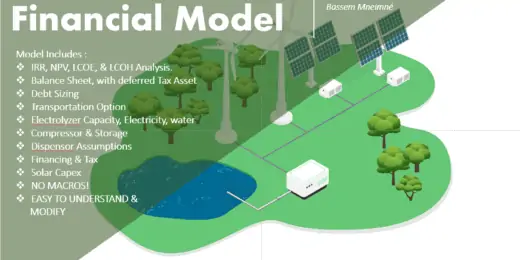
Green Hydrogen (Simple Electrolysis Financial Model)
The Model Incorporates data provided by different available sources to Model an Electrolysis financial model. It includes Electrolyzer cost, Dispenser... read more
- Excel Template – $150.00 Version 1
- Free Version – $0.00 Version 1

Beverage Manufacturing Startup Financial Model
The Beverage Manufacturing Startup Financial Model Template assists founders of Beverage Startup Companies to determine their financing needs and rais... read more
- Excel Model – $49.95
- PDF Demo – $0.00

Bakery Financial Model Excel Template
Shop Bakery Budget Template. Solid package of print-ready reports, including P&L and cash flow statements, and a complete set of financial r... read more

All My Financial Models, Spreadsheets, Templates, and Tools: 120+
Lifetime access to all future templates as well! Here is a set of spreadsheets that have some of the most valuable logic in the world. I have been thr... read more
- All My Excel Tools – $999.00 Version 1

Cafe Financial Model Excel Template
Check Our Cafe Budget Template. Creates a financial summary formatted for your Pitch Deck. Ready to Raise Capital. Creates 5-year cafe financial model... read more

Authority Matrix Template
Authorities and Responsibilities Matrices are considered important to organizations due to their role in identifying and documenting decisions that ar... read more
- Excel Version – $35.00
- PPT Version – $0.00

Biogas Financial Model
The Biogas Financial Model forecasts the expected financials for a Biogas plant project and calculates the IRR and NPV values for the project.
- FREE PDF – $0.00 Version 1
- Excel Model – $39.95 Version 2

Airport Operator Financial Model
Airport Operator Financial Model presents the business case of an already operating airport (with planned refurbishments) and an investment in a new t... read more
- Excel Model – $119.00
- Free PDF – $0.00
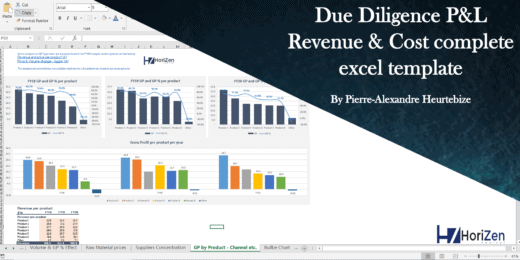
Due Diligence P&L – Exhaustive Revenue and Costs Analysis Template
Model for in depth understanding of high level profit and loss and revenue analysis. Big-4 like checklist of due diligence analyses. This Financial Du... read more

Rental Property Financial Model
The rental property financial model calculates the homeowner's IRR and long it takes to repay a mortgage when the property is rented. The financial... read more

Hair Salon Financial Plan | Beauty Salon Business Plan
Plan out the financial plan your hair or beauty salon. The beauty & hair salon business plan goes up to 10 years and has plenty of granularity.

Online Clothing Store Financial Model Excel Template
Impress bankers and investors with a proven, solid Online Clothing Store Financial Projection Template. Five year online clothing store cash... read more

Poultry Farm Financial Model Excel Template
Shop Poultry Farm Budget Template. Excel template - robust and powerful. This is your solid foundation to plan your business model. Five-year ho... read more

Financial model for FMCG
The FMCG Financial Model provides a framework to accurately forecast the financial statements of a FMCG company over the next 8 years. The model uses ... read more
- PDF Demo Version – $0.00
- Excel Model – $25.00

Hotel Valuation Financial Model
The Hotel Valuation Financial Model provides a simple way to forecast the expected cash flows for a hotel investment and calculates the relevant inves... read more
- Excel Model – $44.95 Version 6.1
- PDF Demo – $0.00 Version 6.1

IRR Project Finance Analysis
The IRR Project Finance Analysis forecasts the expected financials for a greenfield project and calculates the levered and unlevered Internal Rate of ... read more

Consolidated Financial Statements
The purpose of this model is to provide a simple way to see the financial statements for many companies in i file
- Excel Version – $30.00 Version 2
- Free Version – $0.00 Version 2

Clothing Store Financial Model Excel Template
Get Your Clothing Store Budget Template. Creates 5-year Pro-forma financial statements, and financial ratios in GAAP or IFRS formats on the fly. Five-... read more

Startup Company Financial Model – 5 Year Financial Forecast
Highly-sophisticated and user-friendly financial model for Startup Companies providing a 5-Year advanced financial forecast.
- Financial Model - Light Version – $119.00 Version 1
- Financial Model - Standard Version – $159.00 Version 1
- Financial Model - Premium Version – $219.00 Version 1

NPV, IRR, & Payback Calculator
The template allows the user to calculate the net present value (NPV), internal rate of return (IRR) and payback period from simple cash flow stream w... read more
- 5 Yr Excel Version – $0.00 Version 1
- 10 Yr Excel Version – $0.00 Version 1

Start Up Car Park Excel Model and Valuation
This detailed, yet easy to use three statement financial model will allow you to calculate your business' profit and loss, build a balance sheet and c... read more
- Paid Excel Model – $69.00

Waste to Energy Financial Model
The purpose of this financial model is to evaluate the financial feasibility of a waste to energy project such as e.g. a landfill gas plant. The model... read more
- Excel FULL Version – $35.00
- PDF Version – $0.00

Dental Practice Financial Model Excel Template
Check Dental Practice Financial Model. Fortunately, you can solve Cash Flow shortfalls with a bit of effort. A sophisticated 5 year dental p... read more

Real Estate Developer Model
This financial model can be used to evaluate the financial feasibility of a real estate development project and present it in investor grade quality t... read more
- Excel Model – $49.95 Version 1.1
- PDF Demo Version – $0.00 Version 1.1

Hospital Financial Model
Simply open the file in Excel
- Full Version – $34.95
- Free Version – $0.00

10 Year P&L, Balance Sheet, Cash Flow, and Break-even Analysis
This excel template is great for those wanting a professional-looking forecast 10 years of financial statements, those starting out as an entrepreneur... read more
- Excel Model – $20.00

Budget to Actual Comparison
This monthly budget-to-actual dashboard allows for at-a-glance performance analysis. In addition to analyzing YTD performance, it also provides a revi... read more
- Excel Model – $115.00 Version 1

Green Hydrogen (Electrolysis) Production Financial Model
This green hydrogen financial model template builds a multi-year financial plan to analyze the financial feasibility and profitability for the product... read more
- Full Excel Version – $119.00 Version 1.7
- PDF Version – $0.00 Version 1.7

Simple Fundraising Model
This is a simple fundraising financial model template in Excel. Enter your business plan, calculate the amount of funding required and allocate the eq... read more

Financial Dashboard Excel Template
Set your KPI objectives and your month to month financial results and Financial Dashboard Excel Template will take care of creating the beautiful Grap... read more
- Full Excel – $29.00

Residual Land Value Calculation
The Residual Land Value Calculation model allows you to determine the value of a piece of land from a developer's point of view by analyzing how much ... read more
- Yearly Model PDF Demo – $0.00 Version 4.1
- Monthly Model PDF Demo – $0.00 Version 4.1
- Monthly Model Excel Version – $69.90 Version 4.1
- Yearly Model Excel Version – $35.00 Version 4.1

Poultry Project Financial Feasibility Model
This poultry financial model template in Excel provides a framework to determine the financial feasibility of a new poultry project for producing bro... read more
- Pro Excel Version – $99.95 Version 1
- Basic Excel Version – $79.95 Version 1
- PDF Demo Version – $0.00 Version 1
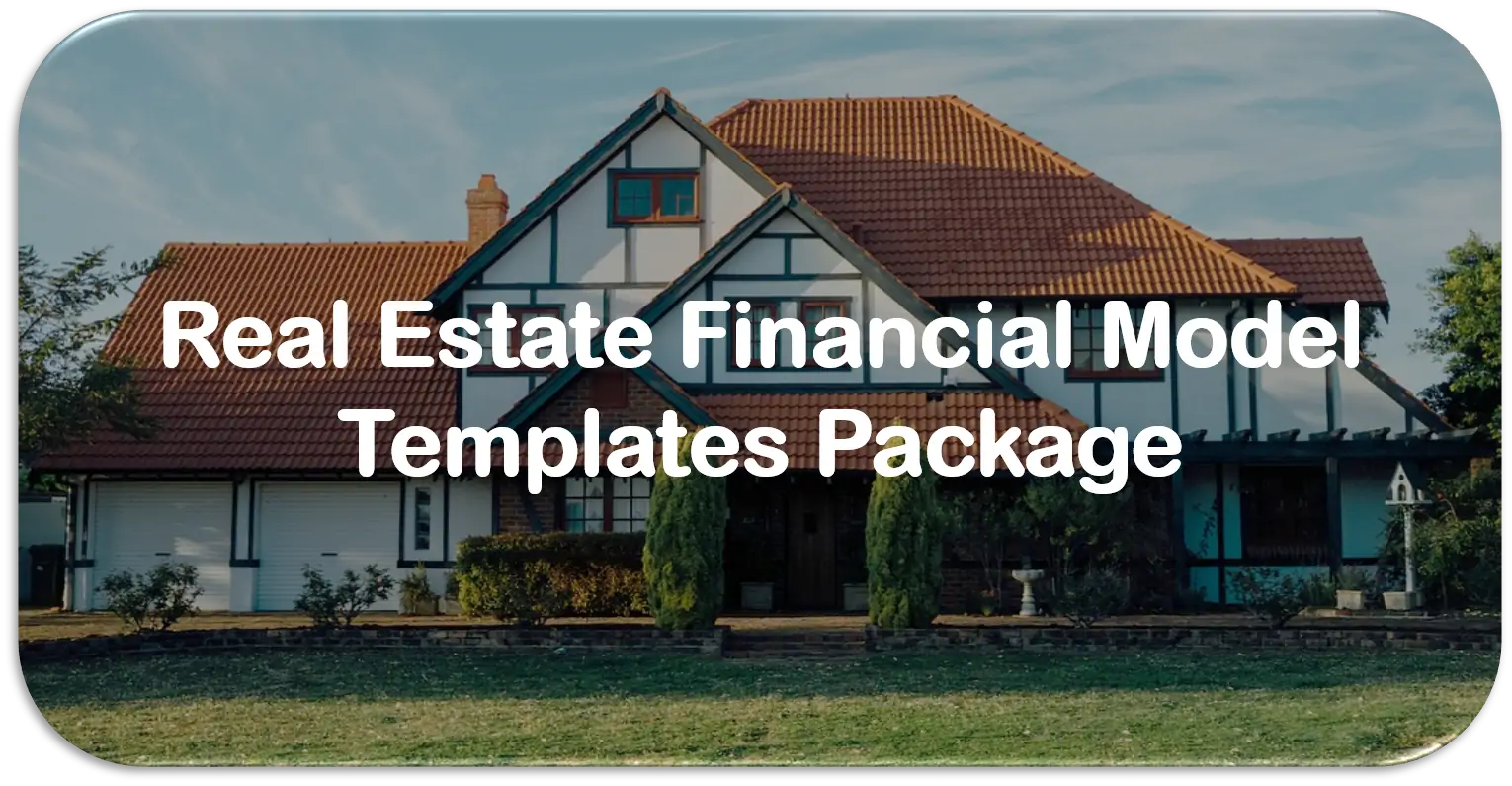
Real Estate Financial Model Templates Package
This is a collection of ready-made Excel financial model templates for real estate businesses and its related sectors.
- Real Estate Package – $282.30 Version 1

Mixed-Use Real Estate Model: Leverage / JV Options
A general real estate model to plan all assumptions for up to 7 'uses' for a given property. Includes development / acquisition, leverage if desired, ... read more
- EURO Currency Version – $75.00 Version 1
- Unit-based Version – $75.00 Version 4
- Square Foot-based Version – $75.00 Version 4

Digital Marketing Agency Financial Model Excel Template
Check Our Digital Marketing Agency Financial Projection Template. Excel Template for your pitch deck to convince Investors. Digital Marketing Ag... read more

Spa Financial Model Excel Template
Download Spa Financial Projection Template. This well-tested, robust, and powerful template is your solid foundation to plan a success. Creates ... read more
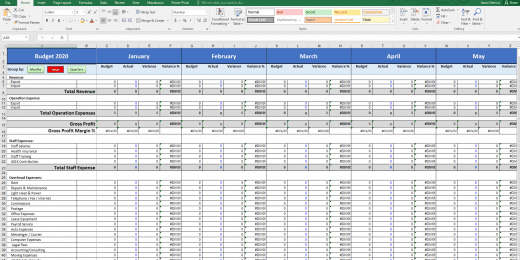
Budget vs. Actual (Logistic Company)
The Budget vs. Actual financial model is used to measure actual results against the budget projected for the financial period.
- PDF File – $0.00
- Full Version – $55.00

Custom Financial Modeling Services / Assistance
Offering you with Custom financial modeling services or assistance by an experienced financial modeling team called Big4WallStreet.
- 1 Hour – $90.00 x
- 4 Hours – $360.00 x
- 8 Hours – $720.00 x

Professional Financial Modeling Services – Profit Vision
Professional Financial Modeling - Tailor Made Services and assistance for your business needs.
- Hourly Rate – $100.00 Version 1 x
- Daily Rate – $800.00 Version 1 x

Multiple Loan Repayment Planning with Extra Principal Applied
Optimize where an extra principal payment should go and see the total cash flow savings when you have multiple loans.

Construction / Development Financial Model
Development & Construction Model presents the case where a property with multiple residential units is constructed and subsequently rented for sev... read more
- Full Excel Model – $119.00
- Free Demo PDF – $0.00

Fintech Financial Model Excel Template
Try Fintech Financial Projection Template. Enhance your pitch decks and impress potential investors with a proven, strategy template. Five ... read more

Nail Salon Financial Model Excel Template
Check Nail Salon Financial Model Template. Excel - well-tested, robust and powerful. Get you solid foundation to plan your business model. Five-year f... read more

Start Up Solar Farm Excel Model and Valuation
Start Up Solar Farm Excel Model presents the business case of an investment in the construction of a solar farm and the sale of the energy generated f... read more

Profit and Loss Statement Actual vs Budget & Previous Year
This model is profit and loss statement for general trading including comparison for the current month, year to date and full year
- Paid Excel Version – $25.00

Boutique Hotel Financial Model Excel Template
Check Our Boutique Hotel Financial Projection. Excel - well-tested, robust, and powerful. Get you a solid foundation to plan your business m... read more

Real Estate Brokerage Firm Financial Model Template
Financial model template for a high-level real estate brokerage firm that facilitates the buying and selling of real estate properties between buyers ... read more
- Real Estate Financial Model - Full Version – $44.95
- Real Estate Financial Model - PDF Demo – $0.00

Infrastructure Private Equity Wind Energy Modeling Test Solution (Associate level)
A self-made Modeling Test with a solution for Onshore Wind Turbines plant. The case study is in Chile assuming a 376 MW Capacity. The download include... read more
- Free Version PDF – $0.00
- Free Version PPT – $0.00
- Excel Model – $30.00

Restaurant Financial Model Excel Template
Get Your Restaurant Financial Model Template. Spend less time on Cash Flow forecasting and more time on your products. Restaurant Financial ... read more

Open Pit Mine Financial Model
Allow a potential miner to see visually and numerically (annual basis) what their possible financial position would look like when starting up an open... read more
- Excel Model – $45.00 Version 4

DCF Valuation Model Restaurant
The DCF Valuation Model for Restaurants provides a business plan in the form of an Excel Template to value a restaurant based on the Discounted Cash F... read more
- Full Version – $34.95 Version 3
- Lite Version – $0.00 Version 3
- PDF Demo – $0.00 Version 3

Insurance Agency Financial Model Excel Template
Shop Insurance Agency Financial Plan. Fortunately, you can solve Cash Flow shortfalls with a bit of effort. Generates 5-year insurance agency ex... read more

Commercial Bank Financial Model
Commercial Banking Financial Model presents the case of a commercial bank with regulatory thresholds based on Basel 3. The model generates the three f... read more
- Excel Model – $220.00

Equipment Rental Cash Flow Model
Highly dynamic financial model that is specific to renting equipment out. High attention paid to the cash flows and timeliness of them so the user has... read more
- Version 2 – $75.00
- 10-Year Model – $75.00

Travel Agency Financial Model Excel Template
Shop Travel Agency Financial Projection Template. This well-tested, robust, and powerful template is your solid foundation to plan a success. A ... read more

Payroll Budget Plan Excel Template
A professional template to budget payroll expenses
- Excel Template + PDF Guide – $20.00

Beauty Salon Financial Model Excel Template
Get Your Beauty Salon Financial Model Template. Creates 5-year financial projection and financial ratios in GAAP or IFRS formats on the fly. Creates 5... read more

Car Rental Financial Model Excel Template
Order Car Rental Pro-forma Template. Simple-to-use yet very sophisticated planning tool. Get reliable results with minimal experience. Five-year car ... read more
- Excel - Multi-User – $129.00 Version 1.1
- Excel - Single-User – $99.00 Version 1.1
- Free Demo – $0.00 Version 1.0

Generic Cost Benefit Analysis Excel Model
User-friendly Excel model intended for the preparation of a Cost-Benefit Analysis to determine the financial viability for a proposed project or inves... read more
- PDF Copy – $0.00
- Excel Model – $35.00

Mergers & Acquisitions (M&A) Model
The Mergers & Acquisition (M&A) Model provides a projection for a company looking to potentially merge or acquire another company. This model runs... read more
- Full Excel Version – $75.00 Version 1

Inventory Dashboard Model Template
!! Kindly use the latest Microsoft Excel Version before purchasing the model, otherwise, the dynamic dashboard will NOT work.!! Inventory Dashboard Mo... read more
- Free PDF Demo – $0.00
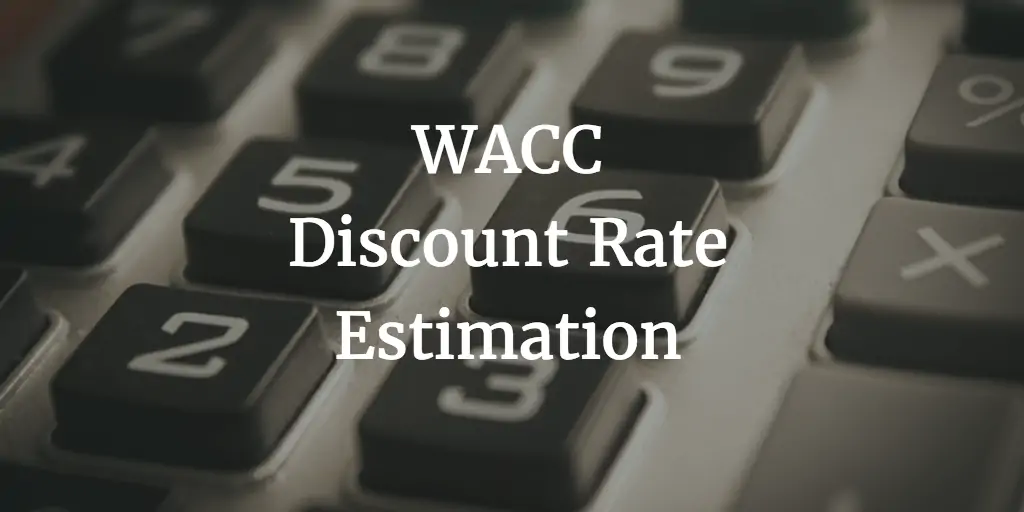
WACC Calculator | Discount Rate Estimation
Unlock the power of informed financial decision-making with our WACC Calculator! Dive into accurate discount rate estimations and empower your busines... read more

Medical Practice Financial Model Excel Template
Check Our Medical Practice Financial Projection. Simple-to-use yet very sophisticated planning tool. Get reliable results with minimal exper... read more

Pizzeria Financial Model Excel Template
Get Your Pizzeria Budget Template. Excel template - robust and powerful. This is your solid foundation to plan your business model. Five-year horizon ... read more

Coffee Farm Financial Feasibility Model Template
This coffee farm financial feasibility model template prepares a financial plan for your next coffee growing project! Figure out the expected incomes ... read more
- Standard version – $89.00 Version 1.2
- Pro version – $119.00 Version 1.2
- Free Demo PDFs – $0.00 Version 1.2

Generic Startup/Existing Business 5-year (Monthly) Financial Projection 3 Statement Excel Model
Highly versatile and user-friendly Excel model for the preparation a of 5-year rolling 3 statement (Income Statement, Balance Sheet and Cash flow Stat... read more
- Excel Model – $59.00 Version 1
- PDF Model – $0.00 Version 1

Airline Operator Financial Model
Airline Operator Financial Model presents the case of a company operating an airline business. The model generates the three financial statements, a s... read more
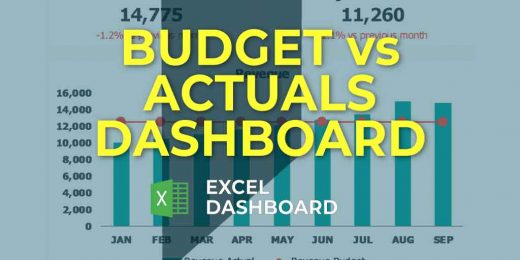
Budget vs Actual Excel Template
Create your very own budget vs actual analysis by trying out this Budget vs Actual Analysis Excel Template.

Payable and Receivable Tracking (Google Sheets)
This is a Google Sheets version of the financial model template for tracking accounts payable and accounts receivable
- Google Sheet Version – $45.00
- Excel Version – $45.00

Solar Panel Manufacturing Plant Business Plan Financial Model Excel Template
Get the Best Solar Panel Manufacturing Plant Financial Model. Spend less time on Cash Flow forecasting and more time on your products. The Solar Panel... read more

Resort Financial Model Excel Template
Order Resort Financial Model. Excel template - robust and powerful. This is your solid foundation to plan your business model. Five year res... read more
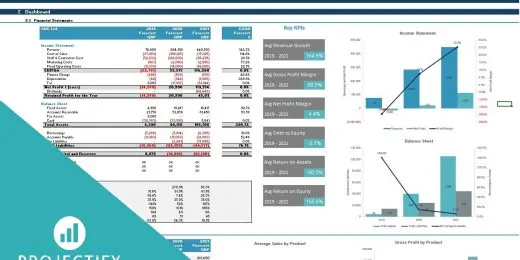
Generic Startup Financial Projection 3 statement Excel Model
User-friendly Excel model intended for the preparation of a 3 statement (Income Statement, Balance Sheet and Cashflow Statement) financial projection ... read more
- Full Excel Model – $45.00
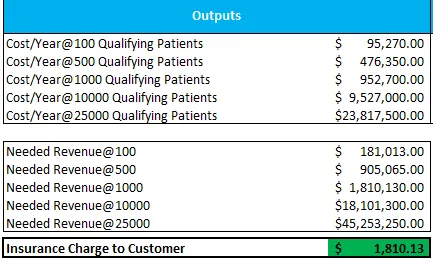
Insurance Pricing Model
Ever wondered how much you need to charge in order to offer insurance on a given product or service? You will know how much after using this tool.
- Full Model – $45.00 Version 1

Golf Course Financial Model – Startup
A 5-year financial model tailored to starting a golf course and projecting financial performance for its business plan. Includes financial statements.

IPO Valuation Model
This financial model can be used to value any Initial Public Offering (IPO) using Option Value, DCF and Relative Valuation.

Mergers and Acquisition (M&A) Financial Model
Merger and Acquisition Model template consists of an excel model which assists the user to assess the financial viability of the resulting proforma me... read more

Cannabis Financial Model Excel Template
Download Cannabis Farming Financial Model. Creates 5-year financial projection and financial ratios in GAAP or IFRS formats on the fly. Cann... read more
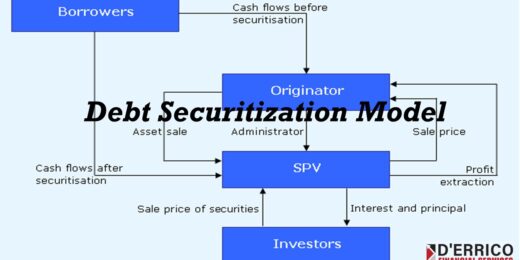
Debt Securitization Model
The Debt Securitization is the process of packaging debt into a Securitization Vehicle sold to a Fiduciary where it is converted into bonds sold to in... read more
- Free PDF Preview – $0.00
- Full Excel Model – $65.00

Full Service Hospital Financial Model
This financial model attempts to give the user a full scope of starting a 250 bed (adjustable) hospital. It will allow for all revenue and cost assump... read more
- Full Model – $45.00 Version 1.2

Mini Storage Business Plan Template
We understand that your storage needs are unique, so we've created a comprehensive mini-storage business plan that will help you chart your course to ... read more
- Full Excel Version – $44.95 Version 9.2
- PDF Demo Version – $0.00 Version 9.2

E-Commerce 3 Statement Financial Projection Model with Valuation
Highly versatile and user-friendly Excel model for the preparation of a rolling 3 statement (Income Statement, Balance Sheet and Cash flow Statement) ... read more
- Excel Model Populated – $59.00
- Excel Model Not Populated – $59.00

Renewable Energy Financial Model Bundle
This is a collection of financial model templates for projects or ventures in the Renewable Energy Industry and its related sectors.
- Template Bundle – $213.40 Version 1

Bar Financial Model Excel Template
Try Bar Financial Plan. Requesting a loan without a financial model for paying it back is a common way to land in the rejection pile. Creates 5-... read more

Flower Shop Financial Model Excel Template
Discover Flower Shop Financial Model Template. Allows investors and business owners to make a complete financial projection in less than 90 mins... read more

Skin Care Financial Model Excel Template
Order Skin Care Pro-forma Template. Generate fully-integrated Pro-forma for 5 years. Automatic aggregation of annual summaries on outputs tabs. Create... read more

Shopping Mall Financial Model
Shopping Mall Financial Model presents the case of an investment into a shopping mall and its operation. The model generates the three financial state... read more
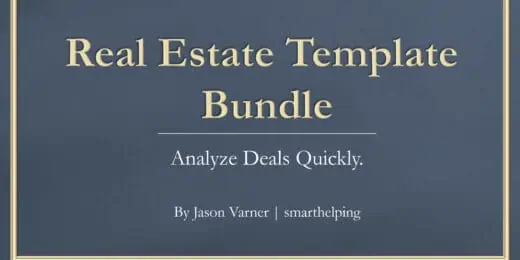
Real Estate Financial Model Bundle
This is a collection of financial model templates that provides the financial projections and valuations for Real Estate businesses and its related se... read more
- Template Bundle – $299.00 Version 1

Steel Industry Financial Model
Steel Industry Financial Model presents the business case of the operation of a steel plant using the mini mill technology. The model generates the th... read more

Monte Carlo Simulation in Excel
The model presents an example of a Monte Carlo Simulation using excel to estimate the Net Present Value of an investment.
- Monte Carlo in Excel – $0.00 Version 1

Barber Shop Financial Model Excel Template
Check Barber Shop Financial Projection Template. Creates 5-year financial projection and financial ratios in GAAP or IFRS formats on the fly. Generate... read more

Real Estate Portfolio Template – Excel Spreadsheet
The Real Estate Portfolio Template forecasts the financial performance when building a real estate portfolio. The model allows simulating various scen... read more
- Full Excel Version – $199.95 Version 2.5
- PDF Demo Version – $0.00 Version 2.5

Jewelry Shop / Store 5 Year Startup Business Model
A bottom-up financial model that is designed specifically for a jewelry store, but could easily be used for any retail business startup. Includes 3-st... read more

Manufacturing Startup Feasibility Model
Launching a manufacturing startup can be complex, and securing financing requires a solid financial plan. Our Manufacturing Startup Financial Feasibil... read more
- PREMIUM Excel Version – $129.95 Version 2.41
- BASIC Excel Version – $89.95 Version 2.41
- PDF DEMO Versions – $0.00 Version 2.41

Clinic Financial Model Excel Template
Shop Clinic Financial Plan. Create fully-integrated financial projection for 5 years. With 3 way financial statements inside. Five year clin... read more

Laundry Financial Model Excel Template
Purchase Laundry Pro Forma Projection. Impress bankers and investors with a proven, strategic business plan that impresses every time. Five-year finan... read more

Poultry Farm Valuation Model
The Poultry Farm Valuation Model allows forecasting the financial statements for a poultry farm based on operational metrics such as the hatchery rati... read more
- Free PDF Demo – $0.00 Version 4.1
- Full Excel Model – $44.95 Version 4.1

Food Truck Financial Model Excel Template
Purchase Food Truck Financial Projection Template. Excel Template for your pitch deck to convince Investors. The food truck budget financial model is ... read more

Price Volume Mix Charts and Analysis – On revenue and Gross Profit by Product
Best practice model for a complete Price Volume Mix (PVM) analysis on revenue and on gross profit by product.

Cash Flow Dashboard Spreadsheet
The Cash Management Dashboard lets you rapidly determine areas where your company is exceeding expectations and those that require immediate touch. An... read more


Leveraged Buyout (LBO) Model
Leveraged Buy Out (LBO) Model presents the business case of the purchase of a company by using a high level of debt financing. The model generates the... read more
- Paid Excel Model – $119.00

Waterfall Model for Joint Venture Real Estate Project
Dynamic financial model for calculating cash splits to sponsors/investors based on various IRR hurdles getting reached.
- Version 1 – $45.00 Version 1
- Version 2 – $45.00 Version 2
- Version 3 (5 scenarios) – $45.00 Version 3

Serviced Office Financial Model
The financial model provides an excel template for a multi-year financial plan, DCF valuation and IRR analysis for a serviced office operator or co-w... read more
- Full Excel Version – $44.95

Top 16 Google Sheet Templates
This is a bundle of all the most useful and efficient google sheet templates I have built over the years. Includes everything from budgeting and crew ... read more
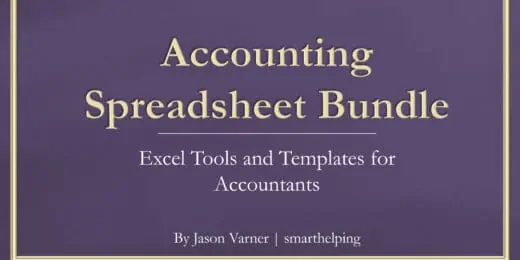
Accounting Financial Model Bundle
Simply open the files using MS Excel
- Template Bundle – $249.00 Version 2

E-com Simple Financial Model Excel Template
Get Your Simple E-Commerce Pro Forma Projection. There's power in Cash Flow Projections and the insight they can provide your business. Five-year simp... read more

Clinical Lab Financial Model Excel Template
Order Clinical Lab Financial Projection Template. This well-tested, robust, and powerful template is your solid foundation to plan a success... read more
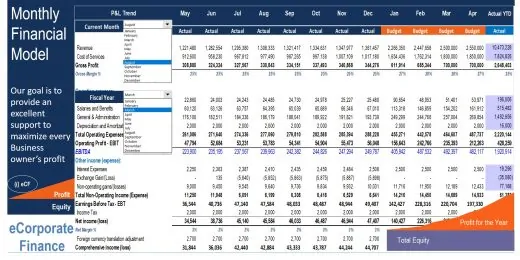
Monthly Financial Model
The template has been constructed for monthly financial reporting for general trading industry, It is incredibly simple to use that will lead you to m... read more
- Excel Model – $50.00

Physiotherapy Financial Model Excel Template
Impress bankers and investors with a proven, solid Physiotherapy Financial Plan. Five-year physiotherapy budget financial model for startups and... read more

Law Firm Financial Model Excel Template
Try Law Firm Financial Model Template. Allows you to start planning with no fuss and maximum of help Five-year financial model template for Exce... read more

Interest Rate Swap Valuation and Payment Schedule
Compare fixed and variable legs of an interest rate swap.

Fish Farm Financial Model Excel Template
Get the Best Fish Farm Pro Forma Projection. This well-tested, robust, and powerful template is your solid foundation to plan a success. Highly ... read more

Abacus Solar & Wind Debt Sculpting Financial Model
Abacus is a bankable, easy-to-use, debt-sculpting financial model for use in renewable (solar, wind, etc.) energy as well as PPP transactions.

Free Project Management Template in Excel
This Free Project Management Template in Excel allows to prepare a project plan with a GANTT chart in MS Excel.

Industry Based Financial Models (Variety Bundle)
There are currently 52 unique financial models included in this bundle. Nearly all of that include a fully integrated three statement model and all of... read more

Chicken Egg Farm – Business Plan
This chicken egg farming model aims to plan the operations, financial feasibility, and profitability of a new poultry egg farming business. This Start... read more
- Excel Version – $99.95 Version 1.3
- PDF Demo Version – $0.00 Version 1.3
Cash Flow Statement Template with Budget Versus Actuals Analysis Excel
Cash Flow Projection Template Highlights One-year Cash Flow Projection template is a useful tool for cash flow forecasting and for effectively plannin... read more
- Full Excel – $39.00

Stacking Plan Excel Template
A stacking plan is a two-dimensional chart displaying the arrangement of tenants on every floor of a multi-tenant office building.

Price-Volume-Mix Analysis
A comprehensive full-scope model for variance analysis

Private Equity – Leveraged Buyout Model
The Private Equity Leveraged Buyout Model offers a simple template to calculate the financial returns (IRR and cash on cash multiple) of a leveraged b... read more
- Full Excel Model – $44.95 Version 1.1
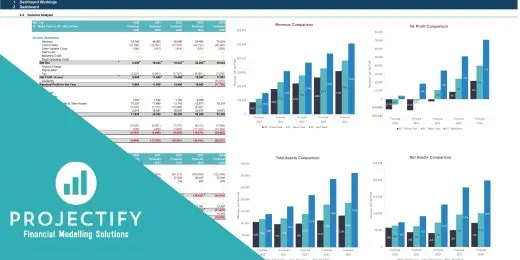
Projectify Custom Financial Modeling Services
Providing you professional custom Financial Modeling services and assistance for your business needs.
- 1 Hour – $80.00 Version 1 x
- 2 Hours – $160.00 Version 1 x
- 3 Hours – $240.00 Version 1 x
- 4 Hours – $320.00 Version 1 x
- 5 Hours – $400.00 Version 1 x
- 6 Hours – $480.00 Version 1 x
- 7 Hours – $560.00 Version 1 x
- 8 Hours – $600.00 Version 1 x
- 10 Hours – $750.00 Version 1 x
- 1.5 Days – $900.00 Version 1 x
- 2 Days – $1,200.00 Version 1 x

Casino Hotel Financial Model Excel Template
Download Casino Hotel Financial Projection Template. Fortunately, you can solve Cash Flow shortfalls with a bit of effort. Casino Hotel Budget Financi... read more

Commercial Real Estate Excel Model Template
Commercial Real Estate Excel model which generates the cash flows of the project as well as for equity investors and calculates the relevant metrics (... read more
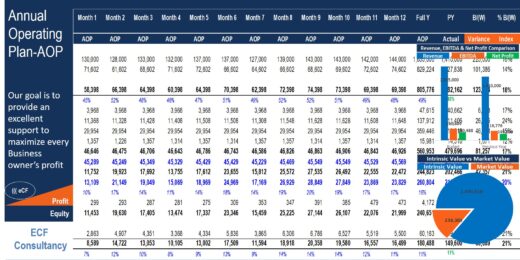
Annual Operating Plan- AOP for Service Industry
The Annual Operating Plan (AOP) template is the best tools for planning of the operating activity of the company based its sales budget.
- Excel Version – $80.00

Catering Financial Model Excel Template
Check Our Catering Pro-forma Template. Excel template - robust and powerful. This is your solid foundation to plan your business model. Highly versati... read more
Leave a Reply Cancel reply
You must be logged in to post a comment.

Real Estate Business Plan Template
Written by Dave Lavinsky

Real estate businesses come in a wide range of sizes and styles, from one person offices that handle a few homes in a handful of neighborhoods to enormous chains that cover both commercial and residential properties across the country. Many new real estate agents try to expand too much too soon, failing as the result of unsustainable growth. A written business plan will keep you on track and help you grow your real estate business in an organized way. In addition, if you plan to seek funding, investors and lenders will use your business plan to determine the level of risk.
Download our Ultimate Real Estate Business Plan Template here >
What is a Real Estate Business Plan?
Your business plan provides a snapshot of your real estate company as it currently exists, and lays out a road map for the next three to five years. It highlights your business goals, identifies potential challenges, and describes your strategies for overcoming adversity and meeting your goals. It is a living document that should be frequently updated as your real estate business grows and evolves.
Below is our general template for real estate business plans. We also have templates for specific types of real estate businesses as follows:
- Property Management Business Plan Template
- Real Estate Agent Business Plan
- Real Estate Development Business Plan
- Real Estate Investment Business Plan
- Rental Properties Business Plan
Why You Need a Business Plan Real Estate Business
If you’re looking to start a real estate business or grow your existing real estate business you need a business plan. A business plan will help you raise funding, if needed, and plan out the growth of your real estate company in order to improve your chances of success. Your real estate business plan is a living document that should be updated annually as your company grows and changes.
Finish Your Business Plan Today!
General real estate business plan template.
Below is a template that will help you with how to write a real estate business plan. The plan should include the following 10 sections:
Executive Summary
Although it serves as the introduction to your business plan, your executive summary should be written last. The goal of your Executive Summary is to quickly engage the reader. Explain to them the type of real estate business you are operating and the status. For example, are you a startup, do you have real estate agent business that you would like to grow, or are you operating a chain of real estate businesses?
Next, provide an overview of each of the subsequent sections of your plan. For example, give a brief overview of the real estate industry. Discuss the type of real estate business you are operating. Detail your direct competitors. Give an overview of your target customers. Provide a snapshot of your marketing plan. Identify the key members of your team. And offer an overview of your financial plan.
Company Analysis
In your company analysis, you will detail the type of real estate business you are operating. For example, are you an existing real estate agent looking to launch your own company or are you an existing real estate brokerage looking to expand?
Describe the company’s founding, current stage of business, and legal structure. Highlight any past milestones, such as lining up key clients or hiring an agent with a proven track record. Elaborate on your unique qualifications, such as expertise in a currently underserved niche market and include a mission statement, if possible. Include your mission statement, key objectives and business goals.
Industry Analysis
In your industry analysis, you need to provide an overview of the real estate market. The real estate industry is incredibly large and diverse, but your analysis should focus on your specific segment of the market. Do you specialize in multifamily residential buildings? Single family homes? Office buildings? Small commercial properties? Figure out where your real estate company fits in, and then research the current trends and market projections that affect your niche. Create a detailed strategy for overcoming any obstacles that you uncover.
The following questions should be answered in the industry analysis section of your real estate business plan:
- How big is the real estate market (in dollars)?
- Is the market declining or increasing?
- Who are the key competitors in the market?
- Who are the key suppliers in the market?
- What trends are affecting the industry?
- What is the industry’s growth forecast over the next 5 – 10 years?
- What is the relevant market size? That is, how big is the potential market for your real estate business. You can extrapolate such a figure by assessing the size of the market in the entire country and then applying that figure to your local population.
Customer Analysis
Who are your potential clients? Are they first-time homebuyers? Upwardly mobile young professionals? Developers, speculators, or investors? What is important to them in a real estate agent? Do they require hand holding through the entire process, or are they savvy buyers that just want you to show them the properties that interest them? How do they decide on a particular property? Narrow down their demographics as closely as you can, and then figure out what their unique needs are and how you can fulfill them.
Finish Your Real Estate Business Plan in 1 Day!
Don’t you wish there was a faster, easier way to finish your business plan?
With Growthink’s Ultimate Real Estate Business Plan Template you can finish your plan in just 8 hours or less!
Competitive Analysis
Your direct competitors are those real estate companies that fulfill the same needs for the same target market as yours. Your indirect competitors are real estate businesses that target a different market, or other companies that fulfill a different need for your target market. Describe each of your direct competitors individually, and talk about the things that set your real estate company apart. Categorize your indirect competitors as a group and talk about them as a whole.
For each such competitor, provide an overview of their businesses and document their strengths and weaknesses in a SWOT analysis. Unless you once worked at your competitors’ businesses, it will be impossible to know everything about them. But you should be able to find out key things about them such as:
Marketing Plan
A solid marketing plan is based on the four P’s: Product, Price, Promotion, and Place. Your marketing efforts should center around these four marketing strategies. The Product section describes the real estate you sell along with any other services you provide. Price will change according to the specifics of the property, but you can delineate your fees here. Promotion is your means of getting new business. Place is your physical office location, along with your web presence and the areas where you sell. Another category, Customer retention, refers to the ways you will build loyalty.
Employing a marketing strategy based on these four principles will allow you to generate leads for prospective clients.
Operations Plan
Your operations plan explains your methods for meeting the goals you set forth. Everyday short-term processes include all of the daily tasks involved in signing up clients, showing properties, and closing sales. Long-term processes are the ways you will meet your defined business goals, such as expanding into new markets or new types of properties.
Management Team
The management team section highlights the backgrounds of the key members of your real estate team. Focus on those aspects that prove your team’s ability to build and run a successful company. A business mentor or advisor can help fill in any gaps, provided you can identify the specific ways that your advisor will influence your company’s growth. Be sure to highlight how many real estate agents will be on your team.
Financial Plan
Investors and lenders heavily scrutinize the financial plan, but it is often the most challenging part of the business plan to write. Real estate is a fickle market, subject to changing whims and economic cycles. Yet the financial plan requires you to detail your specific business model and individual revenue streams by implementation timeline and relative importance, and disclose any sources of outside funding. You also need to summarize your past and future Income Statements, Cash Flow Statements, and Balance Sheets, based on key assumptions that must be both reasonable and verifiable based on an analysis of similar companies. You should also provide a solid exit strategy that shows your understanding of the market and your desire to capitalize on profitability.
Your full financial projections should be attached in the appendix along with any other documents that support your claims, such as letters from key partners.
Real Estate Business Plan Summary
Putting together a business plan for your real estate business is a worthwhile endeavor. If you follow the template above, by the time you are done, you will truly be an expert. You will really understand the real estate industry, your competition and your customers. You will have developed a marketing plan and will really understand what it takes to launch and grow a successful real estate business.
Download Our Real Estate Business Plan PDF
You can download our real estate business plan PDF here . This is a business plan template you can use in PDF format.
Real Estate Business Plan FAQs
What is the easiest way to complete my real estate business plan.
Growthink's Ultimate Real Estate Business Plan Template allows you to quickly and easily complete your Real Estate Business Plan.
Where Can I Download a Free Real Estate Business Plan PDF?
You can download our real estate business plan PDF template here . This is a business plan template you can use in PDF format.
This can be used for a commercial real estate business plan too.
Don’t you wish there was a faster, easier way to finish your Real Estate business plan?
OR, Let Us Develop Your Plan For You
Since 1999, Growthink has developed business plans for thousands of companies who have gone on to achieve tremendous success. Click here to see how a Growthink business plan writer can create your business plan for you.
Other Helpful Business Plan Articles & Templates

- Sample Business Plans
- Real Estate & Rentals
Real Estate Business Plan

People would always need to find places. Be it for offices, homes, and whatnot.
Finding the ideal place irrespective of your needs and requirements is never a cakewalk, to begin with.
You can go through a number of real estates business plan templates before you write your plan.
Industry Overview
The market size, measured by revenue, of the Real Estate Sales and brokerage industry, is $156.2bn in 2021, and the industry is expected to increase by 0.4% in 2021.
Also, the market is changing at a rapid rate and the way people use spaces is changing at a rapid rate too.
Hence, to get on or stay on the higher end of the spectrum you’ll need to upskill and change the way you do business constantly.
But that is a fair trade for the amount of growth and profitability this industry has to offer.
Say goodbye to boring templates
Build your business plan faster and easier with AI
Plans starting from $7/month

Things to Consider Before Writing a Real Estate Business Plan
Be specific.
The real estate industry is broad when it comes to work and what you can do. It can either be a source of primary or passive income. At the same time, you might be involved in the industry as an investor, agent, or builder. Decide what you want to do and plan on that basis.
Do your research
The trends of the real estate business change constantly, hence doing your research and updating it constantly is a crucial part of your profession.
As your knowledge and expertise is your greatest asset in this industry, keep expanding it to stay at the top of things.
Build a team of skilled professionals
Having a team you can build your real estate business with is essential.
Select a group of individuals with a diverse set of talents ranging from good communication skills to brilliant analytical skills. Given the dynamics of the real estate business, you never know what skills might come in handy in your business journey.
Be ready for change
As we have constantly discussed, real estate is a dynamic industry. Change is the only constant you’ll have in this business.
Thus, it is important for everything from your plan and way of doing business to be change-friendly.
Sources of Funding for a Real Estate Business
Gaining funds is one of the major reasons for writing a business plan. And here are a few good funding options for your real estate business:
A traditional loan is one of the most basic options for getting funded. You can opt for this if you have a good credit score.
Non-bank mortgage lending
This is a good option if you don’t want to go through a lot of paperwork.
The asset-based mortgage
For this, the lenders look at the rental value of your property and provide a loan on that basis. It is a good option if you don’t want or can’t get a loan based on your personal assets or income.
Above all, it is essential to plan your business to figure out your funding requirements and the right way to fulfill the same.
Write Your Business Plan
If you have enough connections, and the ability to find places for people that have attributes they want and need then a real estate business can be a profitable one for you.
A business plan helps you get funded, explain your ideas to the stakeholders of your business, and make better decisions.
Hence, planning is an important aspect of starting or growing your business.
It has been created using Upmetrics online business plan software that helps you create dynamic and customizable plans anywhere and at any time.
Our sample real estate business plan can help you with writing a well-rounded business plan for your business. It can act as a guide and prevent you from getting stuck in a certain section for too long.
Real Estate Business Plan Outline
This is the standard real estate business plan outline which will cover all important sections that you should include in your business plan.
- Market Opportunity
- Demand for Housing
- Financing & Investment Forecast
- Introducing Kegan
- Business Model
- Short Term Goals
- Long Term Strategies
- Keys to Success
- Contemporary Living for the 21″ Century
- The Complete Package
- Pricing Strategy
- Implementation Strategy – Action Plan
- Target Market Overview
- Housing Shortage Overview in Saudi Arabia
- Housing Shortage Overview in Riyadh
- Housing Prices
- Kegan Home Prices
- Market Positioning & Brand
- Marketing Strategies
- Sales Strategies
- Sales Process
- Competitive Landscape
- Competitive Advantages
- Rashid Bin Said
- Director of Construction
- Member name
- Chief Accountant
- Director of Marketing & Sales
- Other Staff
- Independent Directors
- Solid Balance Sheet
- Impressive Cashflow
- Financial Summary
- Financial Assumptions
- Income Statement (Five-Year Projections)
- Balance Sheet (Five-Year Projections)
- Cash Flow Statement (Five-Year Projection)
After getting started with Upmetrics , you can copy this sample real estate business plan into your business plan and modify the required information and download your real estate business plan pdf or doc file.
It’s the fastest and easiest way to start writing your business plan.
The Quickest Way to turn a Business Idea into a Business Plan
Fill-in-the-blanks and automatic financials make it easy.
Download a sample real estate business plan
Need help writing your business plan from scratch? Here you go; download our free real estate business plan pdf to start.
It’s a modern business plan template specifically designed for your real estate business. Use the example business plan as a guide for writing your own.
Related Posts
Real Estate Development Business Plan
Real Estate Agent Business Plan
Factor to Choosing Business Location
400+ Business Plan Sample Template
Business Plan Writers
Best AI Business Plan Generator
About the Author
Upmetrics Team
Upmetrics is the #1 business planning software that helps entrepreneurs and business owners create investment-ready business plans using AI. We regularly share business planning insights on our blog. Check out the Upmetrics blog for such interesting reads. Read more
Plan your business in the shortest time possible
No Risk – Cancel at Any Time – 15 Day Money Back Guarantee

Create a great Business Plan with great price.
- 400+ Business plan templates & examples
- AI Assistance & step by step guidance
- 4.8 Star rating on Trustpilot
Streamline your business planning process with Upmetrics .

BUSINESS STRATEGIES
How to create a real estate business plan
- Nirit Braun
- 10 min read

A real estate business plan is a strategic document that outlines the objectives, strategies and tactics a person or a team will employ when starting a business in the real estate industry. This comprehensive and clear plan not only defines the business' mission, vision and goals but also delineates the steps necessary to achieve them.
When starting a business, especially in a dynamic and competitive sector like real estate, a well-crafted business plan becomes an indispensable tool for success. Beyond helping business in their first steps to understanding how to start a service business , a business plan provides a structured framework that helps entrepreneurs make informed decisions, allocate resources effectively and stay focused on their objectives. By articulating the business' value proposition, rental business ideas , target market, competitive landscape and revenue streams, the plan offers a holistic understanding of the venture's potential and challenges.
Looking to kick off your real estate business? Create a business website today with Wix. These real estate agent websites can help you get started.
In this section, we'll break down the key components involved in crafting a successful real estate business plan in six steps.
Executive summary
Company and domain name
Market analysis and research
Operations plan
Marketing and advertising plan
Financial plan
01. Executive summary
An executive summary is a concise overview of your entire real estate business plan. It serves as a snapshot that captures the essence of your venture, highlighting its key components and objectives. A well-crafted executive summary should provide a clear understanding of your real estate business' purpose, market opportunity, strategies and potential for success. It's typically the first section of the business plan and should be written after the rest of the plan has been completed.
To write a clear executive summary for a real estate business, follow these steps:
Start with a brief introduction: Describe your business’ mission, vision and the services you intend to offer. Highlight what sets your business apart in the competitive real estate landscape.
Summarize the market demand: Explain what kind of opportunity you aim to address with this type of business . Mention key trends in the real estate industry that support the viability of your venture.
Identify your target audience: Whether it's first-time homebuyers, property investors or commercial clients, briefly describe their demographics and needs.
State the unique value you offer to clients: This could be exceptional customer service, a specialized focus or innovative technology solutions.
Outline your key real estate marketing strategies : Highlight how you plan to reach and engage your target market.
Provide a high-level overview of your projected financials: Include revenue projections, startup costs and funding requirements.
Introduce the key members of your team: Highlight how their skills contribute to the success of the real estate business.
Example of an executive summary for a real estate business: “ABC Realty is a dynamic real estate agency that specializes in helping first-time homebuyers navigate the complex property market. With a strong commitment to providing personalized guidance and support, we aim to simplify the buying process and empower our clients to make informed decisions. Our target market consists of young professionals and families looking for their dream homes in urban areas. Leveraging the latest technology and data analytics, we offer a seamless search experience that matches buyers with their ideal properties. Our marketing strategy involves a mix of social media engagement, local partnerships and educational workshops to establish our brand as a trusted resource in the real estate industry. Backed by a team of experienced agents and industry professionals, we are well-positioned to make homeownership dreams a reality while achieving sustainable growth and profitability. Our projected financials indicate a steady upward trajectory, with a goal of reaching profitability within the first two years.”
02. Company and domain name
Knowing how to name a business is crucial for a real estate venture and a key step before you register your business . It shapes your brand identity, influences client perceptions and establishes trust.
Additionally, selecting a suitable domain name for your real estate website is crucial for online visibility and accessibility. Your online presence should be in top form taking into account that 97% of homebuyers search for their homes online. Here's how to approach these decisions:
Company name
Should reflect your business' values and services
Keep it concise, memorable and easy to spell
Check for trademark conflicts to avoid legal issues
Consider using the free business name generator from Wix for inspiration
Be inspired by these real estate business name lists.
Domain name
Align it closely with your company name if possible
Choose a domain extension (.com, .net, .org) that's commonly recognized
Keep it short and free of complex words or hyphens
Ensure it's easy to pronounce and type
Learn more: How to make a website
03. Market analysis and research
Incorporating comprehensive market analysis and research into your business plan is essential for understanding the competitive landscape and formulating an effective business strategy. Conduct market research to identify trends, competitors and potential gaps in the market. Analyze your target audience's preferences, behaviors and pain points to tailor your services and marketing efforts accordingly.
Understanding the market dynamics allows you to position your real estate business strategically and offer unique value propositions that resonate with clients.
04. Operations plan
An operations plan outlines the logistical aspects of your real estate business, ensuring its smooth day-to-day functioning. This section should cover:
The physical location of your business office or headquarters
The size and layout of your office space
The equipment and technology required to run your real estate business
The roles, responsibilities and qualifications of your team members
05. Marketing and advertising plan
In the competitive real estate industry, a robust marketing and advertising plan is vital for attracting clients and establishing your brand presence. Your plan should encompass various marketing strategies , including:
Social media marketing, search engine optimization (SEO) and online advertising
Creating valuable content like blog posts, videos and guides
Establishing partnerships with local businesses and industry associations
Hosting events and workshops that educate clients about real estate trends
You’ll also need to develop a suite of brand assets to use in your marketing efforts, starting with a company logo and real estate slogan . You can use a free logo maker or real estate logo maker to get a professional design in minutes. Learn how to make a real estate logo that suits your brand.
06. Financial plan
The average cost to start a real estate brokerage can range from $10,000 to $200,000 , so odds are you will need to secure financing. The financial plan outlines your real estate business' financial projections, funding requirements and path to profitability. It should include all your startup costs including starting an LLC , licensing, office setup, marketing materials and technology needs.
Next, estimate income based on property sales, commissions and other revenue sources. Alongside this outline ongoing operational costs, such as rent, salaries, marketing and utilities. Then take the time to specify how your business will be funded initially, whether through personal savings, loans or investor contributions. Finally, predict when your real estate business is expected to reach profitability based on your revenue and expense projections. You can include within this the exact ways to make money as a real estate agent .

Real estate business plan examples
Here are two templates for hypothetical real estate businesses, each including the main parts discussed in our how-to steps.
Real estate business plan template 1: ABC Realty
ABC Realty is a forward-thinking real estate brokerage focused on serving residential clients in urban areas. With a mission to simplify the home buying process for first-time buyers, we aim to provide personalized guidance and a seamless search experience. Our market research indicates a rising demand for affordable housing solutions and our team's expertise positions us well to address this need. Leveraging digital platforms and local partnerships, we're dedicated to establishing a brand known for trust, transparency and professionalism. Our financial projections show steady growth, with profitability projected within 18 months.
Company name: UrbanNest Realty
Domain name: www.urbannestrealty.com
Market analysis: Our research reveals a growing trend of Millennials seeking starter homes in urban areas.
Competitive landscape: Competitor analysis highlights the need for tailored customer service and simplified processes. We will tap into this by offering comprehensive support and leveraging technology to streamline transactions.
Location: A prime urban location with easy accessibility.
Premises: A modern office space designed for client consultations and agent collaboration.
Equipment: State-of-the-art computers, customer relationship management (CRM) software and virtual tour technology.
Staffing: Agents, property management experts and administrative staff.
Digital marketing: Social media campaigns, targeted online ads and search engine optimization.
Content marketing: Regular blog posts on home-buying tips, neighborhood insights and market trends.
Networking: Partnerships with local lenders, moving companies and interior designers to provide added value.
Events and workshops: Monthly homebuyer seminars and virtual property tours.
Startup costs: $60,000 (licenses, office setup, marketing materials)
Revenue projections (first year): $300,000
Revenue projections (section year): $500,000
Expenses: Monthly rent, salaries, marketing expenses and administrative costs
Funding: Personal savings and a small business loan
Profitability timeline: Projected within 18 months
Real estate business plan template 2: Empire Investments
Empire Investments is a dynamic real estate investment firm specializing in commercial properties. With an aim to provide high-value investment opportunities, we focus on acquiring and enhancing properties with substantial growth potential. Our strategy involves leveraging market trends, identifying undervalued assets and optimizing their value through strategic renovations and management. Our team of seasoned professionals ensures a comprehensive approach to portfolio management, driving investor returns. Our financial outlook is promising, with steady revenue growth projected over the next five years.
Company name: Empire Investments
Domain name: www.empireinvestmentsre.com
Market analysis: Our research highlights an increasing demand for mixed-use properties in urban areas.
Competitive landscape: Competitor analysis reveals a gap in the market for value-add properties. We'll focus on acquiring underperforming assets with the potential for repositioning and strong cash flow.
Location: Central business district for easy access to commercial properties.
Premises: A professional office space for meetings and deal analysis.
Equipment: Advanced financial analysis tools and property management software.
Staffing: Investment analysts, property managers, legal experts and administrative support.
Networking: Building relationships with commercial brokers, property managers and industry experts.
Content marketing: Thought leadership articles, market reports and investment guides.
Webinars and seminars: Monthly webinars on commercial real estate investment strategies.
Direct marketing: Targeted outreach to potential investors based on investment preferences.
Startup costs: $150,000 (licenses, office setup, due diligence expenses)
Revenue projections (first year): $1,000,000
Revenue projections (second year): $2,000,000
Expenses: Office overhead, salaries, marketing campaigns and property management costs
Funding: Combination of private equity, investor capital and personal investments
Profitability timeline: Positive cash flow projected within the first year, substantial returns expected over five years
Top benefits of writing a real estate business plan
Starting a business in real estate requires careful planning and a well-structured business plan offers a multitude of benefits that contribute to the venture's success. A business plan helps you in the following ways:
Attracting investors and funding: A well-developed business plan serves as a persuasive tool to attract potential investors and secure funding. It outlines the business's unique value proposition, market opportunities and growth strategies. By clearly articulating the revenue model and projected financials, entrepreneurs demonstrate their preparedness and potential returns, increasing the likelihood of obtaining an investment and raising money for a business .
Resource assessment: Writing a business plan helps entrepreneurs understand the resources, supplies and staff required to launch and operate the real estate business. This comprehensive assessment ensures that nothing is overlooked, from property acquisition and renovation costs to marketing expenses and administrative needs. By listing these requirements, entrepreneurs can plan for adequate funding and efficient resource allocation.
Strategic direction: A business plan outlines the business's short-term and long-term goals, providing a strategic direction for the real estate business. Entrepreneurs can define their target market, geographic focus and property types, enabling them to make informed decisions aligned with their objectives. This clarity prevents aimless pursuits and helps maintain focus on strategies that align with the business' vision.
Risk mitigation: A well-structured business plan anticipates potential challenges and outlines strategies to mitigate risks. Entrepreneurs can identify industry-specific challenges, such as market fluctuations or regulatory hurdles and devise contingency plans. By acknowledging these risks upfront, entrepreneurs can proactively address them and adapt their strategies as needed.
Operational efficiency: The business plan details the organizational structure, roles and responsibilities required to run the real estate business smoothly. Defining these elements helps entrepreneurs allocate tasks effectively and ensure that the right people are in place to execute the business strategies. This clarity enhances operational efficiency and minimizes the potential for confusion or overlaps.
Measurable progress: A business plan sets clear milestones and metrics to measure the real estate business' progress. Entrepreneurs can track key performance indicators (KPIs) against the projected goals, enabling them to assess their success and identify areas for improvement.
Real estate business plan FAQ
What is a business plan in real estate.
A real estate business plan is a document that outlines your goals and strategies for starting or growing a real estate business. It should include a market analysis, a business model, an operational plan and a financial plan.
Which real estate business is most profitable?
Can you become a millionaire from owning real estate, is it a good idea to start a real estate business, how do i organize my real estate business, want to create another type of business plan.
How to create a medical supply business plan
How to create a catering business plan
How to create a photographer business plan
How to create a bar business plan
How to create a virtual assistant business plan
How to create a consultant business plan
How to create a dog walking business plan
How to create a plumbing business plan
How to create a trucking business plan
How to create a daycare business plan
How to create a food truck business plan
How to create a restaurant business plan
How to create a flower business plan
How to create a hair salon business plan
How to create an interior design business plan
How to create a nail salon business plan
How to create a rental property business plan
How to create a party planning business plan
How to create a gym business plan
How to create an eCommerce business plan
Looking for another business idea?
Check out these service business ideas :
How to start an online business
How to start a consulting business
How to start a fitness business
How to start a fitness clothing line
How to start a makeup line
How to start a candle business
How to start a clothing business
How to start an online boutique
How to start a T-shirt business
How to start a jewelry business
How to start a subscription box business
How to start a beauty business
How to start a landscaping business
How to start a food business
How to start a vending machine business
How to start a coaching business
How to start a construction business
How to start a trucking business
How to start a flower business
How to start a car wash business
How to start a food prep business
How to start a DJ business
How to start a pool cleaning business
How to start a baking business
How to start a courier business
How to start a laundromat business
How to start a plumbing business
How to start a nail business
Check out more: service business examples
Looking to start a business in a specific state?
How to start a business in Arizona
How to start a business in South Carolina
How to start a business in Virginia
How to start a business in Michigan
How to start a business in California
How to start a business in Florida
How to start a business in Texas
How to start a business in Wisconsin
Related Posts
How to create a website from scratch in 11 steps (for beginners)
How to start a business in 14 steps: a guide for 2024
How to start a real estate business in 7 steps
Was this article helpful?
- Skip to main content
- Skip to primary sidebar
- Skip to footer
Additional menu
Real Estate Investing .org
Grow Your Wealth

Sample Real Estate Investing Business Plan
If you’ve been scouring the web trying to find a sample business plan so you can get your real estate investing business off the ground, look no further.
On this page, I will provide you a real, sample real estate investing business plan.
I will also give you step-by-step instructions to help you create your own business plan so you can stop sitting around and start investing in real estate.

Need a Business Plan Before Investing in Real Estate?
Real estate financial projections, real estate is predictable, and your numbers should be too, business financial plan, how to write a real estate investing business plan..
I put together this infographic which will help break down the elements of planning (and backward planning), then we’ll pick it up on the other side with more information about crafting your sample business plan.
There are a lot of paths to go down in our quest to achieve financial independence and create a long-term residual income. With a business plan, you are: ** Nearly 2x more likely to succeed than those without a plan ** **49% more likely to grow than those without a plan** ** 2x as likely to get investment capital ** ** 30% more growth potential than those without a plan **

Writing Your Business Plan
Before you even start typing, you need to know your goals and write them down. The infographic above has an example of how to backward plan and fill in the blanks.
Alright, now that you have a general idea of where you are going and how you will get there, you are ready to start writing your business plan.
What You Need Before Starting Your Investing Business Plan
Before you get started writing your business plan, you need to put together a few pieces of information:
- Business plan writing software (I use LivePlan )
- Your target market
- Your analysis criteria
- How you will find real estate deals
- How you plan to finance your properties
- How you plan to rent/sell your properties (exit strategy).
1) Start Writing the Pitch
The first thing I like to do is write the pitch. Imagine yourself on a 30-second elevator ride to the 10th floor of some building, and you happen to be riding along with the CEO, or finance manager of some investing firm. What could you say to that person in 30 seconds to make them want to sit down and hear more?

That’s your pitch.
Click on the image to see an example of a “pitch” (it’s just a fictitious company I made up for this example).
The business plan writing software that I use puts this all together for me and even hosts it on a unique webpage so I can email the pitch if I want. Obviously, you don’t have to get that fancy – you could even put something together in PowerPoint if you want.
Writing this pitch is going to help you start working on a few important details:
The Real Estate Problem You are Solving (and Your Solution)
This is how you will position yourself and be better than everybody else…and fully expect it to change over time.
- When we first started investing, we focused on student rentals. More specifically, we realized that foreign students had a hard time finding good apartments and trusting their rent and security deposit wouldn’t be stolen before they arrived in the United States.
- Though that was our focus, we also bought other buildings if the numbers made sense…and our mission changed to acquiring under-valued properties and using my expertise to renovate them cheaply.
- Finally, as we grew, we have incorporated those other things into our target investments but now we are focused on building systems that other smaller landlords couldn’t have in place.
The great thing about real estate, when compared to other startup businesses, is the financials are already out there for you. You can easily look at any property and get the current owner’s proforma rent (rent and expenses on paper under ideal circumstances).
In other industries, you may be stuck guessing what your retail demand will be, what your advertising, marketing, and other overhead might be.
In real estate, it’s easy to find and easy to estimate in the absence of actual numbers. My point is, there is no reason why your financials section shouldn’t be amazing . It should be spot on so you can impress whoever your lender will be.
Since the financial section should be easy to figure out, it’s what I like to work on second.
2) Create an Amazing Financial Forecast
The financial forecast should be pretty boring and not hard for you to determine.
There is nothing terribly exciting about the financial section of a business plan. There is even less excitement with real estate financials. If you aren’t actively buying more property, then your revenue and expenses should literally never change.
And in this example, you can see how I plan for absolutely no change throughout most of 2016 for this made-up company.
But then something happens – I plan to buy more property!
But then it flatlines again.
Your banker, financier, or private lender will know real estate inside and out. They will know how much people spend on maintenance, collections, etc.
So, if the numbers in your plan are out of line, they will see it.
If you’re lucky, they will assume it’s a simple mistake, let you amend the numbers and move on… or they may think you’re a novice and it could jeopardize your financing. So spend more time on this section than any other
Honestly, I probably spend 3 or 4 hours just making up numbers for this example. It would take me a few days to get everything perfect if I were using this for funding.
3) The Rest of the Business Plan
Maybe it seems weird that I just throw it all together at the end, but in real estate, it’s pretty true. If you’ve created a solid plan utilizing the backward planning method, then created a pitch and did a solid job on your financials, the rest of the plan will fill itself in.
Sure, there may be a few areas that you haven’t put thought into yet, but that’s the purpose of the business plan.
The great thing is, the pitch uses these categories as well, so it gives you a great starting place.
Here is a quick breakdown of the real estate business plan categories
Executive Summary
The Executive Summary is a brief outline of the company’s purpose and goals and should include:
- A brief description of products and services. For real estate, this could mean single family vs multi-family, self-storage, commercial, etc.
- A summary of objectives.
- A solid description of the market. How is your niche growing and what does the future look like in your particular market?
- Financial justification. What your profit margins look like and how you plan to make money. Include growth potential
- An overview of funding requirements.
Find your Business Opportunity
Every business finds an Opportunity to exploit. Essentially, opportunities are created by problems which you will solve. There may be a lack of low-income housing, or on the opposite side, a lack of luxury apartments. Other problems may be poor management, high eviction rates, or a lack/excess of a particular type of real estate.
It may be helpful to answer these four questions to help you define your opportunity:
- Where do you make your money? – What niche of the market will you operate in?
- How do you spend your time? – Will you focus on management, maintenance, finding investments, etc.
- Who do you sell? – Are your target tenants businesses, low-income, high-income, students, or something else.
- What do you sell them? – Are you selling tiny (green) homes to high-income individuals or large homes to middle-income people with families?
Execution of your Business Plan
Writing the execution part of your business plan isn’t always easy because it includes some big sections. In the execution section, you will have Operations, Marketing & Sales, Milestones, Metrics, and anything else that will affect your investments on a day-to-day basis.
Operations – This includes technology you may use (property management software), locations, management plan, and anything else that affects the day-to-day operations of your business and investments.
Marketing & Sales – This may include how you plan to stage and rent properties or to sell your real estate. From online listings all the way down to your concept for showings.
Milestones – How fast do you want to grow, when will you raise rents, when do you want to hire your first employee… anything can be a milestone and it’s unique to your particular investing strategy.
Metrics – It’s important to determine how you measure success. There are many ways to measure this, but in real estate, it could be the number of units, yearly income, or net worth among other things.
Company Profile
The company profile section is where you “sell” the management team and history of the company. If you have a lot of experience in real estate, then really highlight it in this section.
If you don’t have a strong real estate background (a lot of new investors have very little experience) then focus on talking about your “team” such as your real estate agent, accountant, attorney, contractors, and other professionals
Remember all the numbers you worked on before? Well, this is the where they go.
Try not to create pages and pages of useless graphs, charts, or spreadsheets. Try to put the important information up front, and tuck supporting spreadsheets in the back as a reference.
Another note – profit is really important in business, but cash-flow is more important. In real estate, it’s quite possible that a company can be profitable but cash-flow negative. It’s also possible to exhaust cash reserves and fail to meet debt obligations, even if you planned on earning a fortune in just a few months.
Your financial section should show your solid cash-flow management plan.
Don’t forget to download your free sample real estate investing business plan
Wrapping up Your Real Estate Investment Business Plan
The design is an important last step. People are more likely to read through your business plan and judge it’s content if it has a beautiful and easy to read design. Spend plenty of time making it colorful, make the headings pop, and work hard to draw attention to the areas you want to highlight.
With that last piece of advice, I hope I’ve been able to give you some specific advice about real estate investing and your business plan.
Check out LivePlan and give it a shot. It’s an amazing product!
And if you haven’t already yet, get a copy of the free business plan for real estate investors
Eric Bowlin has 15 years of experience in the real estate industry and is a real estate investor, author, speaker, real estate agent, and coach. He focuses on multifamily, house flipping. and wholesaling and has owned over 470 units of multifamily.
Eric spends his time with his family, growing his businesses, diversifying his income, and teaching others how to achieve financial independence through real estate.
You may have seen Eric on Forbes, Bigger Pockets, Trulia, WiseBread, TheStreet, Inc, The Texan, Dallas Morning News, dozens of podcasts, and many others.
Reader Interactions
June 20, 2023 at 8:49 am
This is a great blog post! I’m a recent college graduate and I’m looking to get into real estate investing. This post has given me a lot of great information to work with.
Leave a Reply Cancel reply
Your email address will not be published. Required fields are marked *
Save my name, email, and website in this browser for the next time I comment.
This site uses Akismet to reduce spam. Learn how your comment data is processed .
Realestateinvesting.org is a run by real estate professionals and the results they achieve may not be typical. All information is the opinion of the author and should not be construed as advice of any sort, including but not limited to legal, accounting, tax, or investing advice. No content should be considered a solicitation for any sort of investment.
Copyright © 2024 · RealEstateInvesting.org
- REALTOR® Store

- Fostering Consumer-Friendly Real Estate Marketplaces Local broker marketplaces ensure equity and transparency. Close
- Social Media
- Sales Tips & Techniques
- MLS & Online Listings
- Starting Your Career
- Being a Broker
- Being an Agent
- Condominiums
- Smart Growth
- Vacation, Resort, & 2nd Homes
- FHA Programs
- Home Inspections
- Arbitration & Dispute Resolution
- Fair Housing

- All Membership Benefits
- NAR REALTOR Benefits® Bringing you savings and unique offers on products and services just for REALTORS®. Close
- Directories Complete listing of state and local associations, MLSs, members, and more. Close
- Dues Information & Payment
- Become a Member As a member, you are the voice for NAR – it is your association and it exists to help you succeed. Close
- Logos and Trademark Rules Only members of NAR can call themselves a REALTOR®. Learn how to properly use the logo and terms. Close
- Your Membership Account Review your membership preferences and Code of Ethics training status. Close

- Highlights & News Get the latest top line research, news, and popular reports. Close
- Housing Statistics National, regional, and metro-market level housing statistics where data is available. Close
- Research Reports Research on a wide range of topics of interest to real estate practitioners. Close
- Presentation Slides Access recent presentations from NAR economists and researchers. Close
- State & Metro Area Data Affordability, economic, and buyer & seller profile data for areas in which you live and work. Close
- Commercial Research Analysis of commercial market sectors and commercial-focused issues and trends. Close
- Statistical News Release Schedule

- Advocacy Issues & News
- Federal Advocacy From its building located steps away from the U.S. Capitol, NAR advocates for you. Close
- REALTORS® Political Action Committee (RPAC) Promoting the election of pro-REALTOR® candidates across the United States. Close
- State & Local Advocacy Resources to foster and harness the grassroots strength of the REALTOR® Party. Close
- REALTOR® Party A powerful alliance working to protect and promote homeownership and property investment. Close
- Get Involved Now more than ever, it is critical for REALTORS® across America to come together and speak with one voice. Close

- All Education & Professional Development
- All NAR & Affiliate Courses Continuing education and specialty knowledge can help boost your salary and client base. Close
- Code of Ethics Training Fulfill your COE training requirement with free courses for new and existing members. Close
- Continuing Education (CE) Meet the continuing education (CE) requirement in state(s) where you hold a license. Close
- Designations & Certifications Acknowledging experience and expertise in various real estate specialties, awarded by NAR and its affiliates. Close
- Library & Archives Offering research services and thousands of print and digital resources. Close
- Commitment to Excellence (C2EX) Empowers REALTORS® to evaluate, enhance and showcase their highest levels of professionalism. Close
- NAR Academy at Columbia College Academic opportunities for certificates, associates, bachelor’s, and master’s degrees. Close

- Latest News
- NAR Newsroom Official news releases from NAR. Close
- REALTOR® Magazine Advancing best practices, bringing insight to trends, and providing timely decision-making tools. Close
- Blogs Commentary from NAR experts on technology, staging, placemaking, and real estate trends. Close
- Newsletters Stay informed on the most important real estate business news and business specialty updates. Close
- NAR NXT, The REALTOR® Experience
- REALTORS® Legislative Meetings
- AE Institute
- Leadership Week
- Sustainability Summit

- Mission, Vision, and Diversity & Inclusion
- Code of Ethics
- Leadership & Staff National, state & local leadership, staff directories, leadership opportunities, and more. Close
- Committee & Liaisons
- History Founded as the National Association of Real Estate Exchanges in 1908. Close
- Affiliated Organizations
- Strategic Plan NAR’s operating values, long-term goals, and DEI strategic plan. Close
- Governing Documents Code of Ethics, NAR's Constitution & Bylaws, and model bylaws for state & local associations. Close
- Awards & Grants Member recognition and special funding, including the REALTORS® Relief Foundation. Close
- NAR's Consumer Outreach

- Find a Member
- Browse All Directories
- Find an Office
- Find an Association
- NAR Group and Team Directory
- Committees and Directors
- Association Executive
- State & Local Volunteer Leader
- Buyer's Rep
- Senior Market
- Short Sales & Foreclosures
- Infographics
- First-Time Buyer
- Window to the Law
- Next Up: Commercial
- New AE Webinar & Video Series
- Drive With NAR
- Real Estate Today
- The Advocacy Scoop
- Center for REALTOR® Development
- Leading with Diversity
- Good Neighbor
- NAR HR Solutions
- Fostering Consumer-Friendly Real Estate Marketplaces Local broker marketplaces ensure equity and transparency.
- Marketing Social Media Sales Tips & Techniques MLS & Online Listings View More
- Being a Real Estate Professional Starting Your Career Being a Broker Being an Agent View More
- Residential Real Estate Condominiums Smart Growth Vacation, Resort, & 2nd Homes FHA Programs View More Home Inspections
- Legal Arbitration & Dispute Resolution Fair Housing Copyright View More
- Commercial Real Estate
- Right Tools, Right Now
- NAR REALTOR Benefits® Bringing you savings and unique offers on products and services just for REALTORS®.
- Directories Complete listing of state and local associations, MLSs, members, and more.
- Become a Member As a member, you are the voice for NAR – it is your association and it exists to help you succeed.
- Logos and Trademark Rules Only members of NAR can call themselves a REALTOR®. Learn how to properly use the logo and terms.
- Your Membership Account Review your membership preferences and Code of Ethics training status.
- Highlights & News Get the latest top line research, news, and popular reports.
- Housing Statistics National, regional, and metro-market level housing statistics where data is available.
- Research Reports Research on a wide range of topics of interest to real estate practitioners.
- Presentation Slides Access recent presentations from NAR economists and researchers.
- State & Metro Area Data Affordability, economic, and buyer & seller profile data for areas in which you live and work.
- Commercial Research Analysis of commercial market sectors and commercial-focused issues and trends.
- Federal Advocacy From its building located steps away from the U.S. Capitol, NAR advocates for you.
- REALTORS® Political Action Committee (RPAC) Promoting the election of pro-REALTOR® candidates across the United States.
- State & Local Advocacy Resources to foster and harness the grassroots strength of the REALTOR® Party.
- REALTOR® Party A powerful alliance working to protect and promote homeownership and property investment.
- Get Involved Now more than ever, it is critical for REALTORS® across America to come together and speak with one voice.
- All NAR & Affiliate Courses Continuing education and specialty knowledge can help boost your salary and client base.
- Code of Ethics Training Fulfill your COE training requirement with free courses for new and existing members.
- Continuing Education (CE) Meet the continuing education (CE) requirement in state(s) where you hold a license.
- Designations & Certifications Acknowledging experience and expertise in various real estate specialties, awarded by NAR and its affiliates.
- Library & Archives Offering research services and thousands of print and digital resources.
- Commitment to Excellence (C2EX) Empowers REALTORS® to evaluate, enhance and showcase their highest levels of professionalism.
- NAR Academy at Columbia College Academic opportunities for certificates, associates, bachelor’s, and master’s degrees.
- NAR Newsroom Official news releases from NAR.
- REALTOR® Magazine Advancing best practices, bringing insight to trends, and providing timely decision-making tools.
- Blogs Commentary from NAR experts on technology, staging, placemaking, and real estate trends.
- Newsletters Stay informed on the most important real estate business news and business specialty updates.
- Leadership & Staff National, state & local leadership, staff directories, leadership opportunities, and more.
- History Founded as the National Association of Real Estate Exchanges in 1908.
- Strategic Plan NAR’s operating values, long-term goals, and DEI strategic plan.
- Governing Documents Code of Ethics, NAR's Constitution & Bylaws, and model bylaws for state & local associations.
- Awards & Grants Member recognition and special funding, including the REALTORS® Relief Foundation.
- Top Directories Find a Member Browse All Directories Find an Office Find an Association NAR Group and Team Directory Committees and Directors
- By Role Broker Association Executive New Member Student Appraiser State & Local Volunteer Leader
- By Specialty Commercial Global Buyer's Rep Senior Market Short Sales & Foreclosures Land Green
- Multimedia Infographics Videos Quizzes
- Video Series First-Time Buyer Level Up Window to the Law Next Up: Commercial New AE Webinar & Video Series
- Podcasts Drive With NAR Real Estate Today The Advocacy Scoop Center for REALTOR® Development
- Programs Fair Housing Safety Leading with Diversity Good Neighbor NAR HR Solutions
- Writing a Business Plan
Writing a business plan may seem a daunting task as there are so many moving parts and concepts to address. Take it one step at a time and be sure to schedule regular review (quarterly, semi-annually, or annually) of your plan to be sure you on are track to meet your goals.
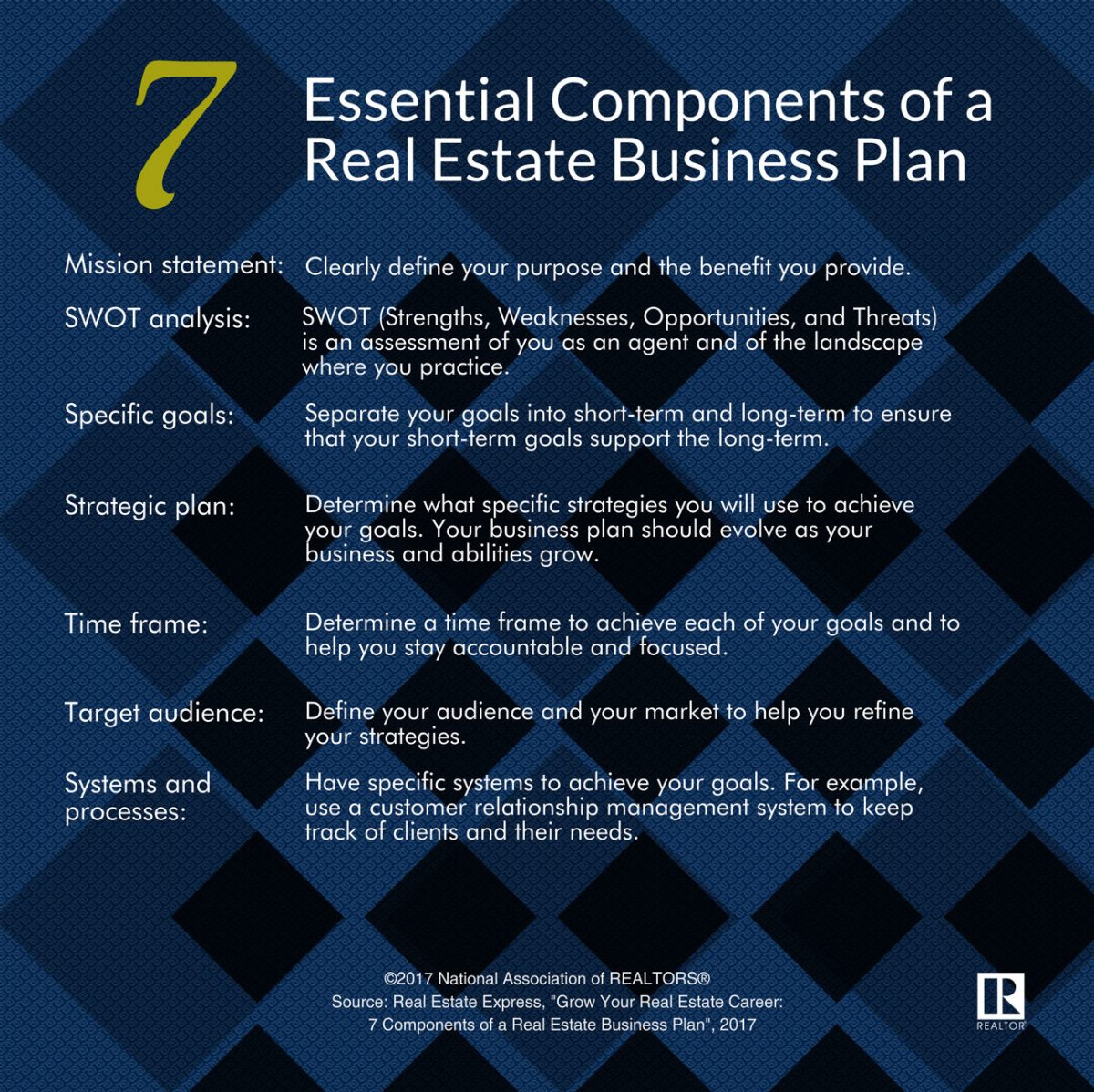
Why Write a Business Plan?
Making a business plan creates the foundation for your business. It provides an easy-to-understand framework and allows you to navigate the unexpected.
Quick Takeaways
- A good business plan not only creates a road map for your business, but helps you work through your goals and get them on paper
- Business plans come in many formats and contain many sections, but even the most basic should include a mission and vision statement, marketing plans, and a proposed management structure
- Business plans can help you get investors and new business partners
Source: Write Your Business Plan: United States Small Business Association
Writing a business plan is imperative to getting your business of the ground. While every plan is different – and most likely depends on the type and size of your business – there are some basic elements you don’t want to ignore.
Latest on this topic

NAR Library & Archives has already done the research for you. References (formerly Field Guides) offer links to articles, eBooks, websites, statistics, and more to provide a comprehensive overview of perspectives. EBSCO articles ( E ) are available only to NAR members and require the member's nar.realtor login.
Defining Your Mission & Vision
Writing a business plan begins by defining your business’s mission and vision statement. Though creating such a statement may seem like fluff, it is an important exercise. The mission and vision statement sets the foundation upon which to launch your business. It is difficult to move forward successfully without first defining your business and the ideals under which your business operates. A company description should be included as a part of the mission and vision statement. Some questions you should ask yourself include:
- What type of real estate do you sell?
- Where is your business located?
- Who founded your business?
- What sets your business apart from your competitors?
What is a Vision Statement ( Business News Daily , Jan. 16, 2024)
How to Write a Mission Statement ( The Balance , Jan. 2, 2020)
How to Write a Mission Statement ( Janel M. Radtke , 1998)
Using a SWOT Analysis to Structure Your Business Plan
Once you’ve created a mission and vision statement, the next step is to develop a SWOT analysis. SWOT stands for “Strengths, Weaknesses, Opportunities, and Threats.” It is difficult to set goals for your business without first enumerating your business’s strengths and weaknesses, and the strengths and weaknesses of your competitors. Evaluate by using the following questions:
- Do you offer superior customer service as compared with your competitors?
- Do you specialize in a niche market? What experiences do you have that set you apart from your competitors?
- What are your competitors’ strengths?
- Where do you see the market already saturated, and where are there opportunities for expansion and growth?
Strength, Weakness, Opportunity, and Threat (SWOT) ( Investopedia , Oct. 30, 2023)
How to Conduct a SWOT Analysis for Your Small Business ( SCORE , Apr. 28, 2022)
SWOT Analysis Toolbox ( University of Washington )
Setting Business Goals
Next, translate your mission and vision into tangible goals. For instance, if your mission statement is to make every client feel like your most important client, think about the following:
- How specifically will you implement this?
- Do you want to grow your business?
- Is this growth measured by gross revenue, profit, personnel, or physical office space?
- How much growth do you aim for annually?
- What specific targets will you strive to hit annually in the next few years?
Setting Business Goals & Objectives: 4 Considerations ( Harvard Business School , Oct. 31, 2023)
What are Business Goals? Definition, How To Set Business Goals and Examples ( Indeed , Jul. 31, 2023)
Establishing a Format
Most businesses either follow a traditional business plan format or a lean startup plan.
Traditional Business Plan
A traditional business plan is detailed and comprehensive. Writing this business plan takes more time. A traditional business plan typically contains the following elements:
- Executive Summary
- Company description
- Market analysis
- Organization and management
- Service or product line
- Marketing and sales
- Funding request
- Financial projections
Lean Startup Plan
A lean startup plan requires high-level focus but is easier to write, with an emphasis on key elements. A lean startup plan typically contains the following elements:
- Key partnerships
- Key activities
- Key resources
- Value proposition
- Customer relationships
- Customer segments
- Cost structure
- Revenue stream
Creating a Marketing Plan
You may wish to create a marketing plan as either a section of your business plan or as an addendum. The Marketing Mix concerns product , price , place and promotion .
- What is your product?
- How does your price distinguish you from your competitors—is it industry average, upper quartile, or lower quartile?
- How does your pricing strategy benefit your clients?
- How and where will you promote your services?
- What types of promotions will you advertise?
- Will you ask clients for referrals or use coupons?
- Which channels will you use to place your marketing message?
Your Guide to Creating a Small Business Marketing Plan ( Business.com , Feb. 2, 2024)
10 Questions You Need to Answer to Create a Powerful Marketing Plan ( The Balance , Jan. 16, 2020)
Developing a Marketing Plan ( Federal Deposit Insurance Corporation )
Forming a Team
Ensuring the cooperation of all colleagues, supervisors, and supervisees involved in your plan is another important element to consider. Some questions to consider are:
- Is your business plan’s success contingent upon the cooperation of your colleagues?
- If so, what specifically do you need them to do?
- How will you evaluate their participation?
- Are they on-board with the role you have assigned them?
- How will you get “buy in” from these individuals?
How to Build a Real Estate Team + 7 Critical Mistakes to Avoid ( The Close , May 17, 2023)
Don’t Start a Real Estate Team Without Asking Yourself These 8 Questions ( Homelight , Jan. 21, 2020)
Implementing a Business Plan and Reviewing Regularly
Implementation and follow-up are frequently overlooked aspects to the business plan, yet vital to the success of the plan. Set dates (annually, semi-annually, quarterly, or monthly) to review your business plans goals. Consider the following while reviewing:
- Are you on track?
- Are the goals reasonable to achieve, impossible, or too easy?
- How do you measure success—is it by revenue, profit, or number of transactions?
And lastly, think about overall goals.
- How do you plan to implement your business plan’s goals?
- When will you review and refine your business plan goals?
- What process will you use to review your goals?
- What types of quantitative and qualitative data will you collect and use to measure your success?
These items are only a few sections of a business plan. Depending on your business, you may want to include additional sections in your plan such as a:
- Cover letter stating the reasoning behind developing a business plan
- Non-disclosure statement
- Table of contents
How To Write a Business Proposal Letter (With Examples) ( Indeed , Jul. 18, 2023)
How To Implement Your Business Plan Objectives ( The Balance , Aug. 19, 2022)
The Bottom Line
Creating a business plan may seem daunting, but by understanding your business and market fully, you can create a plan that generates success (however you choose to define it).
Real Estate Business Plans – Samples, Instructional Guides, and Templates
9 Steps to Writing a Real Estate Business Plan + Templates ( The Close , Apr. 3, 2024)
How to Write a Real Estate Business Plan (+Free Template) ( Fit Small Business , Jun. 30, 2023)
The Ultimate Guide to Creating a Real Estate Business Plan + Free Template ( Placester )
Write Your Business Plan ( U.S. Small Business Administration )
General Business Plans – Samples, Instructional Guides, and Templates
Business Plan Template for a Startup Business ( SCORE , Apr. 23, 2024)
Guide to Creating a Business Plan with Template (Business News Daily, Mar. 28, 2024)
Nine Lessons These Entrepreneurs Wish They Knew Before Writing Their First Business Plans ( Forbes , Jul. 25, 2021)
How to Write a Business Plan 101 ( Entrepreneur , Feb. 22, 2021)
Books, eBooks & Other Resources
Ebooks & other resources.
The following eBooks and digital audiobooks are available to NAR members:
The Straightforward Business Plan (eBook)
Business Plan Checklist (eBook)
The SWOT Analysis (eBook)
The Business Plan Workbook (eBook)
Start-Up! A Beginner's Guide to Planning a 21st Century Business (eBook)
Complete Book of Business Plans (eBook)
How to Write a Business Plan (eBook)
The Easy Step by Step Guide to Writing a Business Plan and Making it Work (eBook)
Business Planning: 25 Keys to a Sound Business Plan (Audiobook)
Your First Business Plan, 5 th Edition (eBook)
Anatomy of a Business Plan (eBook)
Writing a Business Plan and Making it Work (Audiobook)
The Social Network Business Plan (eBook)
Books, Videos, Research Reports & More
As a member benefit, the following resources and more are available for loan through the NAR Library. Items will be mailed directly to you or made available for pickup at the REALTOR® Building in Chicago.
Writing an Effective Business Plan (Deloitte and Touche, 1999) HD 1375 D37w
Have an idea for a real estate topic? Send us your suggestions .
The inclusion of links on this page does not imply endorsement by the National Association of REALTORS®. NAR makes no representations about whether the content of any external sites which may be linked in this page complies with state or federal laws or regulations or with applicable NAR policies. These links are provided for your convenience only and you rely on them at your own risk.

Real Estate Investing for Beginners: 12 Expert Tips for Buying Your First Investment Property
Reading Time: 9 minutes
Have you ever been captivated by the ins and outs of real estate investing, declaring, “I could do that,” or even, “I want to do that,” but couldn’t pinpoint where to start? If so, you’re in luck because this Redfin article is tailor-made just for you.
Buying your first investment property has the potential to be an exhilarating and profitable adventure. However, let’s face it: The complex landscape of real estate investing can be intimidating without the right knowledge and guidance. But fear not. In this all-encompassing guide, we will unveil a treasure trove of expert tips and invaluable insights that will empower you to fearlessly navigate the process. From relationship-building to conducting due diligence, you’ll be equipped with the knowledge and strategies to enter the world of real estate investing and buy your first investment property with ease. Let’s get started!

1. Learn from experienced investors
When it comes to real estate investing, there’s no better way to learn than from those already doing it. Learning from experienced investors can vastly build your understanding of how it works, beginning with market research and ending with either the sale or signing a tenant in your new rental. You can even learn from other investor professionals by identifying if there is a way you can help them.
“I hear many new investors say that they don’t feel they have anything to offer, but that is untrue,” says Kathie Russell, a board member of the North Carolina Real Estate Investors Association . “Everyone has something to offer. I guarantee that something you do in your day job or as a hobby will be helpful to somebody.” She adds that to begin building your relationships with investors is to find your local REIA. “These groups are an absolute must for new or aspiring investors. There you will meet your lenders, your mentors, your friends, and your advisors.”
Subhadip Chakraborty with Fast Cash My Home shares that it is “crucial to dedicate time to research.” They add how your research should encompass “understanding the process and expenses involved in purchasing the property, including closing costs and other financing fees, expenses for repairs, extra monthly payments for utilities, property taxes, insurance, and the potential market value of the property after renovations.”
The learning curve isn’t overnight, therefore you’ll want to manage your expectations. Leigh Ballen with Chicago Hard Money and Bridge Loans states that you should “expect to do several [home flips] before you learn all that much or make money.” Don’t be discouraged by the curve, instead, Leigh shares how each flip is an opportunity to “to do these well” and adds how “it doesn’t come from doing one.”

Deciding between renting or buying your next home?
Building a reliable team of professionals who specialize in real estate investment can provide invaluable guidance and support throughout the process. Max Boyko with Optimus Capital shares how there are “three pillars to a successful venture.” Those three pillars are all individuals who will be a part of your team: “a strong real estate agent, an experienced contractor, and an investment specialized lender.”
Eric Feldman, SVP of Sales and Marketing at Longhorn Investments stresses the importance of knowing who your decision makers are regarding your investment strategy and process. Within the world of real estate investing, everyone is trying to secure the best deal, thus meaning properties move quickly – so having a team of trusted individuals in place is essential.
You should identify a knowledgeable real estate agent who understands the local market and can help you identify promising investment opportunities. Additionally, having a competent real estate attorney can ensure that your legal interests are protected during negotiations and contract signings. An appraiser will help identify the actual value of a property, which can help you avoid overpaying. Collaborating with an experienced property inspector can help identify potential issues and prevent costly surprises down the line. Lastly, establishing relationships with reputable contractors and property managers can streamline property renovations and day-to-day operations.

3. Invest in your tools
Managing your projects is crucial on different levels. To do that effectively you’ll want to be sure you have all the right tools in place.
Don Costa with Forefront CRM calls having an “effective CRM tool the “key to success.” He shares how your CRM can “help you manage leads” in addition to “creating tasks, automating your follow-up, generating end-of-day reports, and accessing on-screen comps and property information in one tool.” Tools such as a CRM can also help you manage your conversion rates. Brian Rudderow with HBR Colorado refers to this rate as a “key performance indicator of how many deals it takes to get one closed” and adds how when you are “first starting off…expect 30 leads to close one deal.” Brian adds how “that number should be tracked and monitored until it is optimized to around 1–15 leads per deal.”
4. Rely on market data
When it comes to real estate investing, Doug Van Soest, founder of SoCal Home Buyers , wisely emphasizes the potential risks involved in buying an investment property. However, these risks can be mitigated by leveraging available data. Van Soest suggests conducting a thorough comparative market analysis (CMA) using the wealth of data at your disposal to understand the current state of the marketplace. Shane Dulgeroff, president and broker for Shane Homes in Los Angeles , says to “be bullish” and “cautious if you are looking for a quick flip.” He adds how the market can shift quickly; therefore, be certain to examine factors such as property prices, rental rates, vacancy rates, and historical trends, so you can make informed decisions and alleviate some of the risks associated with real estate investments.
5. Consider area potential and long-term equity gains
Buying your first investment property doesn’t necessarily mean it will be where you reside. When considering where to purchase, you’ll want to think about a location’s potential and the possible long-term equity gains associated with the area. Bri Steel, broker and owner of Live Love Santa Cruz , recommends studying an area for “desirable characteristics” such as “whether it’s close to the ocean, a lake or park, and the school district.”
Ace Woods, real estate agent and founder of Revest Homes shares not to “be afraid to branch out geographically; look for a state or area that has an affordable entry point, while still offering solid capitalization rates and appreciation.” Ace cautions that your “capitalization should be higher than your interest rates, or else you may find yourself upside down.”
Shona Lepis with Shona Buys Houses shares how “crunching numbers is crucial and you have to buy at the right price from the beginning to make sure there’s a profit.” She adds how it can be “easy to get swept up in the excitement of finding a deal, but if it doesn’t pencil, it’s simply not worth it.” One of your financial projections should be determining your after repair value (ARV). Shona states that the ARV should be “conservative” and the scope of your rehab budget should be “realistic”.
Scott Jones, the economic development director for the city of Manor, Texas , proudly showcases his community as a shining example of a location’s potential. “Manor either has or is working to have it all as we speak,” says Jones. “Manor is only minutes away from everything Central Texas offers. This includes abundant, relatively inexpensive land for development, a high-quality education system, first-class public safety and utilities, mass transit to Downtown Austin, and much more.”
Manor, Texas, has seen significant housing growth year over year. In May 2020, the median sales price was $234,000; as of May 2023, the median sales price equals $350,000 (nearly a 50% increase YOY). Consulting with local experts and real estate agents can help identify up-and-coming areas that can play a pivotal role in creating high ROI opportunities.

6. Explore your loan options
When buying your first investment property, it’s essential to explore the available loan options. Understanding and comparing mortgages, government-backed loans, and private financing can greatly impact your financial success. Research and consult experts to make an informed decision that aligns with your investment goals and long-term stability.
HomeAbroad, a service for connecting buyers to lenders , has a tip about Debt-Service Coverage Ratio (DSCR) loans . “While conventional loans may require income and debt to income, DSCR loans evaluate the property’s income potential and cash flow to determine loan eligibility. DSCR loans do not consider investors’ income, making them ideal for investors seeking cash flow-driven investments.”

7. Perform your legal due diligence
Joshua Holt, the founder of Big Law Investors , urges real estate investors to understand the importance of conducting comprehensive legal due diligence before purchasing a property. Holt expands on this by saying, “check the title deeds to ensure there are no hidden encumbrances or disputes, review zoning laws and local ordinances to ensure that the property can be used as intended, and double check that all taxes are clear.”
“The last thing you want is to find out that local laws prevent short-term lease arrangements after you’ve purchased the property for that specific purpose,” says Holt. “Conducting legal due diligence before purchasing the property is important to ensure you protect your investment and avoid costly legal issues later on.”

8. Never buy a property without having an inspection
A home inspection is pivotal in identifying potential flaws within a property. Home inspections can also help determine an investor’s renovation budget and help alleviate newfound stressors throughout the rehab process.
Ronnie Jackson, general contractor of Austin Home Renovations , urges buyers to “never purchase a property without an inspection provided by a licensed real estate inspector.” Additionally, Jackson adds that you shouldn’t “complete your option period without having that inspection evaluated by a professional contractor.”
9. Don’t forget about taxes
Yes, taxes are a significant component of real estate investing. First, there are property taxes. Tony Trahan, a property tax consultant of KE Andrews , shares that “when buying a real estate investment property, one of the most critical factors during your due diligence or underwriting process is correctly modeling the property taxes owed going forward. In many states, this valuation determines your taxes and is highly negotiated.”
Capital gains tax is another tax to consider (and budget for), especially if you intend to sell your investment property. There are two forms of capital gains taxes, short-term and long-term. Short-term capital gains tax refers to the tax paid on profits from the sale of assets that have been held for one year or less. It is generally subject to ordinary income tax rates, which vary depending on an individual’s tax bracket. On the other hand, long-term capital gains tax applies to profits from the sale of assets held for more than one year. Long-term capital gains tax rates are typically lower than ordinary income tax rates, offering potential tax advantages for investors who hold their assets for an extended period. The specific long-term capital gains tax rates depend on the individual’s income level and the type of asset being sold.

10. Submit a competitive offer
When making an offer on your first investment property, you should be prepared to act swiftly and present a strong offer with attractive terms, such as a pre-approval letter, a substantial earnest money deposit, and flexibility on closing timelines. While it’s important to be competitive, it’s equally crucial to ensure that your offer aligns with your financial goals and allows for a profitable investment.
11. Get insurance coverage
Whether you’re in the rehabilitation stage of your home flip or are holding a property as a rental, you’ll want to be sure you’re adequately insured. Comprehensive property insurance should protect the structure, renovations, and fixtures, guarding against perils like fire, theft, and natural disasters. Liability insurance is crucial to cover potential lawsuits or claims by others for injuries or property damage. Builder’s risk insurance can safeguard against losses during construction or renovation, while rental property insurance is specifically designed for landlords, covering structures, liability, and rental income loss.
Pegram Insurance Agency elaborates on landlord policies, “which can help protect you financially in case of damage to your property or liability claims.” Understanding which coverage works best for your situation is critical; Pegram Insurance Agency adds that “there’s a big difference between renting to long-term tenants and renting on Airbnb/VRBO. Airbnb and short-term rentals require specific endorsements for additional coverage, so check with your insurance provider.”

12. Renting your property
If your investment strategy includes renting your property, Jordan Davey, digital marketing director of Victory Property Management , offers insights from mitigating rental risks to maximizing received applications. Davey highlights performing screenings on all applicants, reminding landlords to “not take rental applications for face value. Get income verification and be on the lookout for anything that may appear suspicious.”
Additionally, Davey recommends working with your real estate agent to price the property accurately. It’s important not to overprice a rental home, but equally important to not underprice. Do your due diligence and review accurate CMA data to determine a price best suited to your market’s demands.
A final note on buying your first investment property
In conclusion, purchasing your first investment property can be an exciting and potentially lucrative endeavor. Jeremy Bourgeois with Scout Peak Home Buyers highlights the importance of understanding and performing your “due diligence” which encompasses understanding your local market, property values, and assessing necessary repairs and renovations.” By considering these key factors you can set yourself up for success. Remember to approach the process with careful planning, a long-term perspective, and a willingness to adapt as needed. So, take the leap, embrace the opportunities, and embark on your journey as a real estate investor.
Marcello Kline is a content marketer for Redfin. With over a year of experience writing for Redfin and a background as a former real estate agent and home flipper, he brings valuable insights to the real estate community. Based in Los Angeles, Marcello enjoys the serene beaches of Malibu, playing tennis, and hiking on a moody overcast day. His ideal home is a Regency house in London, reflecting his appreciation for classic architecture and design.
Find the right loan for the home you love
Popular homes for sale.

Browse homes you'll love
Relevant articles.

NAR Settlement: Kaboom!

Funding Your Home Makeover with Bitcoin: How to Use Bitcoin for Home Renovations

16 Things to Do Immediately After Buying a Home and You Receive Your Keys

How Much Should I Charge for Rent? A Landlords’ Guide to Determining Rental Rates

Should You Buy Down Your Mortgage Interest Rate?

Should I Lock in My Mortgage Rate Today?
Popular posts, latest posts.

What is a Jumbo Loan in Minnesota in 2024?

Unveiling San Antonio’s Top Luxury Home Features: 8 Amenities that Define Luxury Living

What is a Jumbo Loan in New Mexico in 2024?

What is a Jumbo Loan in Alabama in 2024?

What is a Jumbo Loan in Arkansas in 2024?

What is a Jumbo Loan in Oklahoma in 2024?

What is Corpus Christi, TX Known For? 10 Things to Love About This City

What is Laredo, TX Known For? 10 Things to Love About This City

Baseball Games in Miami: A Guide to MLB Season and Beyond

What is Honolulu, HI Known For? 10 Things to Love About This City

What is North Las Vegas, NV Known For? 10 Things to Love About This City

What is Chesapeake, VA Known For? 9 Things to Love About This City
Follow redfin, connect with a redfin agent.
- Albuquerque Real Estate
- Alexandria Real Estate
- Anchorage Real Estate
- Arlington Real Estate
- Ashburn Real Estate
- Atlanta Real Estate
- Aurora Real Estate
- Austin Real Estate
- Bakersfield Real Estate
- Baltimore Real Estate
- Baton Rouge Real Estate
- Beaverton Real Estate
- Bend Real Estate
- Birmingham Real Estate
- Boca Raton Real Estate
- Boise Real Estate
- Boston Real Estate
- Boulder Real Estate
- Bowie Real Estate
- Brentwood Real Estate
- Buffalo Real Estate
- Burlington Real Estate
- Cape Coral Real Estate
- Chandler Real Estate
- Charleston Real Estate
- Charlotte Real Estate
- Chattanooga Real Estate
- Chicago Real Estate
- Cincinnati Real Estate
- Colorado Springs Real Estate
- Columbia Real Estate
- Columbus Real Estate
- Dallas Real Estate
- Denver Real Estate
- Des Moines Real Estate
- Detroit Real Estate
- El Paso Real Estate
- Elk Grove Real Estate
- Eugene Real Estate
- Fairfax Real Estate
- Flagstaff Real Estate
- Fort Collins Real Estate
- Fort Lauderdale Real Estate
- Fort Myers Real Estate
- Fort Worth Real Estate
- Frederick Real Estate
- Fremont Real Estate
- Fresno Real Estate
- Frisco Real Estate
- Gilbert Real Estate
- Glenview Real Estate
- Henderson Real Estate
- Honolulu Real Estate
- Houston Real Estate
- Indianapolis Real Estate
- Irvine Real Estate
- Jacksonville Real Estate
- Jersey City Real Estate
- Kansas City Real Estate
- Knoxville Real Estate
- Lake Tahoe Real Estate
- Las Vegas Real Estate
- Little Rock Real Estate
- Long Island Real Estate
- Los Angeles Real Estate
- Louisville Real Estate
- Madison Real Estate
- Manhattan Real Estate
- Manteca Real Estate
- Memphis Real Estate
- Mesa Real Estate
- Miami Real Estate
- Milwaukee Real Estate
- Minneapolis Real Estate
- Modesto Real Estate
- Myrtle Beach Real Estate
- Naperville Real Estate
- Naples Real Estate
- Nashua Real Estate
- Nashville Real Estate
- New Orleans Real Estate
- New York Real Estate
- Newton Real Estate
- Oakland Real Estate
- Oklahoma City Real Estate
- Omaha Real Estate
- Orland Park Real Estate
- Orlando Real Estate
- Palm Springs Real Estate
- Philadelphia Real Estate
- Phoenix Real Estate
- Pittsburgh Real Estate
- Plainfield Real Estate
- Plano Real Estate
- Portland Real Estate
- Providence Real Estate
- Quincy Real Estate
- Raleigh Real Estate
- Rancho Cucamonga Real Estate
- Reno Real Estate
- Richmond Real Estate
- Riverside Real Estate
- Rochester Real Estate
- Sacramento Real Estate
- Salem Real Estate
- Salt Lake City Real Estate
- San Antonio Real Estate
- San Diego Real Estate
- San Francisco Real Estate
- San Jose Real Estate
- San Luis Obispo Real Estate
- Santa Clarita Real Estate
- Santa Fe Real Estate
- Sarasota Real Estate
- Savannah Real Estate
- Schaumburg Real Estate
- Scottsdale Real Estate
- Seattle Real Estate
- Silver Spring Real Estate
- Sioux Falls Real Estate
- St. Louis Real Estate
- Stamford Real Estate
- Stockton Real Estate
- Tacoma Real Estate
- Tampa Real Estate
- Temecula Real Estate
- Tucson Real Estate
- Tulsa Real Estate
- Virginia Beach Real Estate
- Washington, DC Real Estate
- West Palm Beach Real Estate
- Wilmington Real Estate
- Woodbridge Real Estate
- Worcester Real Estate
- Alabama • Homes for sale
- Alaska • Homes for sale
- Arizona • Homes for sale
- Arkansas • Homes for sale
- California • Homes for sale
- Colorado • Homes for sale
- Connecticut • Homes for sale
- Delaware • Homes for sale
- Florida • Homes for sale
- Georgia • Homes for sale
- Hawaii • Homes for sale
- Idaho • Homes for sale
- Illinois • Homes for sale
- Indiana • Homes for sale
- Iowa • Homes for sale
- Kansas • Homes for sale
- Kentucky • Homes for sale
- Louisiana • Homes for sale
- Maine • Homes for sale
- Maryland • Homes for sale
- Massachusetts • Homes for sale
- Michigan • Homes for sale
- Minnesota • Homes for sale
- Mississippi • Homes for sale
- Missouri • Homes for sale
- Nebraska • Homes for sale
- Nevada • Homes for sale
- New Hampshire • Homes for sale
- New Jersey • Homes for sale
- New Mexico • Homes for sale
- New York • Homes for sale
- North Carolina • Homes for sale
- Ohio • Homes for sale
- Oklahoma • Homes for sale
- Oregon • Homes for sale
- Pennsylvania • Homes for sale
- Rhode Island • Homes for sale
- South Carolina • Homes for sale
- South Dakota • Homes for sale
- Tennessee • Homes for sale
- Texas • Homes for sale
- Utah • Homes for sale
- Vermont • Homes for sale
- Virginia • Homes for sale
- Washington • Homes for sale
- West Virginia • Homes for sale
- Wisconsin • Homes for sale
- Albuquerque apartments for rent
- Alexandria apartments for rent
- Arlington apartments for rent
- Atlanta apartments for rent
- Augusta apartments for rent
- Austin apartments for rent
- Bakersfield apartments for rent
- Baltimore apartments for rent
- Barnegat apartments for rent
- Baton Rouge apartments for rent
- Birmingham apartments for rent
- Boston apartments for rent
- Charlotte apartments for rent
- Chattanooga apartments for rent
- Chicago apartments for rent
- Cincinnati apartments for rent
- Cleveland apartments for rent
- Columbia apartments for rent
- Columbus apartments for rent
- Dallas apartments for rent
- Dayton apartments for rent
- Denver apartments for rent
- Detroit apartments for rent
- Durham apartments for rent
- Fayetteville apartments for rent
- Fort Worth apartments for rent
- Fresno apartments for rent
- Greensboro apartments for rent
- Houston apartments for rent
- Huntsville apartments for rent
- Indianapolis apartments for rent
- Irving apartments for rent
- Jacksonville apartments for rent
- Kansas City apartments for rent
- Knoxville apartments for rent
- Las Vegas apartments for rent
- Los Angeles apartments for rent
- Louisville apartments for rent
- Macon apartments for rent
- Marietta apartments for rent
- Melbourne apartments for rent
- Memphis apartments for rent
- Mesa apartments for rent
- Miami apartments for rent
- Milwaukee apartments for rent
- Minneapolis apartments for rent
- Mobile apartments for rent
- Murfreesboro apartments for rent
- Nashville apartments for rent
- New York apartments for rent
- Norfolk apartments for rent
- Oklahoma City apartments for rent
- Omaha apartments for rent
- Orlando apartments for rent
- Pensacola apartments for rent
- Philadelphia apartments for rent
- Phoenix apartments for rent
- Pittsburgh apartments for rent
- Plano apartments for rent
- Portland apartments for rent
- Raleigh apartments for rent
- Reno apartments for rent
- Richmond apartments for rent
- Riverside apartments for rent
- Rochester apartments for rent
- Sacramento apartments for rent
- Saint Louis apartments for rent
- Saint Petersburg apartments for rent
- San Antonio apartments for rent
- San Diego apartments for rent
- Savannah apartments for rent
- Seattle apartments for rent
- Springfield apartments for rent
- Tampa apartments for rent
- Tempe apartments for rent
- Tucson apartments for rent
- Tulsa apartments for rent
- Virginia Beach apartments for rent
- Washington apartments for rent
- Abilene houses for rent
- Albany houses for rent
- Amarillo houses for rent
- Arlington houses for rent
- Atlanta houses for rent
- Augusta houses for rent
- Austin houses for rent
- Bakersfield houses for rent
- Birmingham houses for rent
- Charlotte houses for rent
- Chesapeake houses for rent
- Chicago houses for rent
- Clarksville houses for rent
- Columbia houses for rent
- Columbus houses for rent
- Concord houses for rent
- Dallas houses for rent
- Dayton houses for rent
- Denver houses for rent
- Destin houses for rent
- Dothan houses for rent
- El Paso houses for rent
- Eugene houses for rent
- Fayetteville houses for rent
- Fort Wayne houses for rent
- Fresno houses for rent
- Greensboro houses for rent
- Greenville houses for rent
- Griffin houses for rent
- Hampton houses for rent
- Henderson houses for rent
- Houston houses for rent
- Huntsville houses for rent
- Indianapolis houses for rent
- Jackson houses for rent
- Jacksonville houses for rent
- Kissimmee houses for rent
- Knoxville houses for rent
- Lafayette houses for rent
- Lakeland houses for rent
- Lancaster houses for rent
- Lansing houses for rent
- Lawton houses for rent
- Macon houses for rent
- Marietta houses for rent
- Memphis houses for rent
- Mesa houses for rent
- Mobile houses for rent
- Montgomery houses for rent
- Murfreesboro houses for rent
- Nashville houses for rent
- Orlando houses for rent
- Pensacola houses for rent
- Phoenix houses for rent
- Port Saint Lucie houses for rent
- Portland houses for rent
- Raleigh houses for rent
- Reno houses for rent
- Richmond houses for rent
- Riverside houses for rent
- Roanoke houses for rent
- Sacramento houses for rent
- Saint Petersburg houses for rent
- Salem houses for rent
- San Antonio houses for rent
- Savannah houses for rent
- Spokane houses for rent
- Springfield houses for rent
- Stockton houses for rent
- Tampa houses for rent
- Toledo houses for rent
- Tucson houses for rent
- Tyler houses for rent
- Valdosta houses for rent
- Vancouver houses for rent
- Waco houses for rent
- Warner Robins houses for rent
- Wichita houses for rent
- Wilmington houses for rent

Updated January 2020: By searching, you agree to the Terms of Use , and Privacy Policy .
REDFIN IS COMMITTED TO AND ABIDES BY THE FAIR HOUSING ACT AND EQUAL OPPORTUNITY ACT. READ REDFIN’S FAIR HOUSING POLICY .
Copyright: © 2022 Redfin. All rights reserved. Patent pending.
REDFIN and all REDFIN variants, TITLE FORWARD, WALK SCORE, and the R logos, are trademarks of Redfin Corporation, registered or pending in the USPTO.
California DRE #01521930
NY Standard Operating Procedures
TREC: Info About Brokerage Services , Consumer Protection Notice
If you are using a screen reader, or having trouble reading this website, please call Redfin Customer Support for help at 1-844-759-7732.
How to Write an Investment Proposal [Template + Examples]
Published: June 28, 2024
As a writer, I’m extremely familiar with the concept of proposals. We write these sorts of proposals to convert clients, persuade buyers, and grow our business in the short term. However, investment proposals are a bit different — these proposals are written with a unique purpose for a specific audience and with some high stakes attached.

An investment proposal is the key to long-term business growth for many businesses, so it’s important to get it right.

In this article, I’ll define investment proposals, compare them to the business proposal, and then break down the components. I’ll provide a template, look at investment proposal examples, and even hear some tips for writing from a professional.
Table of Contents
What is an Investment Proposal?
Investment proposal vs. business proposal, 10 components of an investment proposal, how to write an investment proposal [+template], investment proposal examples [+tips].
An investment proposal is a document outlining the plan for a business. You use it to attract or convert investors to fund your organization. It covers the strategy of your business, the market, and financial projections, making it an essential document for conversion — empowering them to invest.

Don't forget to share this post!
Related articles.
![example of real estate investment business plan How to Write a Partnership Proposal [Examples + Template]](https://www.hubspot.com/hubfs/ft-proposal.webp)
How to Write a Partnership Proposal [Examples + Template]

16 Examples of Positioning Statements & How to Craft Your Own

Startup Due Diligence: What it Is & Why it Matters

What is a Go-to-Market Strategy? GTM Plan Template + Examples
![example of real estate investment business plan 300+ Business Name Ideas to Inspire You [+7 Brand Name Generators]](https://www.hubspot.com/hubfs/business-name-ideas_17.webp)
300+ Business Name Ideas to Inspire You [+7 Brand Name Generators]

The Importance of Having a Startup Exit Strategy

10 Top Tech Startups To Watch

The Biggest Pros and Cons of Working for a Startup

15 Startup Newsletters for Entrepreneurs

12 Top Startup Consulting Firms To Improve Your Business
2 Essential Templates For Starting Your Business
Powerful and easy-to-use sales software that drives productivity, enables customer connection, and supports growing sales orgs

- Dividend Investing
- All Investing Articles
- All Managing Articles
- Retirement Planning
- All Planning Articles
- Best Resources
Advertiser Disclosure: This article contains references to products or services from one or more of our advertisers or partners. We may receive compensation when you click on links to those products or services.
Which Type of Real Estate Investment is Right for You? 8 to Know

Disclosure: We scrutinize our research, ratings and reviews using strict editorial integrity. In full transparency, this site may receive compensation from partners listed through affiliate partnerships, though this does not affect our ratings. Learn more about how we make money by visiting our advertiser disclosure .
Investing in real estate could be a very smart financial decision with proper planning and budgeting. Real estate tends to appreciate in value over time, can act as a hedge against stock market volatility, offers great tax advantages and also can provide a stable monthly income. All things considered, buying property represents one of the most effective ways to build wealth , but also one of the slowest.
Though, once your investments start to compound, your portfolio will begin to generate significant income from your assets . You can reinvest the profits you make from selling previous investments and see your wealth truly begin to snowball.
To learn more about the different types of real estate investments available to you as well as how to determine the right one for you, continue reading this comprehensive guide.
Types of Real Estate Investments
1. short-term rentals.
Short-term rental properties, otherwise known as vacation rentals, can act as one of the best ways to generate significant income from your real estate holdings.
Owners can charge higher rates per day than long-term investment properties and they can also potentially use the home themselves when renters do not occupy the property.
Moreover, home-sharing apps such as Airbnb and Vrbo have made vacation rentals much more accessible and easier to market than ever before.
Vacation properties can also represent one of the more expensive types of real estate investments. They can potentially carry intensive maintenance costs as a result of excessive wear and tear.
Further, you will have to clean it after each stay, which could range from every couple of weeks to every day, depending on your guest preferences.
If you do not want to get your hands dirty, you can hire a property manager, but you still need to manage your property manager to ensure the rental remains in good condition.
On short-term rentals, property managers typically charge around 25% of rent as compensation, more than long-term rental property managers discussed next.
You also run the possibility of having your short-term rental remain empty for long periods of time, especially during the off-season. This could lead to lost income if your budget does not reflect this eventuality.
2. Long-Term Rentals
Becoming a landlord and owning a long-term rental property (or several) is one of the most common ways to invest in physical real estate. Some people pay cash for their rental properties, while others use leverage to take on more risk with financing and property management.
Those who can manage this portfolio appropriately can stand to make a significant amount of passive income while they sleep .
Long-term rentals provide more stability for owners than short-term because they usually come with leases lasting for a year or more. They also provide investors with a steady flow of monthly income via tenants’ rent payments .
Acting as a landlord rarely comes as an easy job. You will be on the hook for maintenance, repairs and any problems that arise with the property. Like with short-term rentals, you can hire a property manager, but this can eat into your passive income .
You will have to depend on your tenants being reliable and making their rent payments on time. If they don’t, you might have to pursue legal action or evict them for non-payment.
Purchasing your first long-term rental property can also require a significant amount of capital upfront, especially if you choose to pay cash for your rental properties , though financing options exist under different terms than a conventional owner-occupied mortgage.
Related: Best Video Intercom Systems for Apartments and Office Buildings
3. Fix and Flip
Flipping houses is a great way to get started in real estate investing if you have cash on hand. Fixer-uppers provide investors with the ability to purchase properties in neighborhoods that might otherwise be out of their price range because the home is in need of repair.
They hold the potential to turn a significant profit, especially for handy individuals who can tackle most of the renovations on their own.
Moreover, if you find an off-market property that looks like it’s in bad shape, you may be able to approach the owner directly and close the sale without a realtor (and avoid commission fees).
If you have interest in accelerating the growth of your real estate investment portfolio, you might consider pursuing the BRRRR Method , a strategy reliant on uncovering hidden gems and rehabbing them.
Flipping a fixer-upper is a big responsibility and will require a lot of time, money and effort. The process is very intensive, and you will be involved in everything from choosing paint colors to making major repairs.
Basically, if you are a passive investor, these types of properties are not for you.
Buying an outdated property in the hopes of turning a profit can also quickly go wrong if the house has more damage than you initially expected. You will also likely need to obtain a hard money loan using the property as collateral, as opposed to funding the purchase with a mortgage.
Hard money loans have higher interest rates ( between 7% to 12% ) and shorter repayment periods (usually 6 to 18 months).
Although higher rates are offset by quick turnaround times, if it takes too long to sell the property, you could run the risk of defaulting on the loan and losing the property altogether.
→ Investing in Rental Real Estate Renovations (Groundfloor)
If you have interest in fixer-uppers but don’t have the personal expertise to select the right property nor choose the best contractors for their value, you should consider Groundfloor .
The service aims to make an asset class otherwise inaccessible to the general public: high-yield , short-term debt investments in fixer-uppers which have averaged 10% annual returns. Users need $1,000 to begin investing on the platform .
- Groundfloor is a crowdsourced real estate investing platform which offers high-yield, short-term real estate debt investments.
- Offers collateralized, secured real estate debt with 1-month, 3-month, and 12-month terms.
- Has delivered consistent 10%+ returns over past eight years with repayments received in 6-9 months on average.
- Offers after-tax and IRA investment options.
- Special offer: When you fund your account with at least $1,000, you will receive a $50 credit to invest on Groundfloor*.

4. House Hacking
House hacking can serve as a particularly good move for young adults looking for an investment . House hackers purchase a duplex, triplex or fourplex and then live in one unit while renting the others out to tenants.
These types of properties eliminate rent or mortgage payments because renters cover this cost by living in the other units.
To get started in house hacking, property owners can apply for a Federal Housing Authority (FHA) loan and purchase an investment property for just 3.5% down. And if you qualify for a Veterans Affairs (VA) loan, you could get even lower rates.
Another common advantage for house hacking is the ability to claim MACRS depreciation. When you own an income-producing investment property for at least a year, you can slowly depreciate the property’s cost and deduct this against your rental income.
In certain circumstances, if this results in a passive loss, you can deduct it from your active income under the “Mom and Pop” exception.
For residential properties, the applicable MACRS depreciation period is considered 27.5 years while commercial property uses a 39-year MACRS depreciation table to calculate your deductible expense.
Additionally, you can depreciate certain capital expenses, such as replacing a roof.
Note that when a property is sold, the IRS requires you to include recaptured depreciation on the Section 1231 or 1250 property . This requires the seller to realize the accumulated depreciation as ordinary income with a cap at 25%.
Like long-term rentals, house hacking requires investors to act as a landlord, meaning they will carry responsibility for any problems and repairs.
Moreover, similar to house-flipping, if you purchase a property that has more damage than initially expected, it could quickly turn into a money pit.
You will also need to have comfort living next door to your tenants.
5. Commercial Real Estate
Investing in commercial real estate carries high risks, but also high rewards. Owning an office or retail space allows you to rent out to businesses with lease terms typically much longer than residential rentals.
Plus, rental rates on this alternative investment option usually come in higher than residential rentals.
→ Investing in Individual Commercial Properties (EquityMultiple)
Some people want to avoid the personal involvement and instead invest through a crowdsourced real estate sponsor like EquityMultiple .
This platform handles the due diligence for finding and vetting commercial property investment opportunities as well as the day-to-day property management responsibilities.
If you qualify as an accredited investor, you might want to check out this commercial real estate investing opportunity.
- EquityMultiple is a commercial real estate platform for accredited investors, providing investment opportunities in real estate funds, individual properties, and savings alternatives.
- EquityMultiple has a team boasting decades of real estate transaction experience. Their due diligence process whittles down a large selection of properties, accepting only 5% as target investments that they use to build a variety of portfolios that suit numerous investing objectives.
- The company has made $379 million in distributions since its founding.
- Makes commercial real estate Investments accessible
- Intuitive website design
- High net total returns and distributions paid to investors
- Only available to accredited investors
- High investment minimum to begin
- Fee structure varies by investment, complex at times

Commercial real estate almost always comes with a higher price tag than residential real estate. As a result, you will need to save a large sum of money before moving forward.
You will also probably need to hire professional help to run the property as well as to handle emergency maintenance and repairs.
These investments carry higher risk because more people visit them each day, which means more people have chances to get hurt on the property (and sue). They can also more easily damage and vandalize the property on account of higher foot traffic.
6. Real Estate Investment Trusts (REITs)
If you want to make a passive real estate investment, then real estate investment trusts (REITs) can serve as a great option.
REITs are individual companies that own commercial properties such as hotels, apartments , office buildings and retail spaces. These investments usually pay high dividends and get used regularly in retirement funds.
They do so because by keeping your REITs in a non-taxable retirement account, you can automatically reinvest your dividends without a tax consequence, allowing your money to grow even further.
Webull is a free stock trading app that offers a wide selection of publicly-traded REIT options you might consider.
The free stock trading platform doesn’t charge commissions and even offers free stocks for signing up for their service and making an initial deposit. Once you open your account, you don’t need to maintain and minimum balances.
Although some REITs are publicly traded on an exchange similar to stocks, others are not. REITs that are not publicly traded are difficult to sell and harder to value. REITs also tend to have high minimum buy-in prices and take longer to generate profits than an active investment.
Ultimately, the type of REIT you choose will determine your level of risk.
→ Investing in Non-Publicly Traded REITs (Streitwise)
For interested investors, try looking at Streitwise , a professionally-managed REIT targeting commercial real estate properties. The service caters to accredited and non-accredited investors alike and charges up to 80% less than the company’s non-traded REIT competitors.
- Begin earning passive income in private real estate for ~$3,500.
- Streitwise REIT provides investors with access to stable, institutional-quality commercial properties.
- As of 4Q2023, Streitwise paid a quarterly dividend at an annualized rate of 7.2% since 2017, net of fees. This roughly doubles the average paid by public REIT alternatives.
- Strong performance track record vs. industry peers
- Lower fees than other funds (2%/yr., w/o syndicator fees)
- DRIP program
- High investment minimum (~$3,500)
- Penalty for redeeming shares within five years

7. Real Estate Crowdfunding Apps
If you have small amounts of money to start investing in property, crowdfunding platforms such as Fundrise and GROUNDFLOOR allow investors to purchase a portion of a specific real estate project.
These apps handle all of the due diligence, diversify your investment portfolio across several properties, take care of the day-to-day property management and provide retail access to interested investors.
With Fundrise, the platform offers investors ownership of small pieces of larger residential and commercial properties, individuals can start investing with as little as $10.
While not necessarily a con in everyone’s mind, participating in crowdfunding will require a longer time commitment (five years or more) and your funds will remain illiquid for a while.
Typically, this removes the temptation to move money in and out of investments, though losing access to your funds for a prolonged period of time can prove problematic if you need ready access.
Further, these crowdfunding platforms also charge fees, diminishing your returns. Granted, they also handle several of the elements which would require your attention and present significant opportunity cost. Make sure to take these trade-offs into consideration before moving forward.
Related: 11 Best Fundrise Alternatives [Accredited & Non-Accredited Apps]
8. Turnkey Real Estate
Turnkey real estate gets its name because a buyer simply needs to pay for the property and “turn the key” to move into the property. Real estate investors who choose to pursue this investing style prefer to have minimal headache related to renovating and rehabbing properties.
Instead, they’d prefer having all of the dirty work taken care of prior to their purchase.
This type of real estate has the property rent-ready and immediately available to tenants interested in signing on the dotted line. Because the investor acquires the property in a move-in ready state, there shouldn’t be much in terms of repair costs for at least the first few years.
One way to invest in turnkey real estate without actually physically buying the property is through the real estate investing platform, DiversyFund .
This platform targets multi-family complexes with between 100-200 units and uses the monthly cash flow to renovate over an approximate 5 year period.
Afterward, the company sells the appreciated real estate to another real estate investor and disburses the proceeds to platform investors. This service targets undervalued properties, rehabs them and sells them as turnkey real estate down the road.
- DiversyFund targets multifamily properties between 100-200 units with positive cash flow.
- The company reinvests these funds into renovations to improve the property and resell it in ~5 years at an appreciated value.
- Look at the the Growth REIT investment w/$500 min.
- Makes apartment investing accessible
- Low investment minimum ($500)
- Long holding period (~5 years)

Likewise with turnkey real estate, you pay a premium price in exchange for not doing any of the renovation work yourself. As a result, investors are unlikely to find a “deal” on this type of investment because the low maintenance can attract several interested investors.
Types of Real Estate Investments: The Bottom Line
Buying property represents one of the biggest financial decisions of someone’s life. Investing in real estate can serve as a great way to build your wealth. Before proceeding, make sure you assess your budget, timeline and goals when deciding which type of investment is right for you.
As with any large purchase, make sure you go in prepared and understand the potential repercussions of your investment.
About the Author
Riley Adams is the Founder and CEO of Young and the Invested . He is a licensed CPA who worked at Google as a Senior Financial Analyst overseeing advertising incentive programs for the company’s largest advertising partners and agencies. Previously, he worked as a utility regulatory strategy analyst at Entergy Corporation for six years in New Orleans.
His work has appeared in major publications like Kiplinger, MarketWatch, MSN, TurboTax, Nasdaq, Yahoo! Finance, The Globe and Mail, and CNBC’s Acorns. Riley currently holds areas of expertise in investing, taxes, real estate, cryptocurrencies and personal finance where he has been cited as an authoritative source in outlets like CNBC, Time, NBC News, APM’s Marketplace, HuffPost, Business Insider, Slate, NerdWallet, Investopedia, The Balance and Fast Company.
Riley holds a Masters of Science in Applied Economics and Demography from Pennsylvania State University and a Bachelor of Arts in Economics and Bachelor of Science in Business Administration and Finance from Centenary College of Louisiana.
Recent Posts
8 best apps for trading stock market futures, today, best brokers for short selling, best online brokers in canada.
- 7 Best Growth Stocks to Buy for 2024 [Find Your Edge]
- 10 High-Paying Jobs You Can Get With ‘Vanity Degrees’
This post may contain affiliate links, which, at no cost to you, provide compensation to this site if you choose to purchase the products or services being described.
Investing Strategies :
- Best Investments for Young Adults: How to Invest in Your 20s
- How to Get Free Stocks: 8 Apps Giving Shares @ Sign Up
- 13 Best Stock Trading Apps & Platforms [Free + Paid, 2024]
- 10 Best Stock Trading Apps for Beginners [2024]
- 10 Best Investing Apps for Teens [Stock Apps]
- 12 Best Robinhood Alternatives [US & Non-US Trading Apps]
- 15 Best Stock Research & Analysis Apps, Tools & Sites
- 15 Best Stock Market Investing Research & Analysis Sites [2024]
Recommended For You

We answer your toughest questions
The content on https://youngandtheinvested.com is for informational and educational purposes only and should not be construed as professional financial advice. Should you need such advice, consult a licensed financial or tax advisor. References to products, offers, and rates from third party sites often change. While we do our best to keep these updated, numbers stated on this site may differ from actual numbers. We may have financial relationships with some of the companies mentioned on this website. Among other things, we may receive free products, services, and/or monetary compensation in exchange for featured placement of sponsored products or services. We strive to write accurate and genuine reviews and articles, and all views and opinions expressed are solely those of the authors.
© 2024, Young and the Invested is a wholly owned subsidiary of YATI Media, LLC. All Rights Reserved.
- Investing Money
- Managing Money
- Planning Money
- Privacy and Terms

© 2024, Young and the Invested, a wholly owned subsidiary of YATI Media, LLC. All Rights Reserved.
Promising Investable Areas in Commercial Real Estate
Bright spots still exist in CRE, including data centers and multifamily properties.
- Newsletter sign up Newsletter

Much has been said about the rocky issues that have befallen commercial real estate, particularly the office space sector. CRE are those real estate sectors that do not include single-family detached houses and lots, which are treated as a separate category under “residential.” However, multifamily apartments and housing and all other nonresidential real estate fall under the CRE umbrella.
But while the office sector has struggled since the pandemic, other areas of commercial real estate show promise.
Why the office sector continues to struggle
In a nutshell, the fall from grace of office space stems from the convergence of several factors. The pandemic changed work-from-home habits via technologies such as Zoom and Google Meet. Artificial intelligence has also started to reduce the need for certain types of white-collar workers .
Subscribe to Kiplinger’s Personal Finance
Be a smarter, better informed investor.

Sign up for Kiplinger’s Free E-Newsletters
Profit and prosper with the best of expert advice on investing, taxes, retirement, personal finance and more - straight to your e-mail.
Profit and prosper with the best of expert advice - straight to your e-mail.
Although people have long since returned to the office, millions of workers maintain the WFH lifestyle to enjoy more time with their families absent the long commutes to and from work. Even many companies that asked their employees to return to the office have mandated that only part of the workweek needs to be spent there , with the rest of the week taking place in a WFH setting.
This has pushed the U. S. vacancy rate for office space to 17% , which is higher than during the global financial crisis. If before they needed to host the full workforce in that office, now maybe only a third or less are in the office at a given time. Since economic conditions are also currently murky, many companies have seized this opportunity to cut their costs and reduce their office space requirements.
This has meant that developers who took out a loan for that office space now have to contend with less than their projected income from leases and rentals. They also have to contend with higher interest rates. Hence some have actually thrown in the towel and sold at a loss or have just returned the keys to their lenders.
This has cast a pall over the CRE sector, since many of its glamor projects are in the office sector. Although many Fortune 100 companies and high-profile professional firms in the law and architectural space still spend for slick new ESG-compliant Class A office space, the problem lies in the older office spaces built decades ago that are no longer as attractive to companies. A lot of banks and other lenders, as well as many investors, still hold these older problematic office spaces in their books.
Kiplinger Advisor Collective is the premier criteria-based professional organization for personal finance advisors, managers, and executives. Learn more >
Areas of promise in CRE
Conditions, of course, depend on the location, type and class of property since real estate is still a game of supply and demand. If too few leasers are chasing too many office spaces, the outlook is bleak. But if an area’s demand for office space outstrips the supply, then the situation there is good.
A few bright spots still exist in CRE, though. As a real estate investor, these are the CRE areas I find promising:
- Office to residential. In some situations, office spaces can be converted into residential units. Often, however, it is simpler to just demolish the old building — unless it is culturally significant and still has visual appeal — and just start from scratch. Issues with converting office space include adding separate plumbing, sewage and HVAC provisions for each unit. There is also the question of natural light availability, since office floor spaces can be huge with no window access or natural light in the center. There are also zoning restrictions. All of these problems can be solved with money, but again sometimes, it is not worth it. Generally, office-to-residential conversions make sense only if the eventual buyers are wealthy enough to buy large floor footprints.
- Data centers. Data centers, which house computer servers running the internet’s content needs, are in demand. As brick-and-mortar retail, for example, transitions to online shopping, then more servers are needed to handle demand. Having a data center in an area with heavy demand also speeds up the application. The growth of artificial intelligence is also driving demand for data centers.
- Warehouses. While retail stores in certain areas have become popular again , the rise of online retail is undeniable. Some companies such as FedEx, Walmart and Amazon have national warehouses. However, in certain instances, the cost of fuel or issues with delivery services can sometimes justify a small warehouse in certain areas to place certain items near their target buyers. These warehouses can oftentimes feature the latest technologies, such as sorting robots and blockchain-based data tracking. As online retail grows, so does the warehouse sector.
- Multifamily dwellings. As prices for standalone houses and lots have risen , some families opt to live in multifamily properties for the security, convenience and amenities.
- Special purpose. Sometimes a piece of land that is properly developed is all it takes for someone to derive income. These include open parking lots and garages , golf courses and the like. Note, however, that this is still location-dependent as some areas may exhibit growth, while others show decline.
CRE may have its problematic areas, such as the lower-grade office spaces in certain cities where there is an oversupply, but reports of its demise may have been overstated, in my opinion. CRE meets many needs, and I expect the areas above to be promising for years to come.
Related Content
- Commercial Real Estate Outlook 2024: The Kiplinger Letter
- How Commercial Real Estate Investing Can Add Balance to Your Portfolio
- Experts Share the Real Estate Investing Trends They're Seeing Now
- Where Inflation is Causing Property Taxes to Increase the Most
The information provided here is not investment, tax or financial advice. You should consult with a licensed professional for advice concerning your specific situation.
Zain Jaffer is the CEO of Zain Ventures. He also runs the nonprofit Zain Jaffer Foundation .

Check out these early deals on everything from tech and clothing to household items and kitchen gadgets now before Amazon Prime Day 2024 drops
By Kathryn Pomroy Published 29 June 24

This is the best Southwest business card offer we've seen yet. New cardholders earn 120,000 bonus Rapid Rewards points, worth about $1,800.
By Ellen Kennedy Published 29 June 24
- Contact Future's experts
- Terms and Conditions
- Privacy Policy
- Cookie Policy
- Advertise with us
Kiplinger is part of Future plc, an international media group and leading digital publisher. Visit our corporate site . © Future US, Inc. Full 7th Floor, 130 West 42nd Street, New York, NY 10036.
More From Forbes
17 traits to look for in a commercial real estate partner.
- Share to Facebook
- Share to Twitter
- Share to Linkedin
Investing in a commercial real estate property can be a move that opens an entrepreneur up to new opportunities. While some entrepreneurs opt to do everything themselves, including financing the investment, finding a partner to help ease the financial burden and share in the decision making can be beneficial.
However, before making any concrete decisions on a partner, it’s best to do your due diligence to ensure you know exactly who you are partnering with before signing on the dotted line. Here, 17 Forbes Business Council members each share one trait they look for in a potential commercial real estate investment partner to ensure they’re a good fit, as well as how that characteristic impacts the partnership dynamic.
1. A Commitment To Harmony
In commercial real estate partnerships, harmony and alignment are vital just like any relationship. Seek a partner whose values and aspirations resonate with yours to foster open communication and mutual respect. Traits like transparency, reliability and a willingness to collaborate are fundamental in nurturing trust and fostering a harmonious and prosperous alliance. - Kartik Jobanputra , Smartt.Studio
2. Trustworthy
In any partnership, trust and transparency are very crucial. Partners should trust each other while being transparent and accountable. They should also have an aligned vision and exit strategy. Additionally, partners need to be clear about their financial commitments and their expectations about returns. - Reza Esmaeili , Land Services Group
3. Goals And Value Alignment
When investing in commercial real estate with a partner, I look for alignment in goals and values. A good partner shares a long-term vision for the project and is committed to integrity and transparency. We also need strong communication and complementary skills to navigate challenges together. A partner who is reliable and willing to collaborate will make the process smoother and more successful. - Ricky Trinidad , Metrovitalization
Best High-Yield Savings Accounts Of 2024
Best 5% interest savings accounts of 2024, 4. reliable.
When picking a partner to buy commercial real estate with, reliability is critical. You should look for a partner who has verified funds, a track record of transparency and a history of quality investments that precede you. These traits mean you can trust that your partner will make managing risk together easier. - Chris Kille , EO Staff
5. Financially Stable
When investing in commercial real estate, look for financial stability in a partner. This trait ensures they can handle their share of the investment and any potential unforeseen costs, reducing financial risk and fostering a reliable, stress-free partnership. - Malcolm Allen , Graduate America
6. Active With A Solid Track Record
When looking for a partner, track records alone are not enough anymore because interest rates and state and local laws change quickly. A person who has been actively in deals for the last five to seven years could have more relevant experience than someone who has done it for 30 years but has been inactive for the past few years. - Jesse Sasomsup , Earnest Homes
Forbes Business Council is the foremost growth and networking organization for business owners and leaders. Do I qualify?
7. A Mature Temperament
Assuming they are qualified and trustworthy to invest with, you need to ensure that your potential partner has a temperament that will allow you to get along with them. They may be qualified and trustworthy but would you want to partner up if they are prone to sudden emotional outbursts? Also, you need to know their financial goals so you can agree on time horizons regarding cashing out or if they eventually leave. - Zain Jaffer , Zain Ventures
8. Long-Term Goal Alignment
Aligning on long-term goals is crucial when choosing a partner for commercial real estate investments. Seek a partner who demonstrates financial stability, a commitment to due diligence and a track record of ethical practices. These qualities will help ensure effective management of market fluctuations and risks. - Kameel Gaines , Rig On Wheels Broker & Recruitment Services
9. Shared Principles
Would you do business with this person for 50 years? If not, don't do it for even 50 minutes. A partnership is a business marriage, so the foundation should be built on shared life principles and high-quality characteristics. From there, agree on your investment thesis. Then determine your specific buy box and start chipping away one underwriting at a time. - Brian Spear , Sunrise Capital Investors
10. Emotionally Intelligent And Trustworthy
When choosing a partner for commercial real estate investment, prioritize emotional intelligence and trustworthiness. These qualities foster a deeper connection and understanding, ensuring that decisions are not just driven by financial logic but also by mutual respect and a shared vision. This emotional alignment can significantly enhance collaboration and the success of your joint ventures. - Shehar Yar , Software House
11. Having Integrity
Integrity is key, as partners must share the same moral values and not compromise them for any corrupt activity or involvement in financial mishandling. In the future, this will enable them to resolve any situation with honesty and fairness to both parties. - Onahira Rivas , Florida's Cotton Clouds
12. Complementary Skills And Expertise
When selecting a partner for any investment, look for someone with complementary skills or expertise. A partner can be someone who brings with them unique insights (real estate experience in this case) or general skills that are different from what you bring to the table. This trait can enhance decision making and contribute to the success of the investment venture. - Ryan Austin , Cognota
In addition to having an honest talk about possible outcomes and making sure their expectations are aligned, I like partners who have full-time jobs. If they are busy making their primary thing happen, they have less time to obsess over what I am doing. Also, the amount they invest with me should ideally be more than 5% but no more than 20% of their net worth. - Barry Raber , Carefree Covered RV Storage
14. Able To Utilize The Investment
If you yourself do not want to be involved in commercial real estate operations and want to make it a simple real estate investment, a candidate in an industry that can utilize the commercial space through apparel shops, restaurants, services with other stores, etc. is best. The key to investment success is to be able to secure a lot of stores. - Karita Takahisa , UNIFY PLATFORM AG
15. Aligned On Investment Goals And Risk Tolerance
When partnering in commercial real estate, it's essential to look for a partner with aligned investment goals and risk tolerance. A good partner should have a transparent and consistent communication style. This alignment ensures that both parties can make decisions cohesively and navigate potential challenges effectively, reducing conflict and facilitating a successful investment venture. - Serge Guzenko , WEZOM
16. Having A Solid Network
This is an essential part of my job as a fund manager. I do background checks on the leaders of the companies I plan to work with and research them on social media platforms like LinkedIn and Instagram. Knowing the type of people they're connected with and who they follow is also important. The company one keeps can corrupt good habits, meaning you must ensure they're not connected with known scammers. - Joseph Kimbrough , Apex Real Estate Investments
17. Possessing A Long-Term Outlook
When selecting a partner for commercial real estate investment, look for someone with a long-term outlook. Patience is key in real estate, as investments often span decades. A partner committed to long-term growth and stability aligns well with the enduring nature of real estate assets, ensuring a compatible and successful partnership. - Jay Nagrecha , Rajsi Group

- Editorial Standards
- Reprints & Permissions

Free Download
Real Estate Investment Business Plan Template
Download this free real estate investment business plan template, with pre-filled examples, to create your own plan..
Or plan with professional support in LivePlan. Save 50% today
Available formats:
What you get with this template
A complete business plan.
Text and financials are already filled out and ready for you to update.
- SBA-lender approved format
Your plan is formatted the way lenders and investors expect.
Edit to your needs
Download as a Word document and edit your business plan right away.
- Detailed instructions
Features clear and simple instructions from expert business plan writers.
All 100% free. We're here to help you succeed in business, no strings attached.
Get the most out of your business plan example
Follow these tips to quickly develop a working business plan from this sample.
1. Don't worry about finding an exact match
We have over 550 sample business plan templates . So, make sure the plan is a close match, but don't get hung up on the details.
Your business is unique and will differ from any example or template you come across. So, use this example as a starting point and customize it to your needs.
2. Remember it's just an example
Our sample business plans are examples of what one business owner did. That doesn't make them perfect or require you to cram your business idea to fit the plan structure.
Use the information, financials, and formatting for inspiration. It will speed up and guide the plan writing process.
3. Know why you're writing a business plan
To create a plan that fits your needs , you need to know what you intend to do with it.
Are you planning to use your plan to apply for a loan or pitch to investors? Then it's worth following the format from your chosen sample plan to ensure you cover all necessary information.
But, if you don't plan to share your plan with anyone outside of your business—you likely don't need everything.
More business planning resources

How to Write a Real Estate Investment Business Plan

How to Start a Business With No Money

How to Write a Business Plan

Industry Business Planning Guides

Simple Business Plan Outline

How to Write a Business Plan for Investors

10 Qualities of a Good Business Plan

Business Plan Template
Download your template now
Need to validate your idea, secure funding, or grow your business this template is for you..
- Fill-in-the-blank simplicity
- Expert tips & tricks
We care about your privacy. See our privacy policy .
Not ready to download right now? We'll email you the link so you can download it whenever you're ready.
Download as Docx
Download as PDF

Finish your business plan with confidence
Step-by-step guidance and world-class support from the #1 business planning software

The quickest way to turn a business idea into a business plan
Fill-in-the-blanks and automatic financials make it easy.
No thanks, I prefer writing 40-page documents.

Discover the world’s #1 plan building software
Introduction to Fundrise
- Overall Rating
How Fundrise Works
- Pros and Cons
- Trustworthiness
- How Fundrise Compares
- Why You Should Trust Us
Fundrise Review 2024
Paid non-client promotion: Affiliate links for the products on this page are from partners that compensate us (see our advertiser disclosure with our list of partners for more details). However, our opinions are our own. See how we rate investing products to write unbiased product reviews.
Fundrise is a real estate platform for investing in alternative asset funds such as private real estate, private credit, and venture capital. The platform accepts clients regardless of annual income or net worth.
Fundrise allows you to invest in commercial real estate projects across the US.
0.85% for real estate (additional 1% and $125 for IRAs)
- Check mark icon A check mark. It indicates a confirmation of your intended interaction. Available to non-accredited investors
- Check mark icon A check mark. It indicates a confirmation of your intended interaction. Low minimum account size requirements
- Check mark icon A check mark. It indicates a confirmation of your intended interaction. Varying risk and volatility options
- Check mark icon A check mark. It indicates a confirmation of your intended interaction. Passive income
- con icon Two crossed lines that form an 'X'. Investments are illiquid
- con icon Two crossed lines that form an 'X'. Illiquid investment options
- con icon Two crossed lines that form an 'X'. Not ideal for short-term investing
Fundrise is one of the best real estate investing apps for non-accredited investors looking for affordable crowdfunding investment options. The platform accepts clients regardless of annual income or net worth.
- Consider it if: You're looking for an easy and inexpensive way to start investing in real estate.
- Awards: Listed in Forbes Fintech 50 list twice
Fundrise is among the best real estate investing apps for beginners and non-accredited investors seeking affordable alternative investment options like real-estate and venture capital funds.
Non-accredited investors can use Fundrise to diversify their portfolios and get exposure to the real estate market without buying properties or becoming landlords. You can access the platform on desktop or mobile to easily monitor asset growth, review market trends, generate passive income , and set project alerts.
You'll simply need to meet the minimum balance requirements and be able to pay account fees. Prospective users should note, however, that its investments are intended for those with a time horizon of at least five years.
Fundrise allows you to cash out anytime, even if you don't reach the five-year minimum. This is rare for a real-estate investment platform. However, you can still be charged a 1% penalty on early withdrawals from certain fund options.
Fundrise: Overall Rating
| Features | Insider rating (out of 5) |
| Fees | 4.50 |
| Investment selection | 4.50 |
| Liquidity | 3.00 |
| Ethics | 5.00 |
| Access | 3.50 |
| Customer service | 3.50 |
| Overall score | 4.05 |
Fundrise offers personal investment, joint, IRA, entity, trust, and advisor-assisted accounts.
Fundrise Plans
After opening an account and filling out a short questionnaire, Fundrise recommends one of its four plan options:
- Supplemental income plan: Invests primarily in private credit (80%) and real estate (20%) to generate consistent dividend payments with low volatility. It's best for retired and near-retired individuals looking to increase their current cash flow. This plan includes the Income Real Estate Fund.
- Balanced investing plan: Invests primarily in growth-oriented assets, such as real estate (90%) and private credit (10%) to grow wealth and diversify one's investment portfolio . It's best for investors interested in earning consistent, short-term income and benefitting from long-term capital appreciation.
- Long-term growth plan: Invests solely in real estate assets likely to appreciate in value over time. It's best for investors looking to diversify their portfolios with alternative investments while earning long-term returns. This includes the Flagship Real Estate Fund.
- Venture capital plan: Invests in various pre-IPO private technology companies, including AI and data infrastructure companies. This plan option is likely to fluctuate over the short term but offers risk-adjusted results over the long term. It's best for investors with a long time horizon. This plan includes the Innovation Fund.
Fundrise compares its offerings to mutual funds for alternative assets. It offers risk-adjusted returns with quarterly liquidity.
Fundrise Pro
A Fundrise Pro membership allows you to customize your investment plans, invest in specific funds, pick and choose their ideal allocations, and update your portfolios as your goals change over time.
As a Pro member, you can access expert-level data from Basis™ — Fundrise's proprietary property management data warehouse — and leading market research from John Burns Research and Consulting. Moreover, Pro members can access selective paywalled content from leading news sites like the Wall Street Journal.
You can open a traditional, rollover, or Roth IRA and invest in the same Fundrise-directed plan options as a general investing account. Fundrise's IRA custodian is Inspira Financial Trust, LLC.
Fundrise IRAs charge a $125 annual fee, but you can get that waived by:
- Investing in $3,000 or more each year
- Investing and maintaining a balance over $25,000
Fundrise Fees
Fundrise requires a $10 minimum for a general investing account with a 0.15% annual advisory fee. To be a Pro member, you'll be charged $10/month (or $99/year). IRAs require a $1,000 minimum.
Management fees vary by fund option. Fundrise real estate funds charge an annual 0.85% management fee. To invest in the Innovation Fund, you'll pay an annual flat 1.85% management fee. IRAs charge a 1% annual fee and a $125 annual fee.
Pros and Cons Fundrise
| Pros | Cons |
Fundrise Trustworthiness
Fundrise has received an A+ rating with the Better Business Bureau and is an accredited business. BBB ratings range from A+ to F, so Fundrise's A+ indicates that the company interacts well with its customers, promptly acknowledges and settles customer complaints, and exhibits trustworthy business practices.
The BBB assigns its ratings by assessing company information from business and public data sources and reviewing any customer complaints filed against the company.
On August 22, 2023, The SEC settled charges with Fundrise originally filed against the business in 2016, claiming that Fundrise violated compliance requirements related to working with content creators. Fundrise neither admitted nor denied these allegations but agreed to pay a $250,000 civil penalty.
Fundrise vs. Other Real Estate Investing Platforms
Fundrise vs. crowdstreet.
Fundrise and CrowdStreet are great for short-term real estate assets and other alternative investment options. However, they differ regarding fees and access.
Fundrise is best for investing in cost-effective real estate, private credit, and venture capital funds. It's also the best for non-accredited investors, as most of Fundrise's investment options are available to all investors regardless of accreditation status. Crowdstreet only accepts accredited investors and has much higher minimum requirements.
Crowdstreet is better for those interested in automated, tailored portfolios of commercial real estate investments. Investors aren't charged fees to register or access real estate listings. But you must be accredited and meet the $25,000 (up to $250,000 for some offerings) minimum to open an account.
CrowdStreet review
Fundrise vs. Yieldstreet
Like Fundrise, Yieldstreet is a popular real-estate investing platform for accredited and non-accredited investors. Although they offer real-estate assets, the platforms differ regarding investment options, minimum, fees, and access.
Compared to Fundrise, Yieldstreet is a better choice for overall alternative investing. In addition to real estate assets, Yieldstreet offers fine art, short-term notes, multi-asset class funds, and more. However, its minimum investment is significantly higher than Fundrise's (Yieldstreet requires a $10,000 minimum). Non-accredited investors can only invest in Yieldstreet's Alternative Income Fund.
Therefore, Fundrise is the better (more affordable) option for non-accredited investors who can access most of Fundrise's investment options.
Yieldstreet review
Fundrise is a good investment platform for low-cost real estate, private credit, and venture capital funds for short-term cash flow and long-term appreciation. Non-accredited investors can access most of Fundrise's investment options. However, investing in assets like real estate is highly illiquid, and your investment is not guaranteed to work out. Fundrise is not a good option for beginner investors.
Fundrise's fees include an annual 0.85% annual management fee and a flat 1.85% management fee for the Innovation fund. IRAs charge a 1% annual fee and a $125 annual fee. A Pro membership charges $10 per month.
Yes, you can withdraw your money from Fundrise at any time, even if you don't meet the five-year minimum. You can still be charged a 1% penalty on early withdrawals from certain fund options. Withdraw money by placing a standard liquidation request on the Fundrise platform with your account. Once the liquidation request is processed, you can get your funds sent back automatically.
Why You Should Trust Us: How We Reviewed Fundrise
Fundrise was reviewed using Business Insider's rating methodology for investing platforms to examine the different account types offered, pricing, access, ethics, security, and overall customer experience. Investing platforms are given a rating between 0 and 5.
Real estate investing apps generally offer user-friendly sites for education and market access. Some investing platforms are generally better for beginners or passive investors, while others are best for experienced and active traders. Fundrise was evaluated based on how well it performed in each category.
- Credit cards
- Investing apps
- Retirement savings
- Cryptocurrency
- The stock market
- Retail investing
- Main content
Slate Office REIT defaults on debt, complicating the troubled property owner’s restructuring plans
Slate Office REIT SOT-UN-T has defaulted on $158-million worth of debt, complicating management’s restructuring plan that involved selling off properties to generate cash for debt repayment.
To deal with its $1.175-billion debt load, including mortgages, the company announced plans last year to sell 40 per cent of its assets.
Although Slate owned office properties in Canada and the United States, it derived the bulk of its operating income from the Greater Toronto Area and Atlantic Canada.
Rental demand for its properties has not returned to prepandemic levels, and interest rates remain elevated in order to combat inflation.
While many real estate owners are wrestling with the same trends, Slate has felt them acutely because it operates in the office sector, which has the highest vacancy rates within commercial real estate. While the office vacancy rate in Canada is currently 18.4 per cent, according to consultancy CBRE, Slate’s rate is higher because it owns a number of Class B real estate assets, meaning they are not in prime downtown cores and are more likely to be located in suburban areas. The company’s first-quarter occupancy rate was 77.7 per cent.
As well, Slate has a sizable exposure to variable-rate mortgages, which means its interest costs continue to eat up cash flow. The Bank of Canada has only just started cutting its benchmark rate , and the U.S. Federal Reserve keeps putting off its own cuts. Slate’s weighted average interest rate on its mortgages is 6.3 per cent annually.
To save cash, Slate cut its monthly distribution by 70 per cent in early 2023 , and later halted it altogether in addition to putting assets up for sale.
However, the company could not move quickly enough and on Tuesday Slate announced that it will not make cash interest payments on three series of convertible debentures, which are a form of debt.
In a statement, State said it “continues to make progress on its previously announced portfolio realignment plan” and that it is working with its senior lenders to “determine a mutually acceptable path forward” with regard to the debt owned to them.
“Notwithstanding those ongoing discussions, its senior lenders have provided notices of default, which currently restrict the REIT from making further payments of accrued interest in respect of its outstanding debentures,” Slate said in its statement.
Andrew Willis: Slate CEO makes the toughest call in commercial real estate
Canadian office property owners of all stripes have been wrestling with rising vacancies over the past few years. True North Commercial REIT, which predominantly operates in Ottawa and the Greater Toronto Area and also owns Class B properties, has halted its distribution altogether and chosen instead to buy back its shares to help close their discount to the REIT’s net asset value.
Even Allied Properties REIT, which owns historic properties in downtown cores in Montreal and Toronto and has historically traded at a premium valuation within the sector, is seeing lower demand for its office space.
However, Slate’s publicly traded units have been battered and are now down 94 per cent over the past five years because investors have worried that a debt restructuring could wipe out their equity value. Slate did not return a request for comment.
Report an editorial error
Report a technical issue
Editorial code of conduct
Tickers mentioned in this story
Study and track financial data on any traded entity: click to open the full quote page. Data updated as of 28/06/24 3:59pm EDT .
| Symbol | Name | % change | Last |
|---|---|---|---|
| -4.44 | 0.215 |
Follow related authors and topics

- Debt Follow You must be logged in to follow. Log In Create free account
Authors and topics you follow will be added to your personal news feed in Following .
Interact with The Globe

IMAGES
VIDEO
COMMENTS
4. Set Specific & Measurable Goals. The next step to completing a real estate investment business plan for real estate investing is to set SMART goals. SMART is an acronym that stands for specific, measurable, achievable, relevant, and time-bound. Creating goals that contain all of the criteria of SMART goals results in extremely specific goals ...
We have prepared a real estate investment business plan template to help you get started. Let's cut to the chase: download this template, follow step-by-step instructions, and finish the first draft of your plan. recognize opportunities and deal with challenges in an effective way. It'll also help you devise an investment strategy that ...
The 8 elements of an effective real estate investment business plan. 1. Executive summary. Most business plans start with an executive summary outlining the business opportunity and the core strategies of your business. It's the first section that most readers (including loan officers) will read.
What to include in a real estate investment business plan. A good real estate investing business plan covers everything from business goals to financing strategy. Here are the ten key elements you should include: 1. Executive summary. The executive summary provides a high-level overview of your real estate investment business plan.
Download as PDF. Download as Word Doc. 1. Write Your Mission Statement. Every real estate agent's business plan should begin with a mission statement, identifying your values and why your business exists. Your mission statement serves as the guide to achieving your ultimate business objective.
A real estate investment business plan is a document that outlines your goals, your vision, and your plan for growing the business . It should detail the real estate business model you're going to pursue, your chosen method for lead-gen, how you'll find funding, and how you plan to close deals. The kit and caboodle.
Additional materials, including detailed case studies of past projects, market analysis reports, and investment prospectuses, are available to provide further insight into our approach and track record in real estate investment. Download This Plan. Download a free real estate investment business plan template.
Go into detail describing the area or areas of the real estate market you plan to operate in: residential sales, commercial leasing, property management, or more niche markets like luxury real estate or vacation rentals. Your business may want to mix two or more of these segments. Once you've identified your niche, you'll need to obtain any ...
Real Estate Investment Business Plan. Over the past 20+ years, we have helped over 5,000 entrepreneurs and business owners create business plans to start and grow their real estate businesses. On this page, we will first give you some background information with regards to the importance of business planning.
Community: Building strong, vibrant communities and giving back. Clearly defining your mission, vision, and values lays the foundation for a strong and purposeful real estate business that will help you positively impact your clients' lives and your community. 2. Analyze Your Real Estate Market.
A well-thought-out business plan for real estate investment should help you secure the financing and partnerships needed to bring your dream to fruition. To do this, it must include the following components: Executive Summary: a bird's eye view. The first section of a business plan is like an abstract for a research paper.
Real estate investment business plan example. A real estate investment business plan is a comprehensive blueprint that outlines the goals and strategies of a real estate investment venture. It serves as a roadmap, ensuring that all facets of real estate investment are meticulously considered.
Here are 12 steps to get you moving. Step 1. Create your vision and mission. It might seem like a silly first step to creating your real estate investing business plan. Because let's be honest: you're setting out to make money, achieve financial freedom, and live on your own terms.
Essentially, a robust real estate investing business plan offers a strategic blueprint for maneuvering through the property market. It ensures: The efficient use of resources. Optimal decision-making. The ability to adapt to market trends. Ultimately leading to a thriving real estate investment business.
Creating a comprehensive Real Estate Investment Business Plan is a crucial step for anyone looking to enter the world of real estate investment. This step-by-step guide offers a roadmap to success in this dynamic and lucrative industry. Starting with market analysis and property selection, it delves into financial modeling, risk assessment, and strategic planning. Investors, whether seasoned ...
Investment Strategy. Whether you're investing for cash-flow, short-term rental, fix and flip, speculation, or wholesale, your real estate investment business plan should begin with the strategy that you wish to pursue. Each investment strategy poses its own benefits and risks. Upfront investment, time commitments, return, and difficulty ...
Below is our general template for real estate business plans. We also have templates for specific types of real estate businesses as follows: Property Management Business Plan Template. Real Estate Agent Business Plan. Real Estate Development Business Plan. Real Estate Investment Business Plan. Rental Properties Business Plan.
The market size, measured by revenue, of the Real Estate Sales and brokerage industry, is $156.2bn in 2021, and the industry is expected to increase by 0.4% in 2021. Also, the market is changing at a rapid rate and the way people use spaces is changing at a rapid rate too. Hence, to get on or stay on the higher end of the spectrum you'll need ...
06. Financial plan. The average cost to start a real estate brokerage can range from $10,000 to $200,000, so odds are you will need to secure financing. The financial plan outlines your real estate business' financial projections, funding requirements and path to profitability.
Writing Your Business Plan. What You Need Before Starting Your Investing Business Plan. 1) Start Writing the Pitch. The Real Estate Problem You are Solving (and Your Solution) Real Estate Financial Projections. 2) Create an Amazing Financial Forecast. Real Estate is predictable, and your numbers should be too. 3) The Rest of the Business Plan.
Creating a business plan may seem daunting, but by understanding your business and market fully, you can create a plan that generates success (however you choose to define it). Real Estate Business Plans - Samples, Instructional Guides, and Templates. 9 Steps to Writing a Real Estate Business Plan + Templates (The Close, Apr. 3, 2024)
Within the world of real estate investing, everyone is trying to secure the best deal, thus meaning properties move quickly - so having a team of trusted individuals in place is essential. You should identify a knowledgeable real estate agent who understands the local market and can help you identify promising investment opportunities.
An investment proposal is a document outlining the plan for a business. You use it to attract or convert investors to fund your organization. It covers the strategy of your business, the market, and financial projections, making it an essential document for conversion — empowering them to invest.
Investing in real estate could be a very smart financial decision with proper planning and budgeting. Real estate tends to appreciate in value over time, can act as a hedge against stock market volatility, offers great tax advantages and also can provide a stable monthly income. All things considered, buying property represents one of the most effective ways to build wealth, but also one of ...
Areas of promise in CRE. Conditions, of course, depend on the location, type and class of property since real estate is still a game of supply and demand. If too few leasers are chasing too many ...
DENVER, June 28, 2024 /PRNewswire/ -- The Principal Real Estate Income Fund (NYSE:PGZ) announces the sources of a distribution paid on June 28, 2024 of $0.1050 per share to shareholders of record ...
3. Goals And Value Alignment. When investing in commercial real estate with a partner, I look for alignment in goals and values. A good partner shares a long-term vision for the project and is ...
Get the most out of your business plan example. Follow these tips to quickly develop a working business plan from this sample. 1. Don't worry about finding an exact match. We have over 550 sample business plan templates. So, make sure the plan is a close match, but don't get hung up on the details. Your business is unique and will differ from ...
Balanced investing plan: Invests primarily in growth-oriented assets, such as real estate (90%) and private credit (10%) to grow wealth and diversify one's investment portfolio. It's best for ...
Slate Office REIT SOT-UN-T has defaulted on $158-million worth of debt, complicating management's restructuring plan that involved selling off properties to generate cash for debt repayment.. To ...